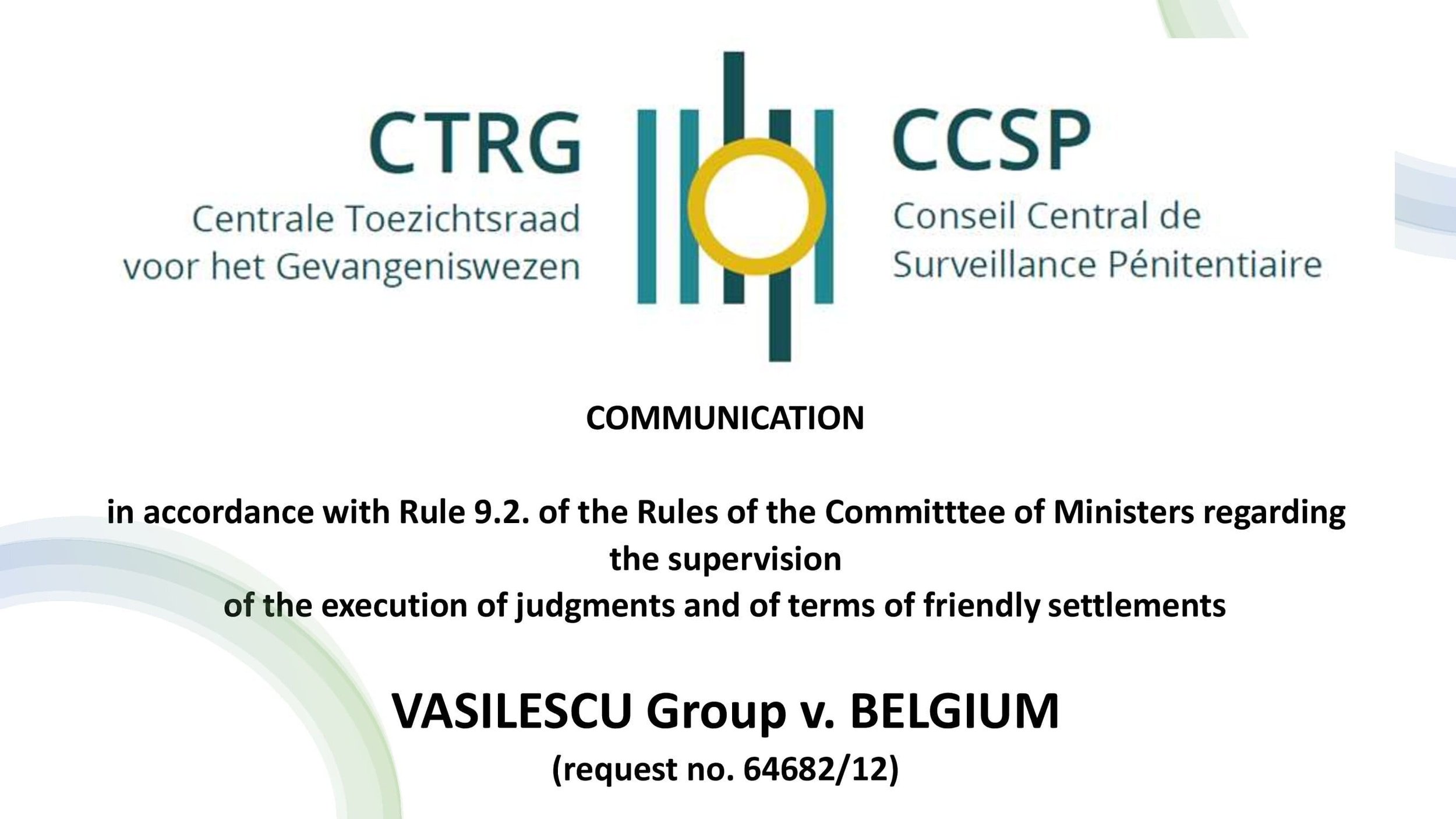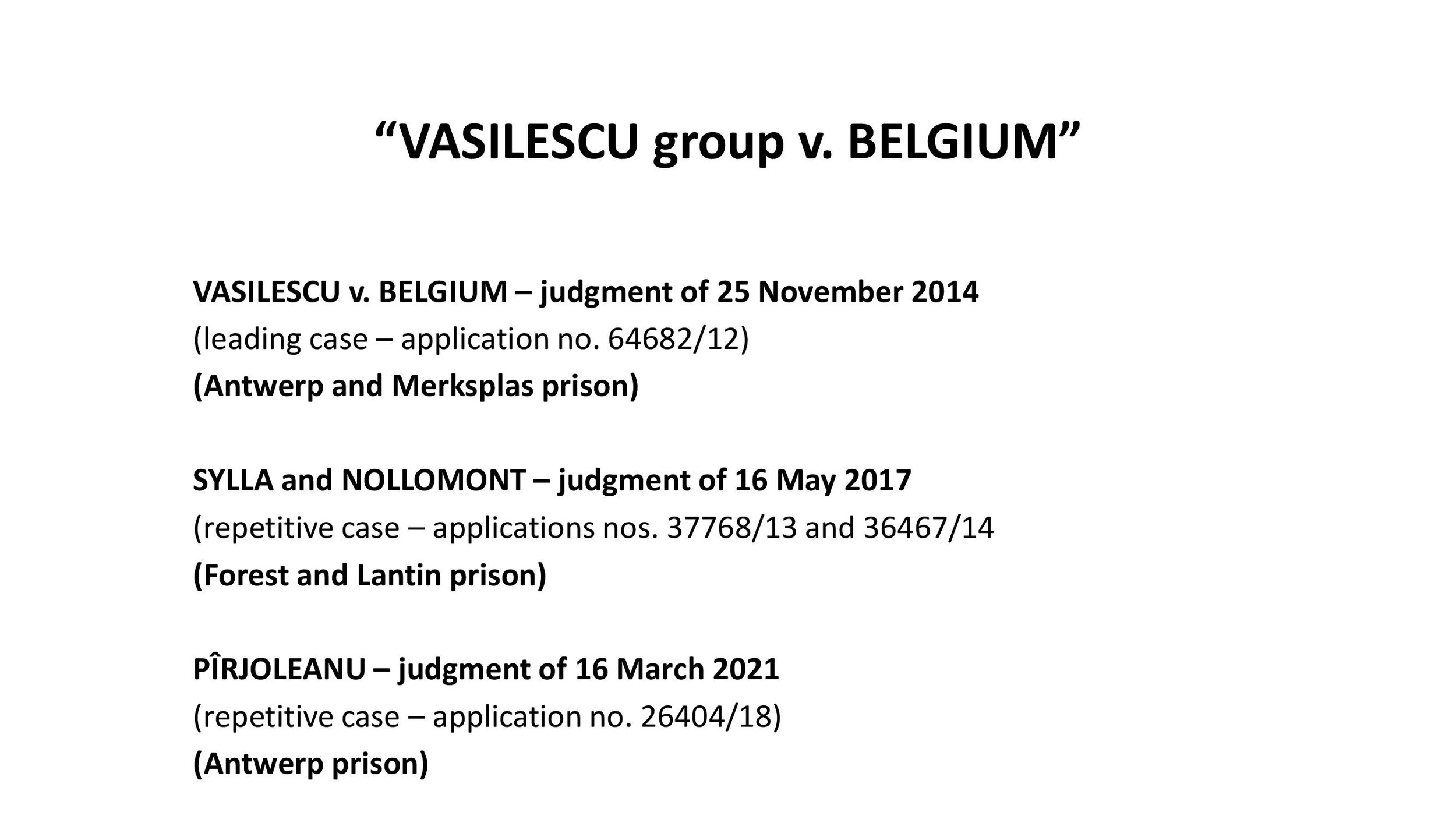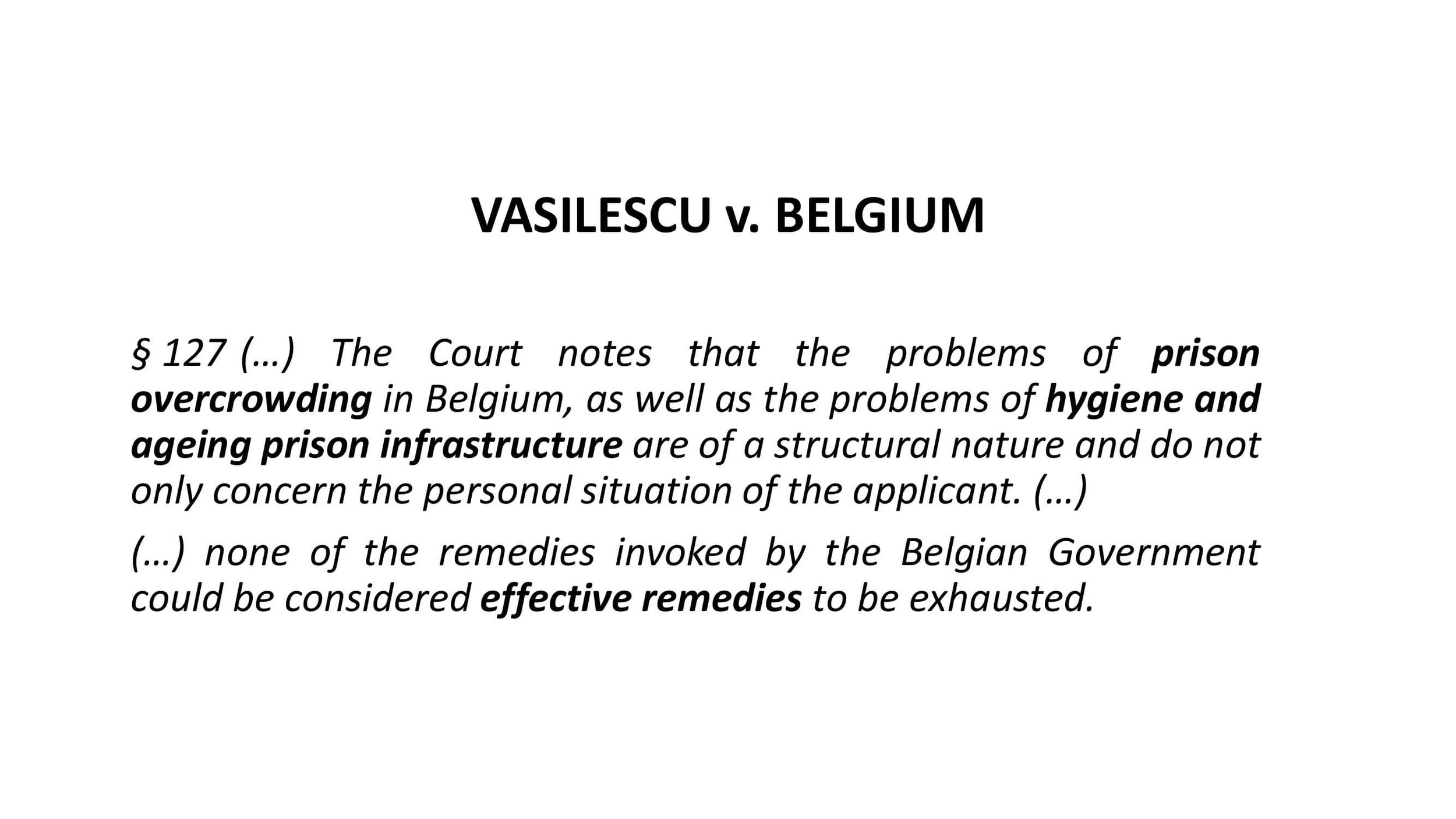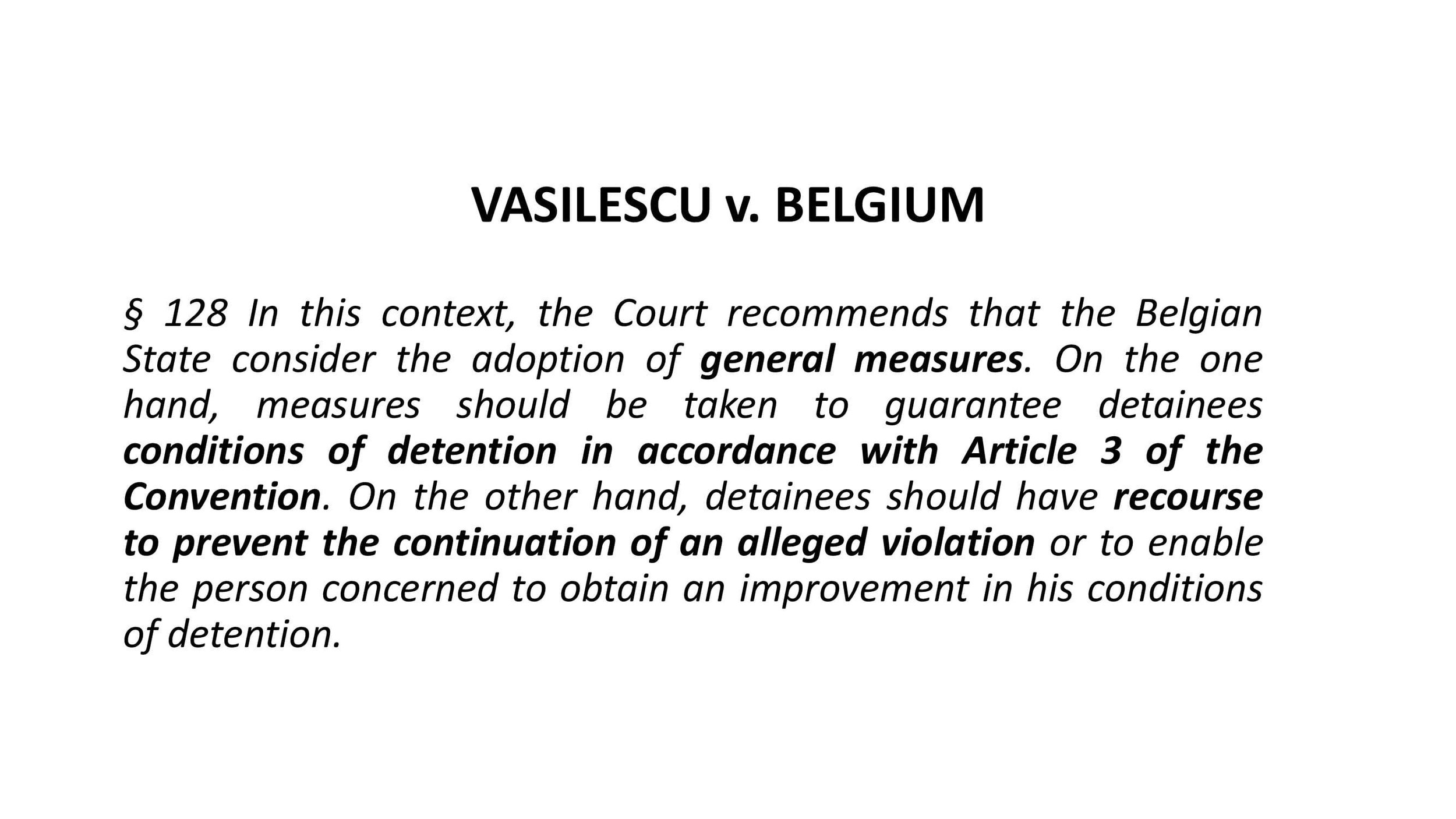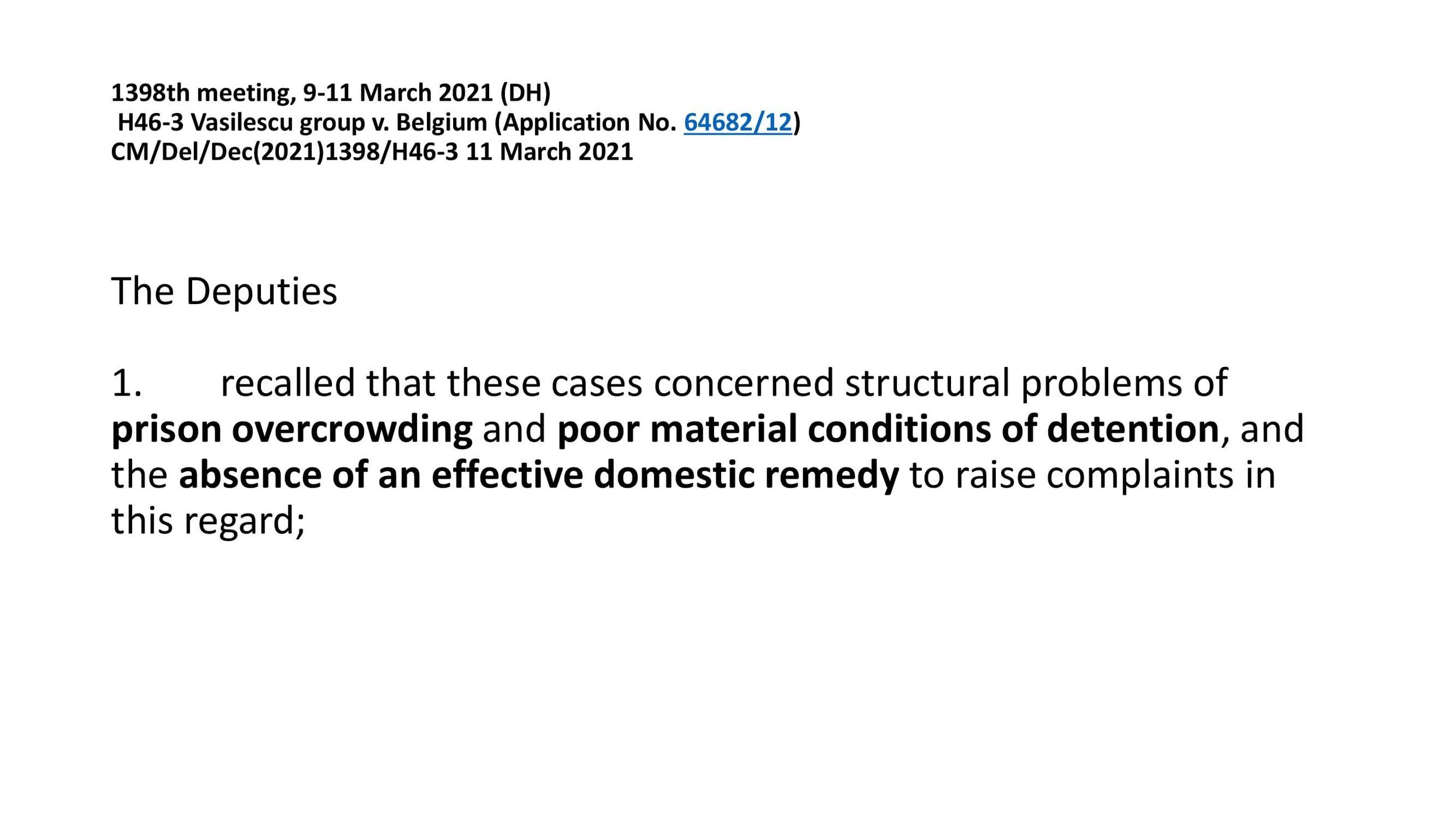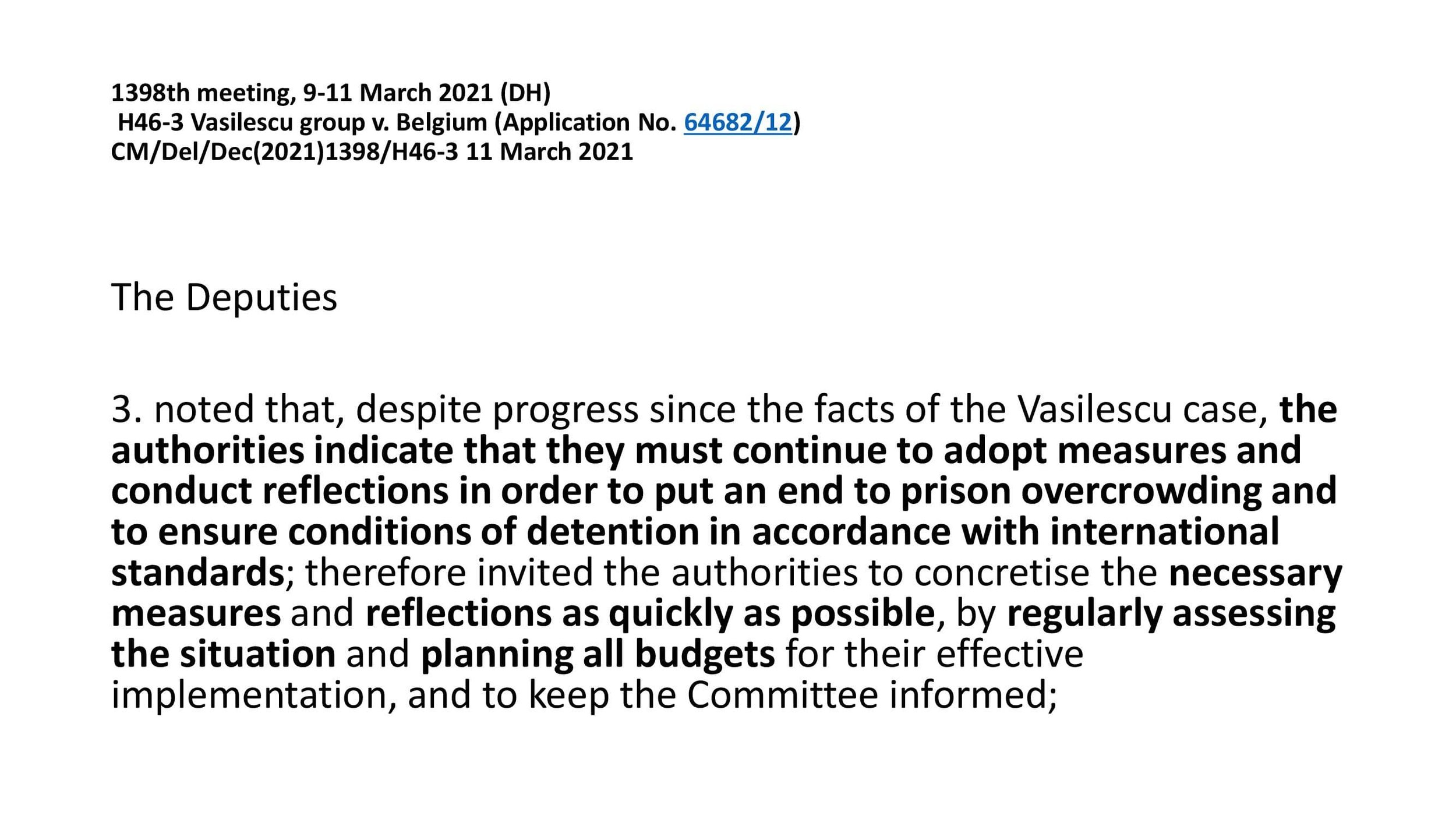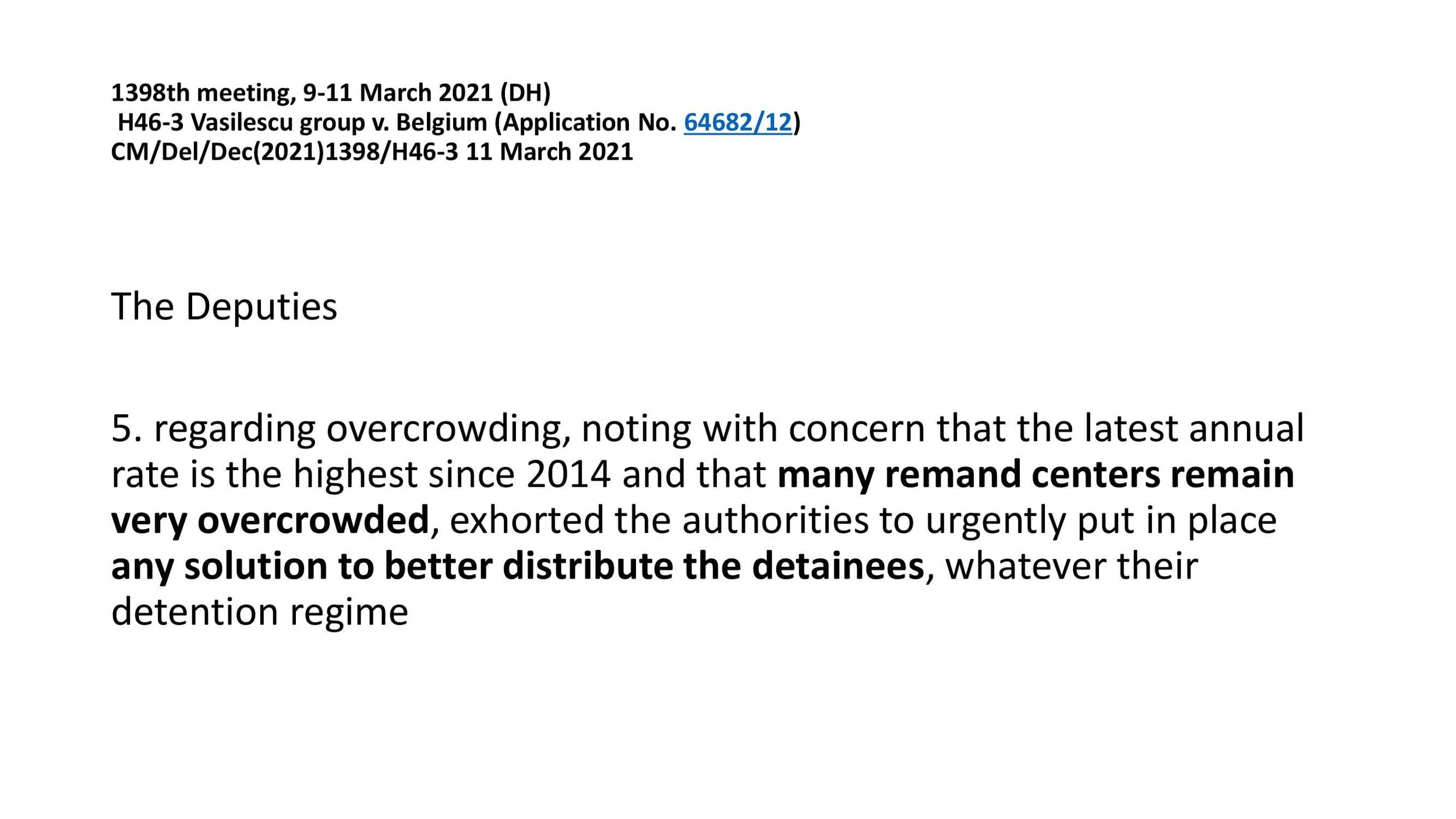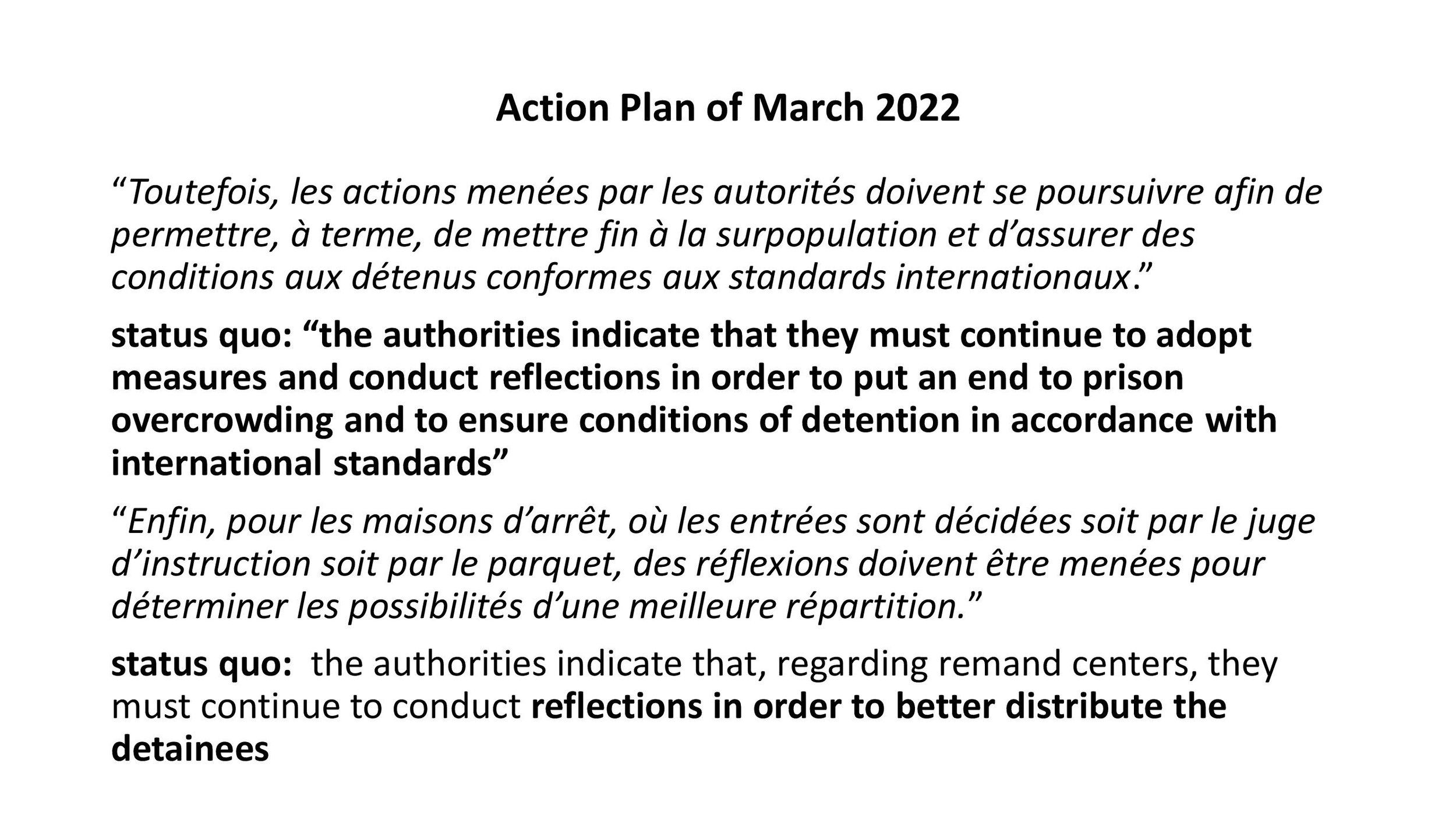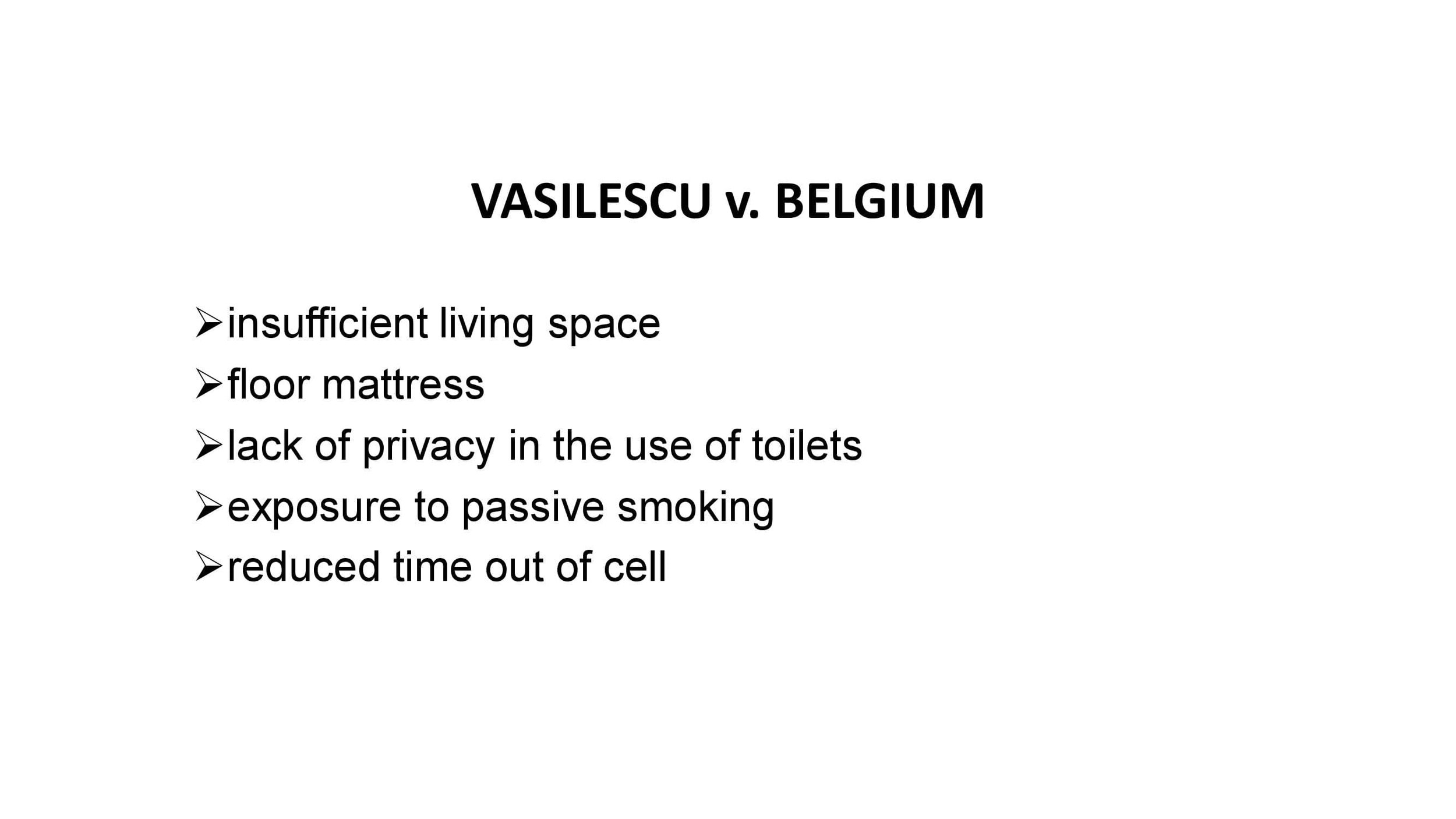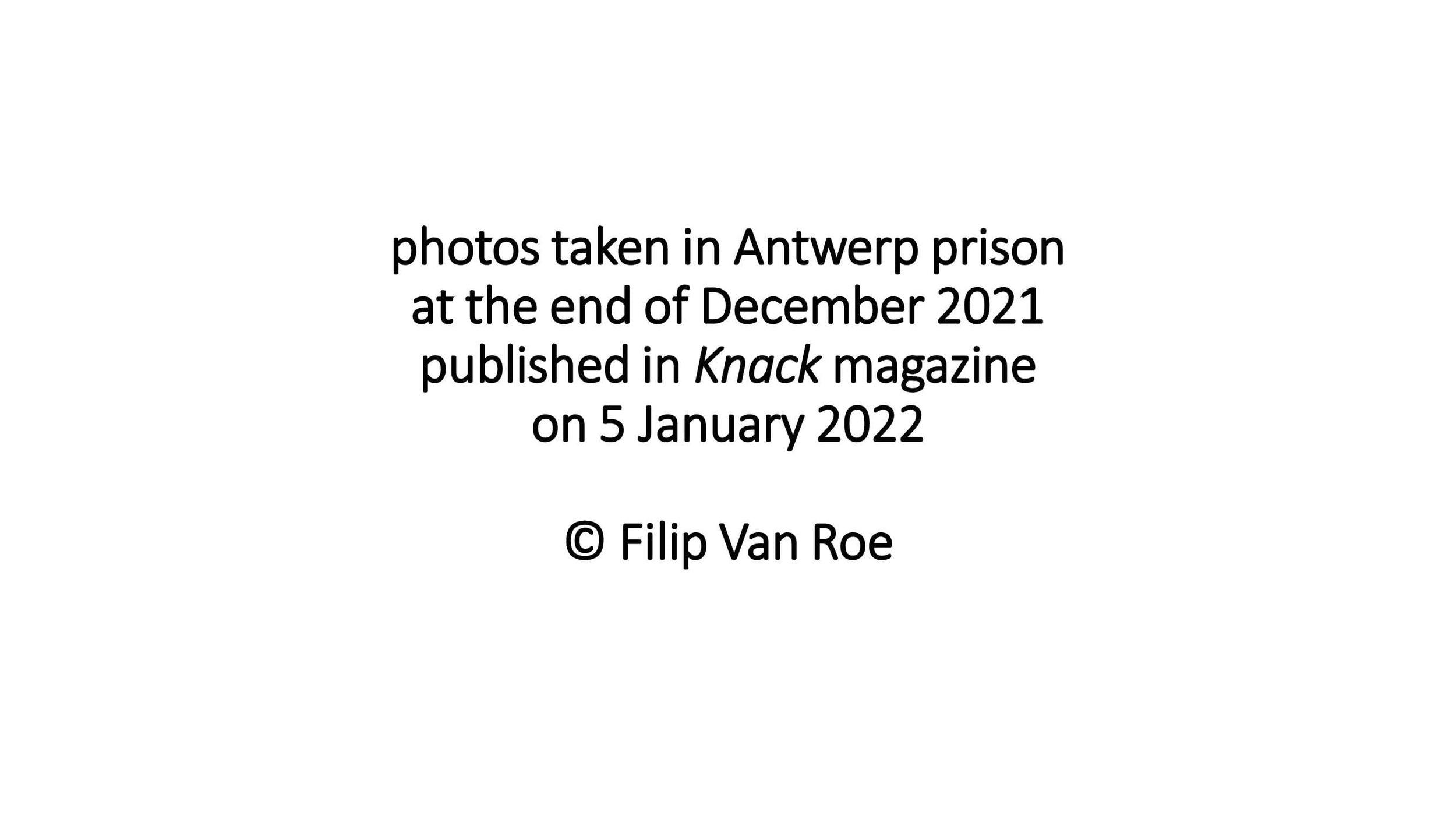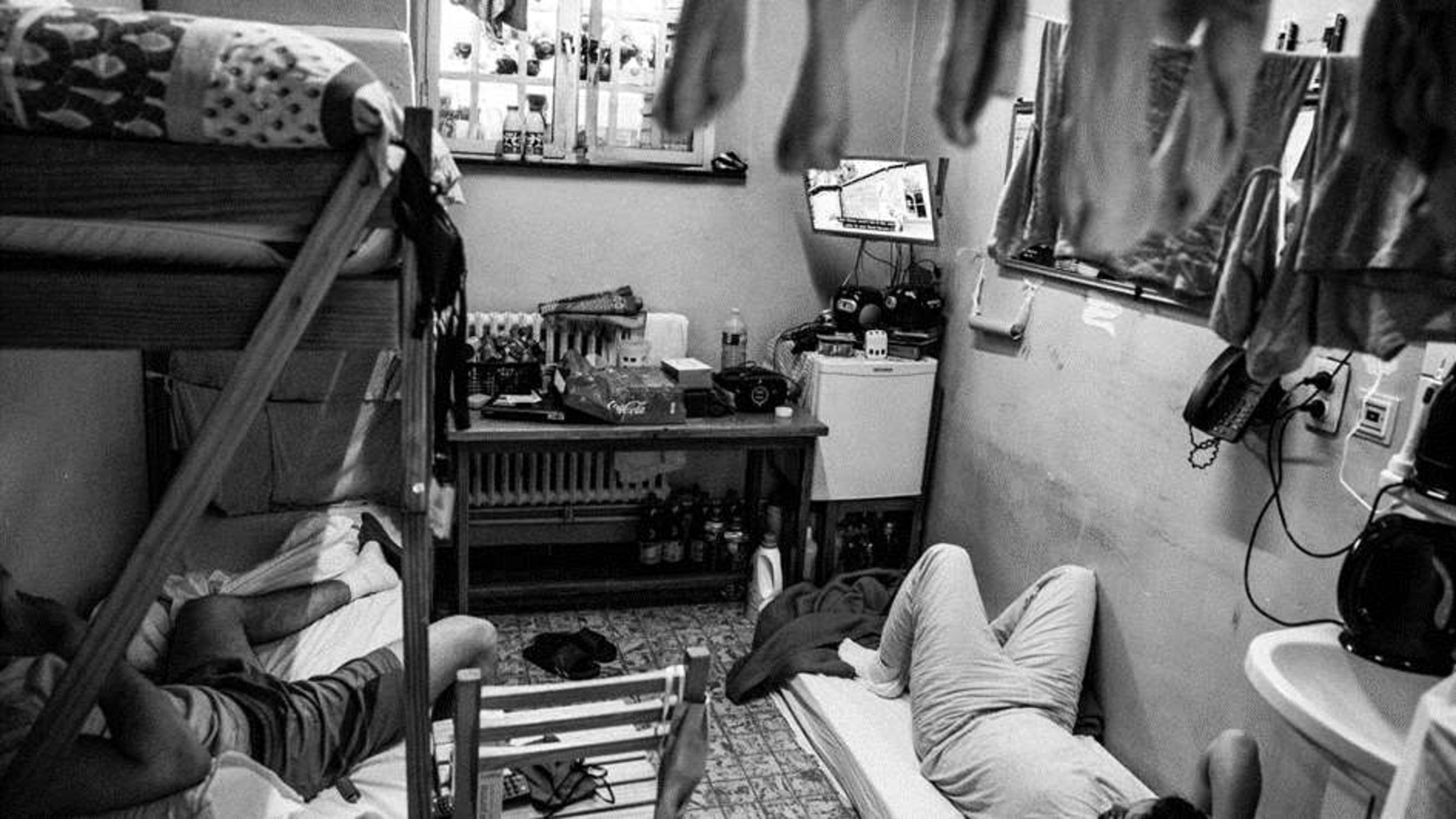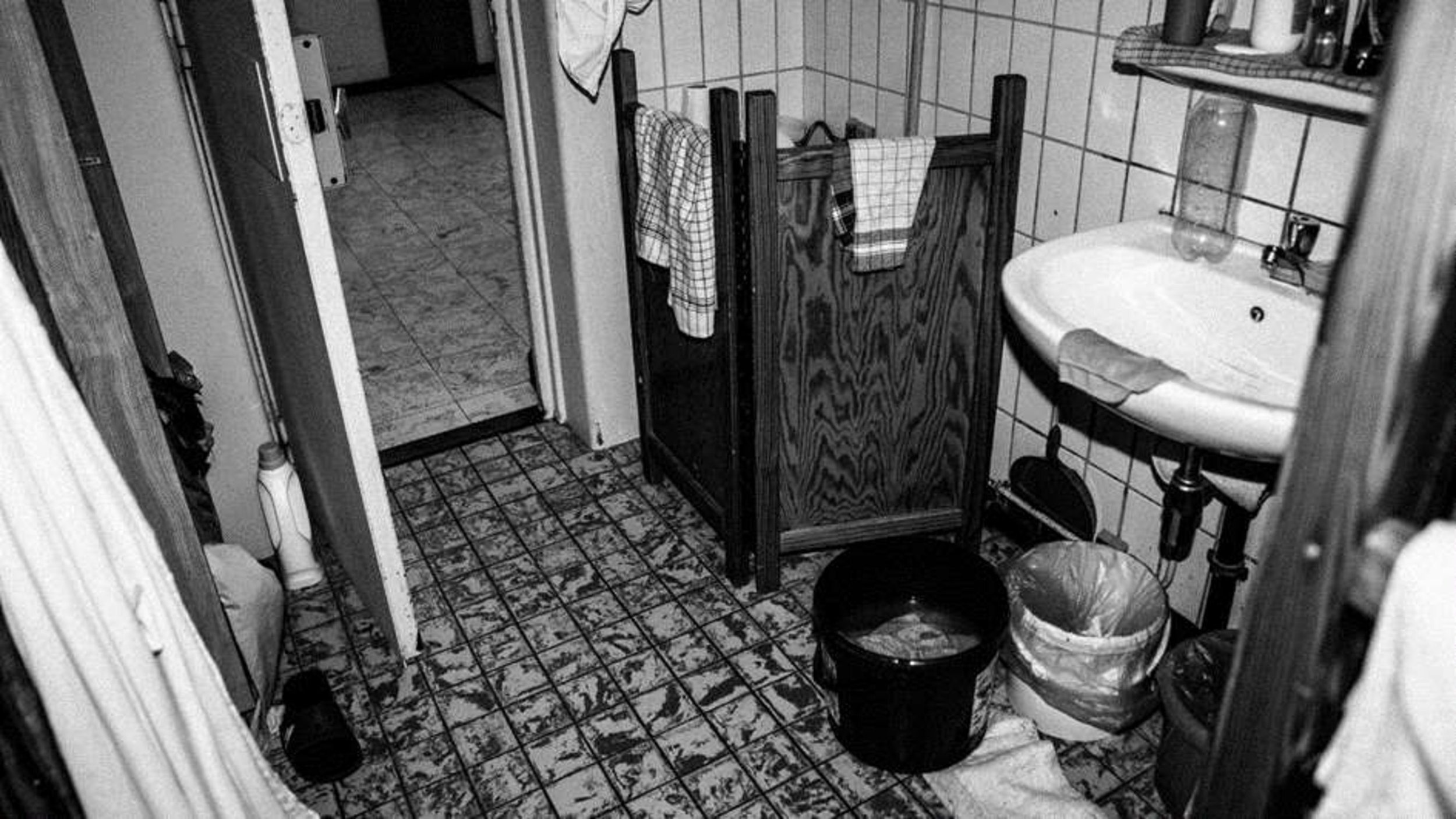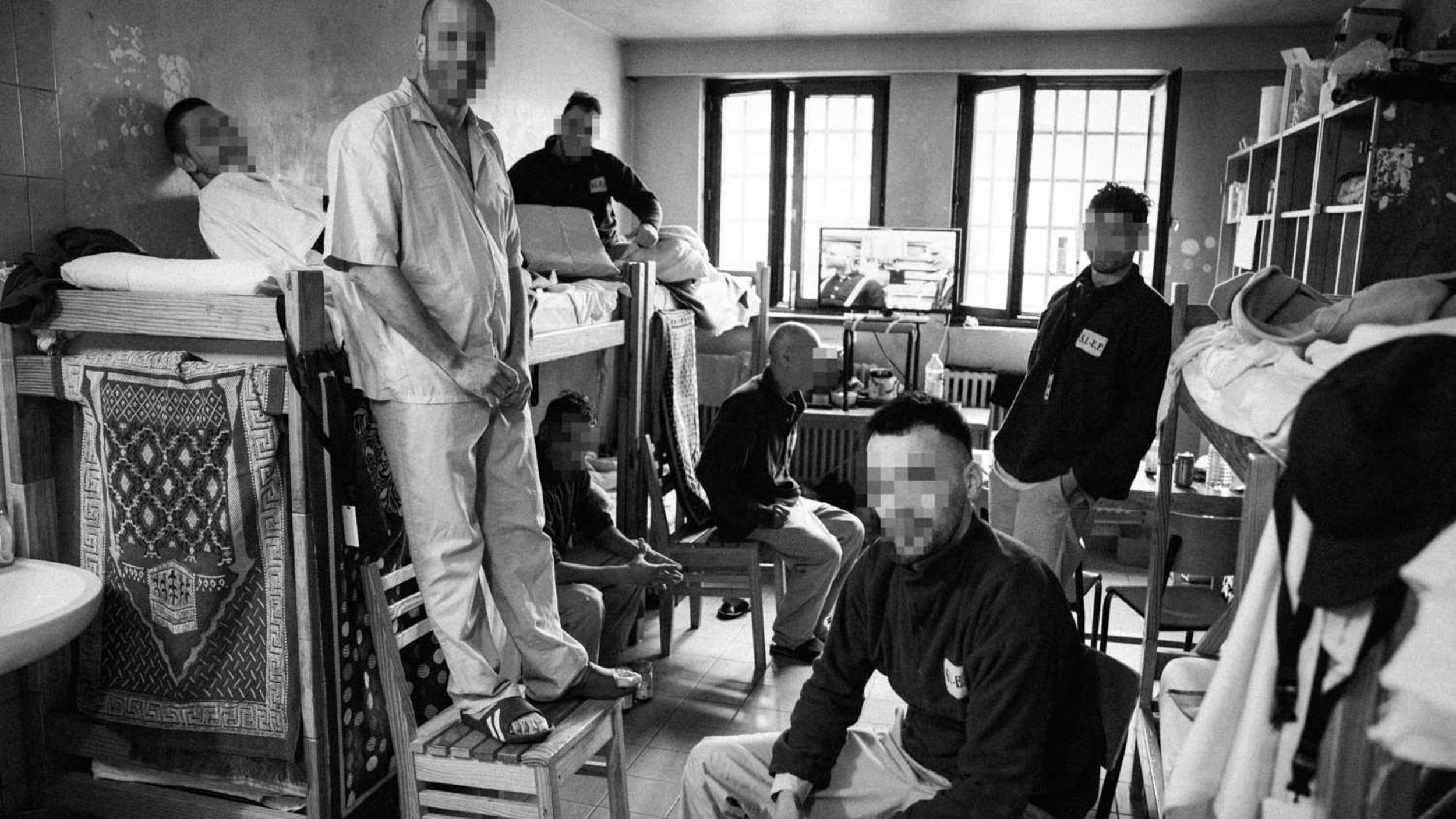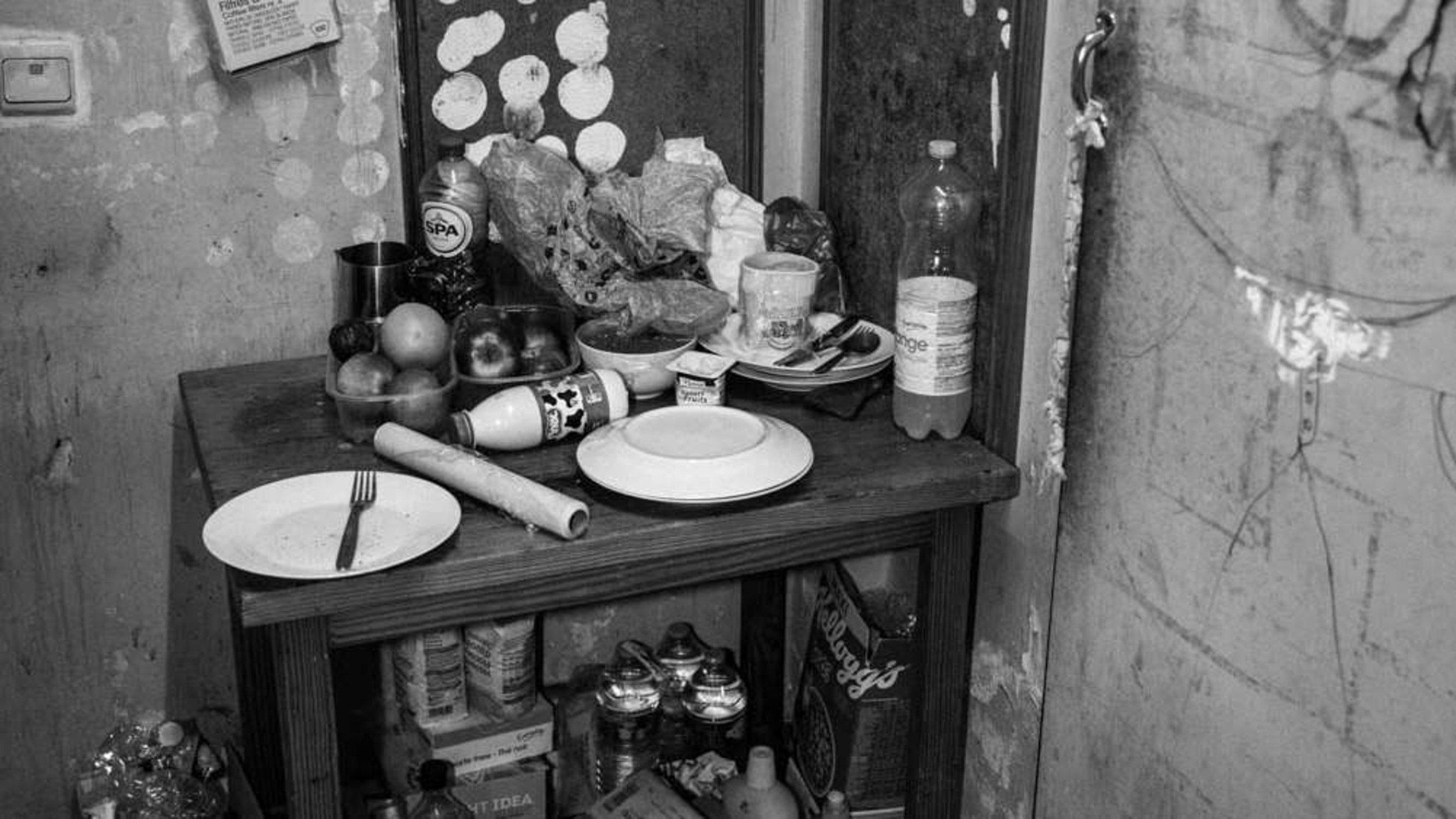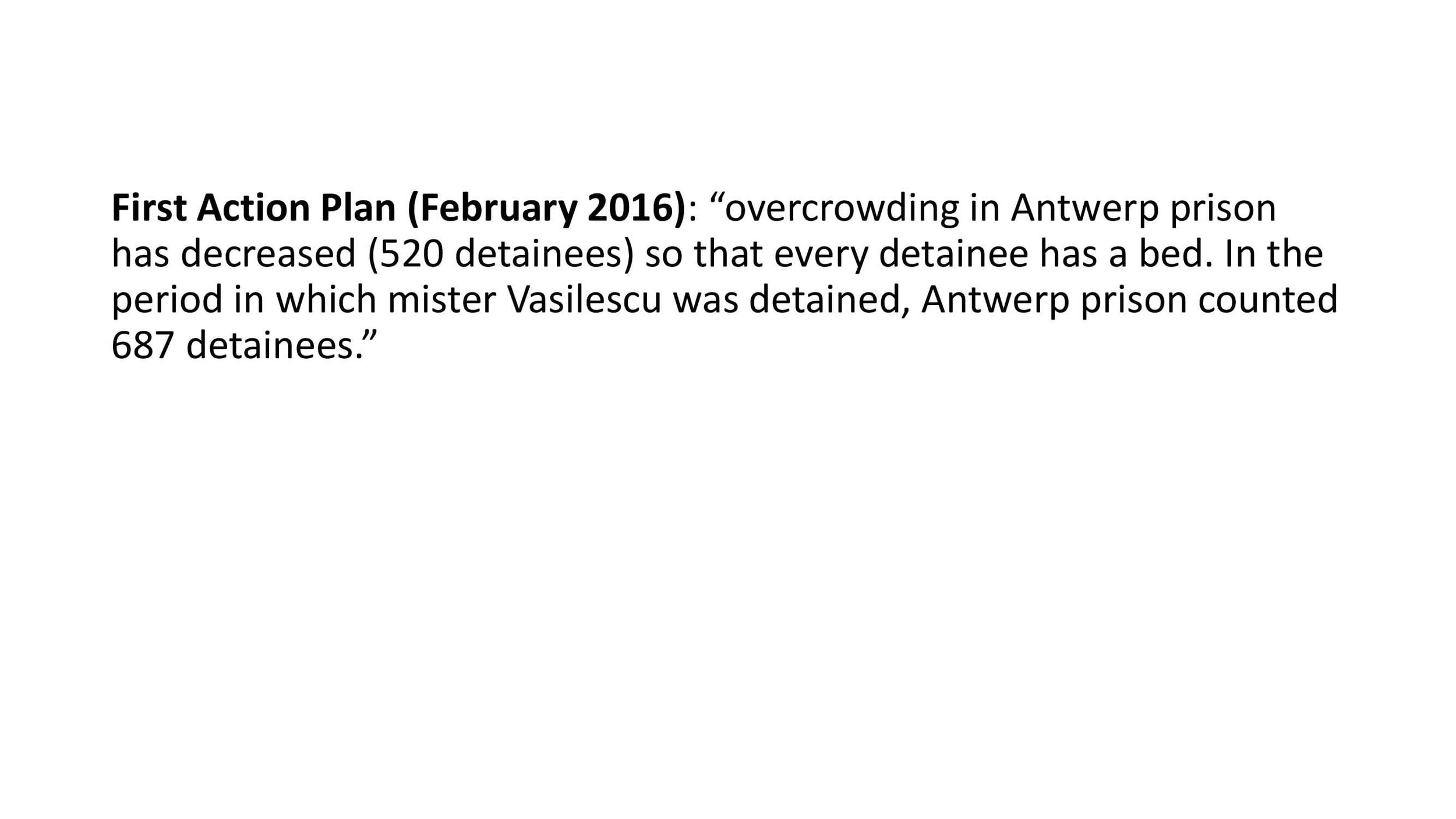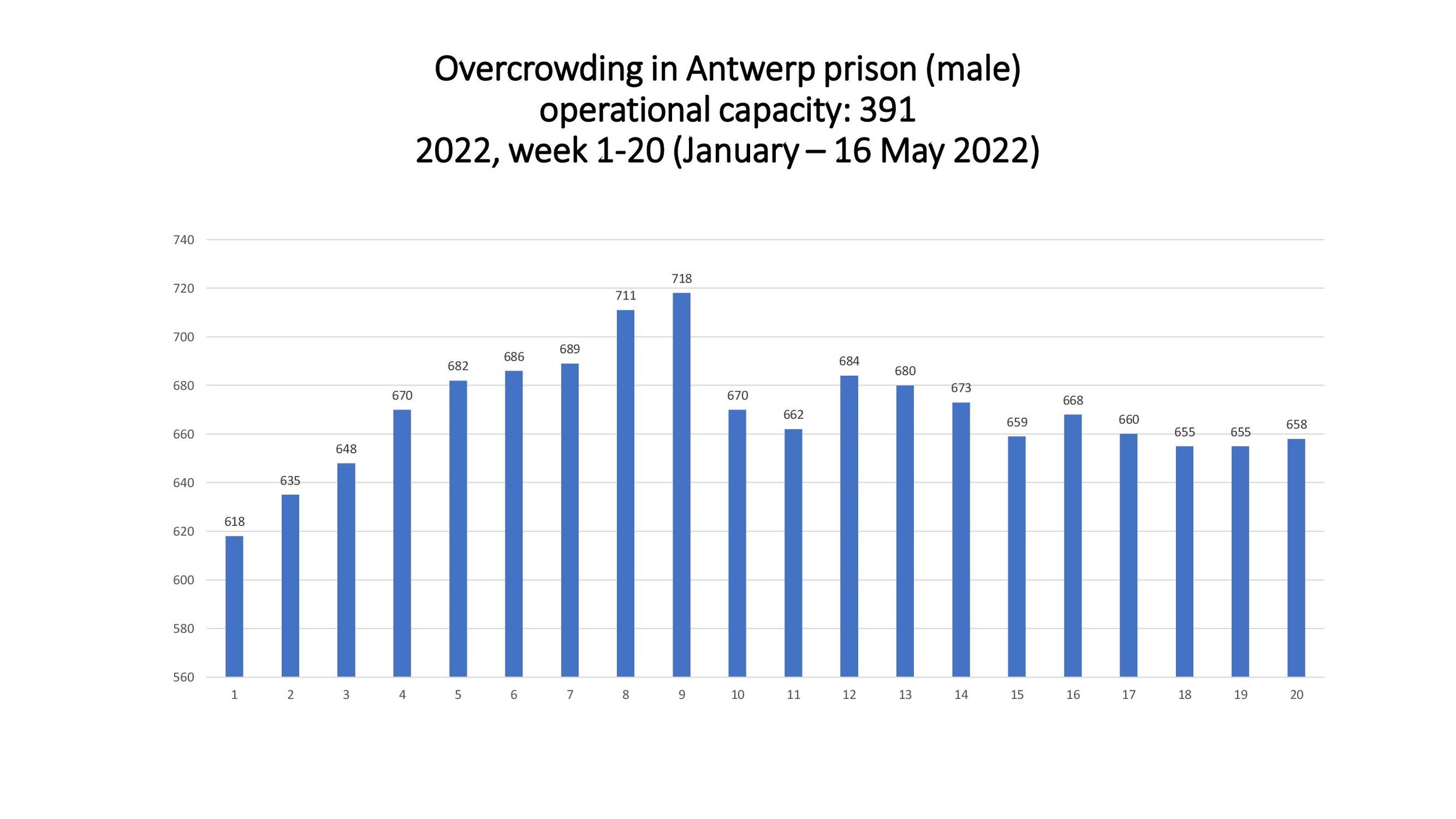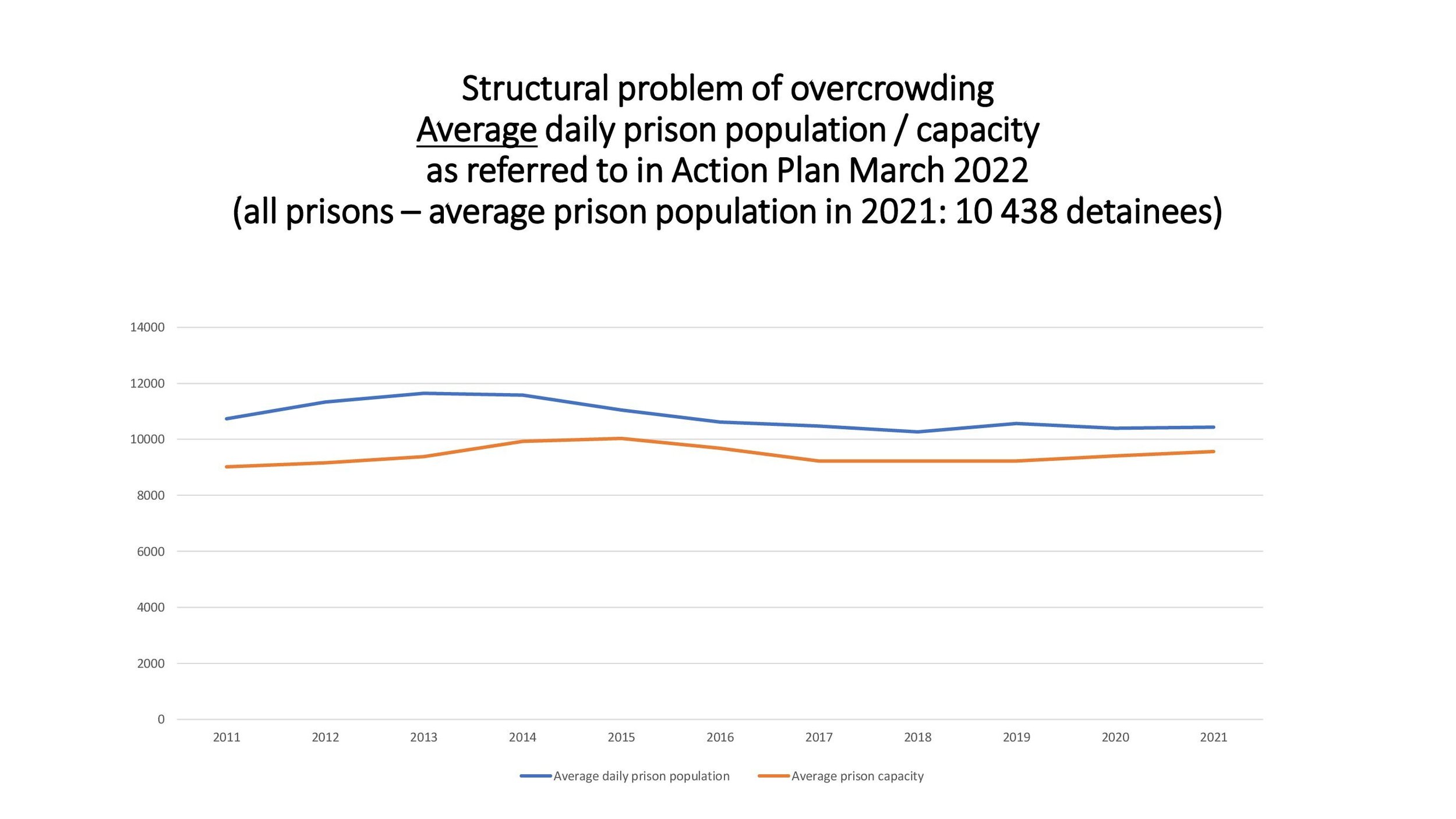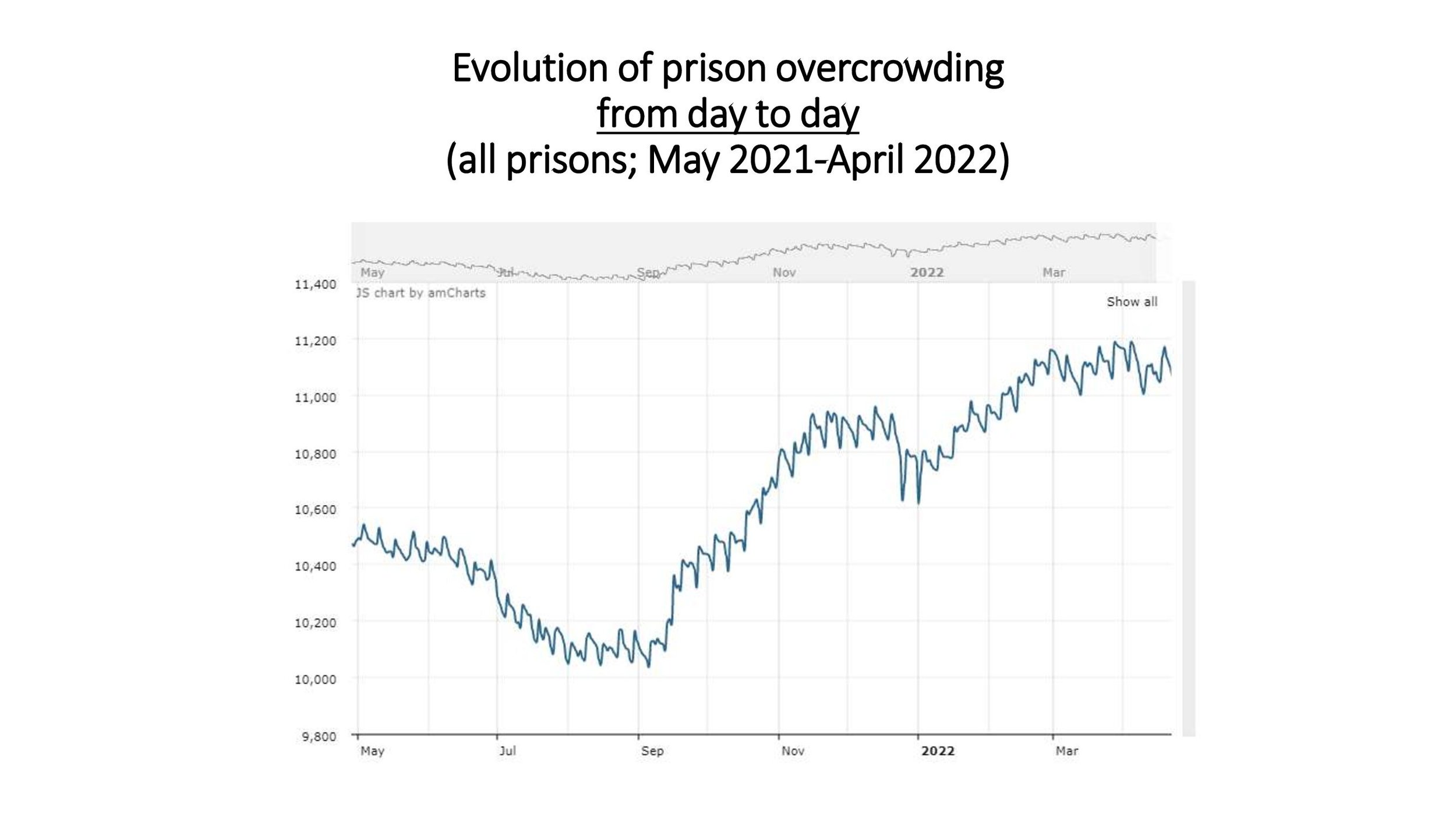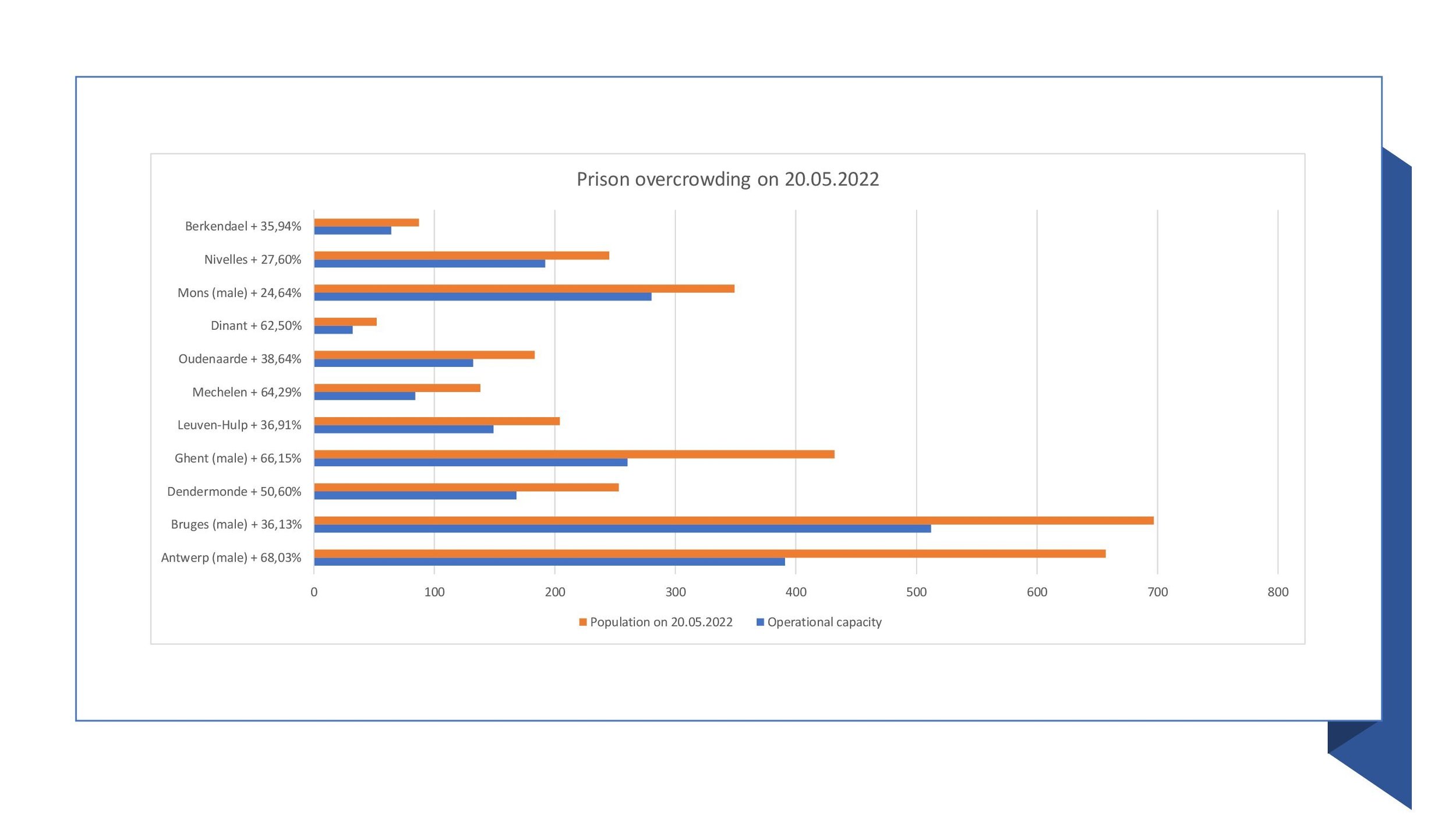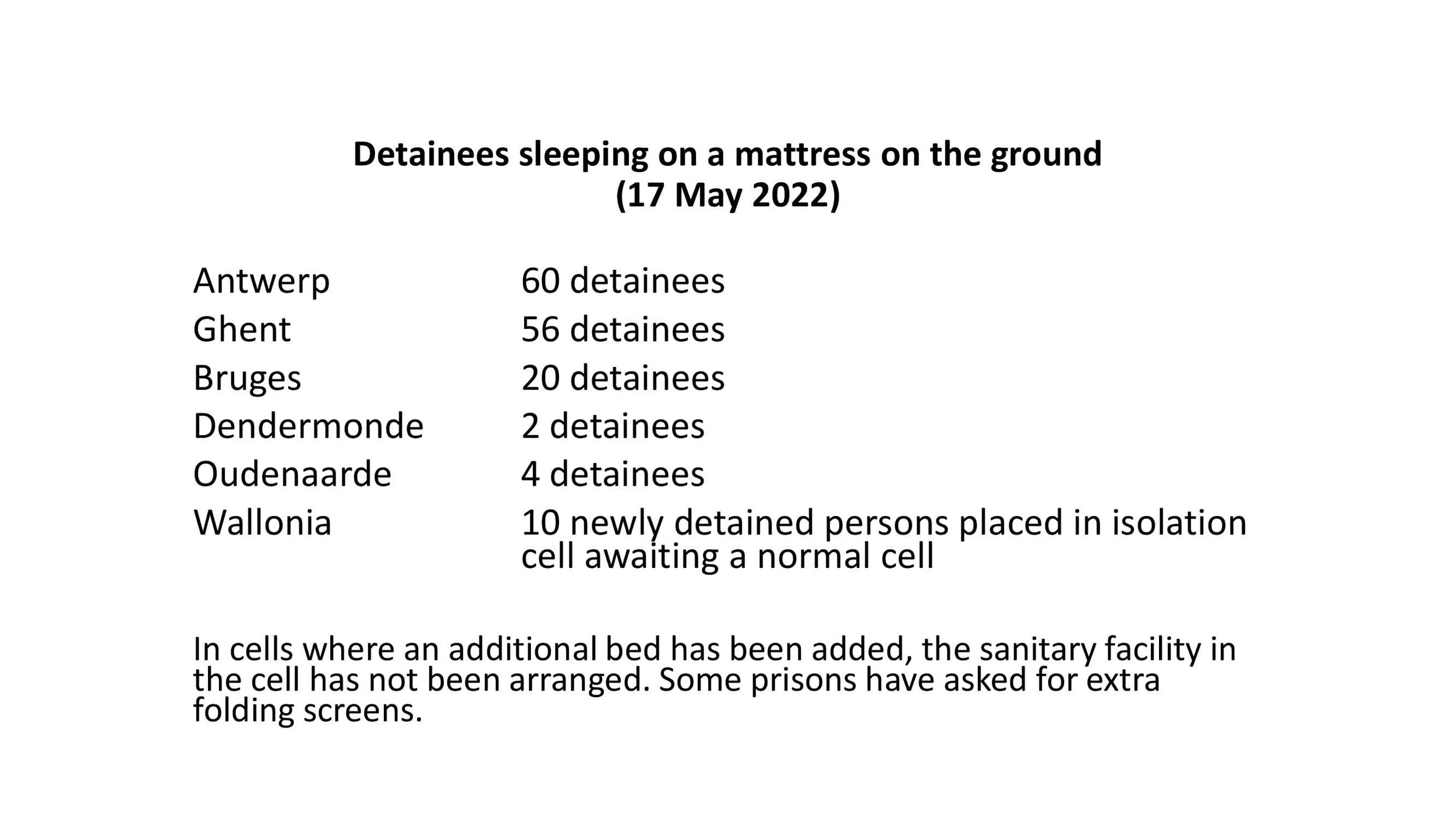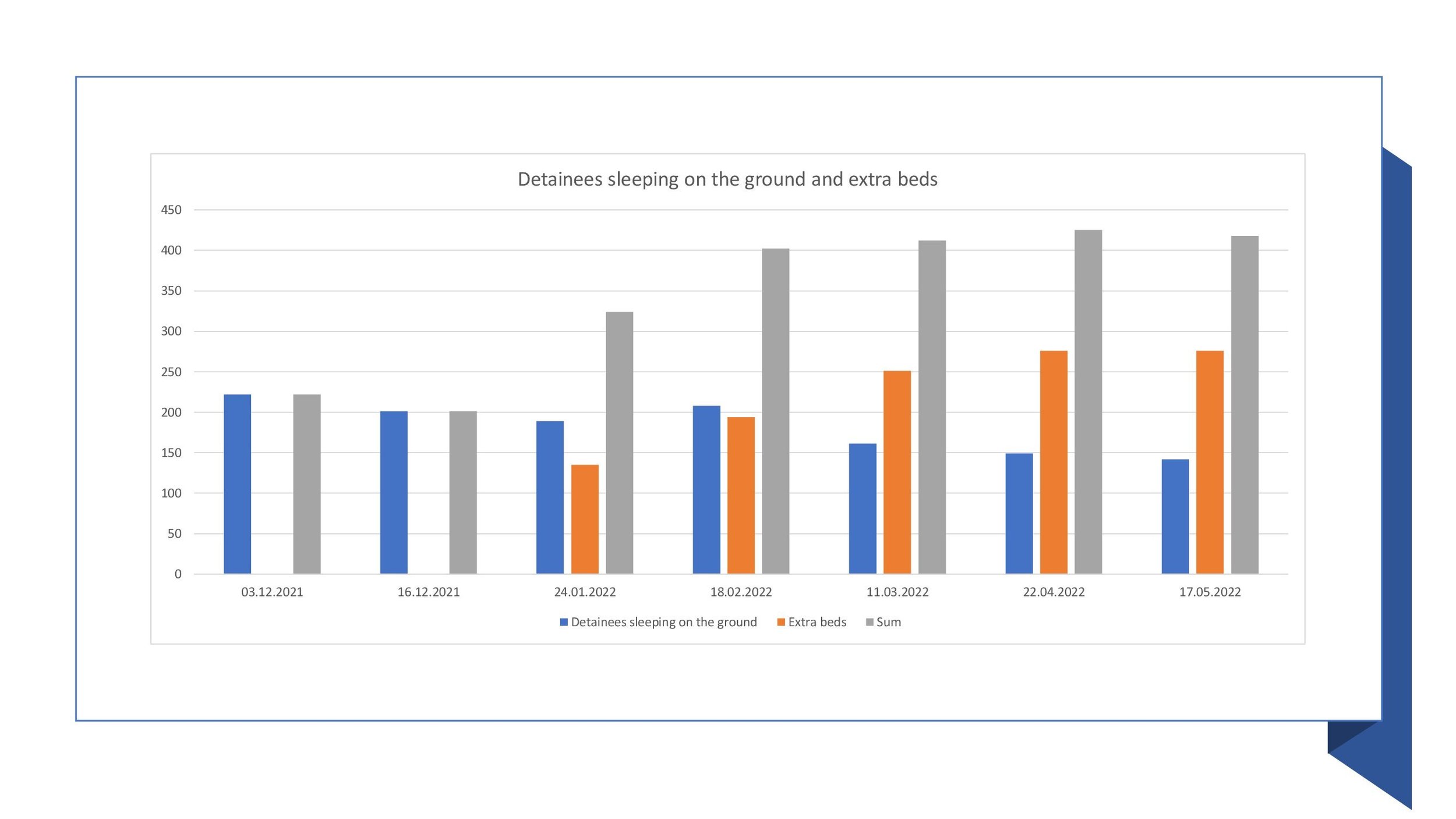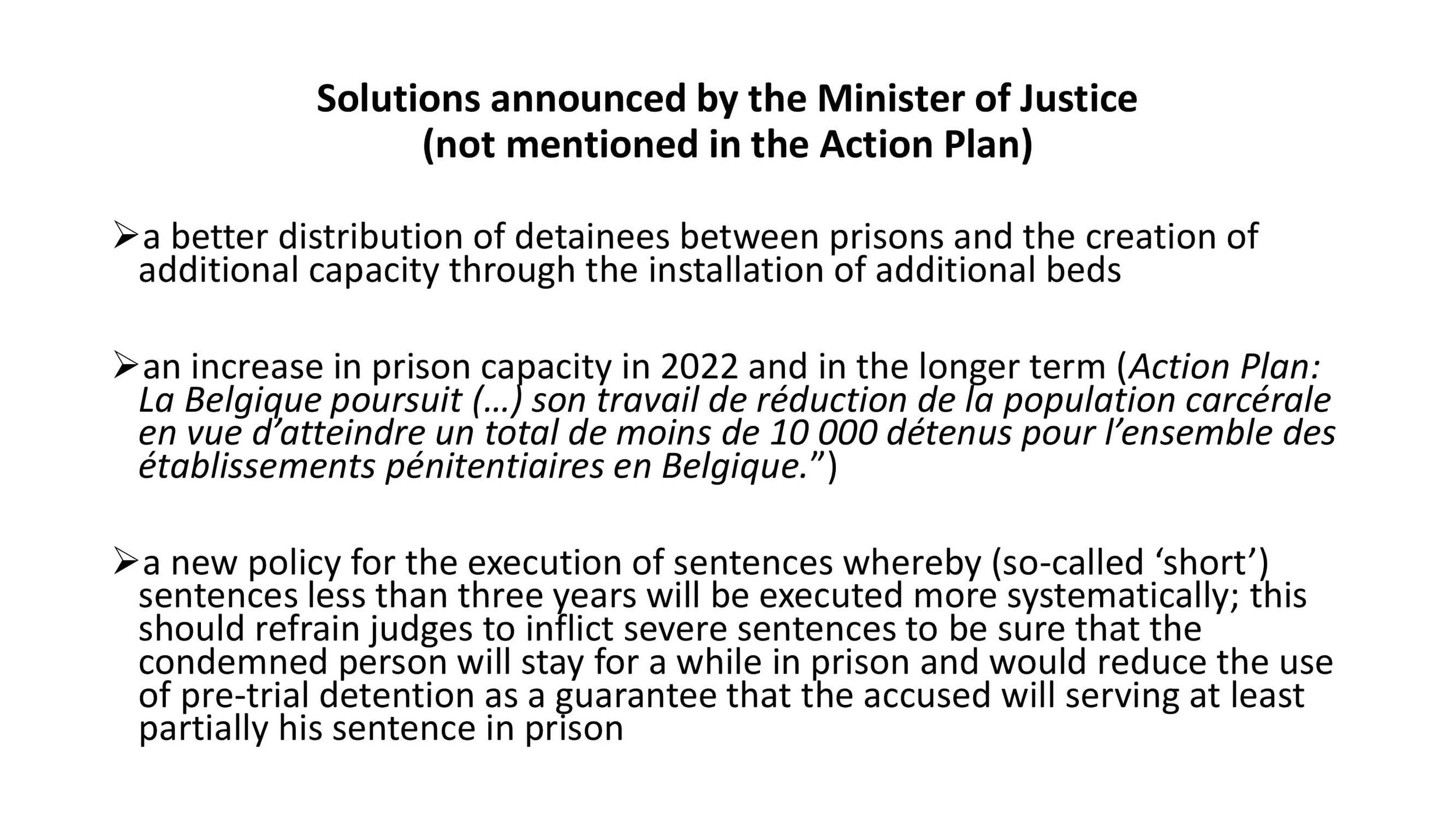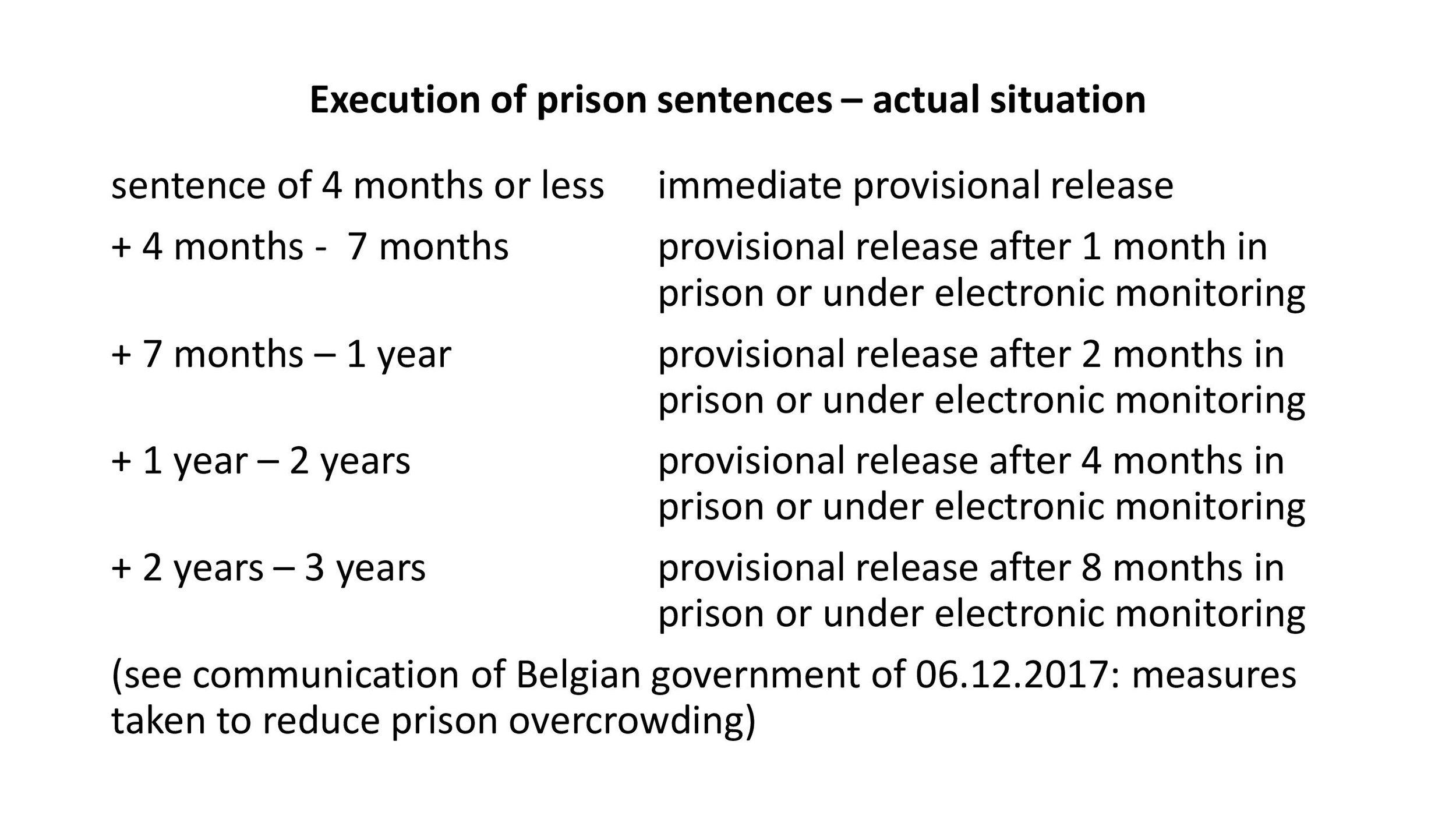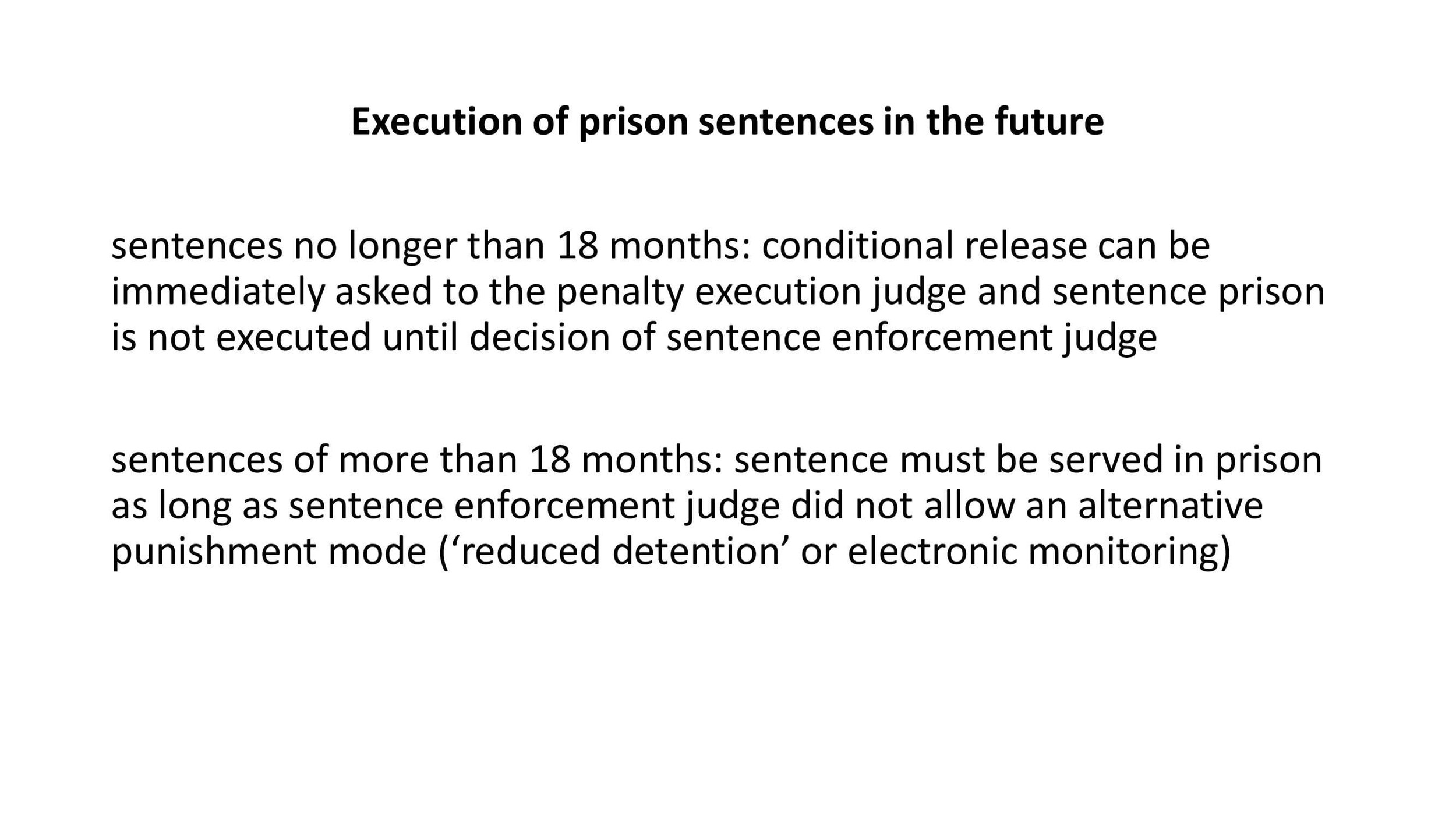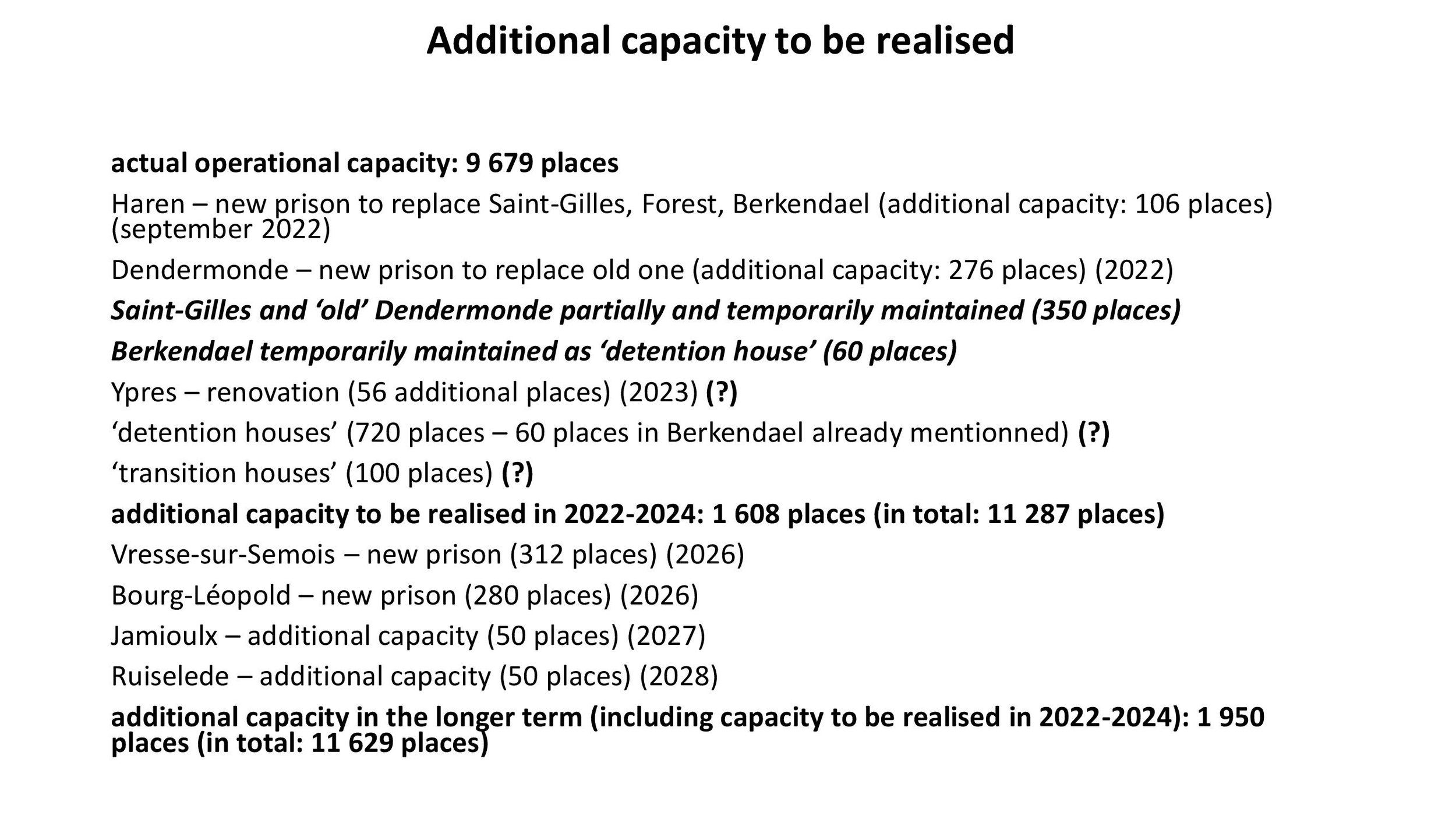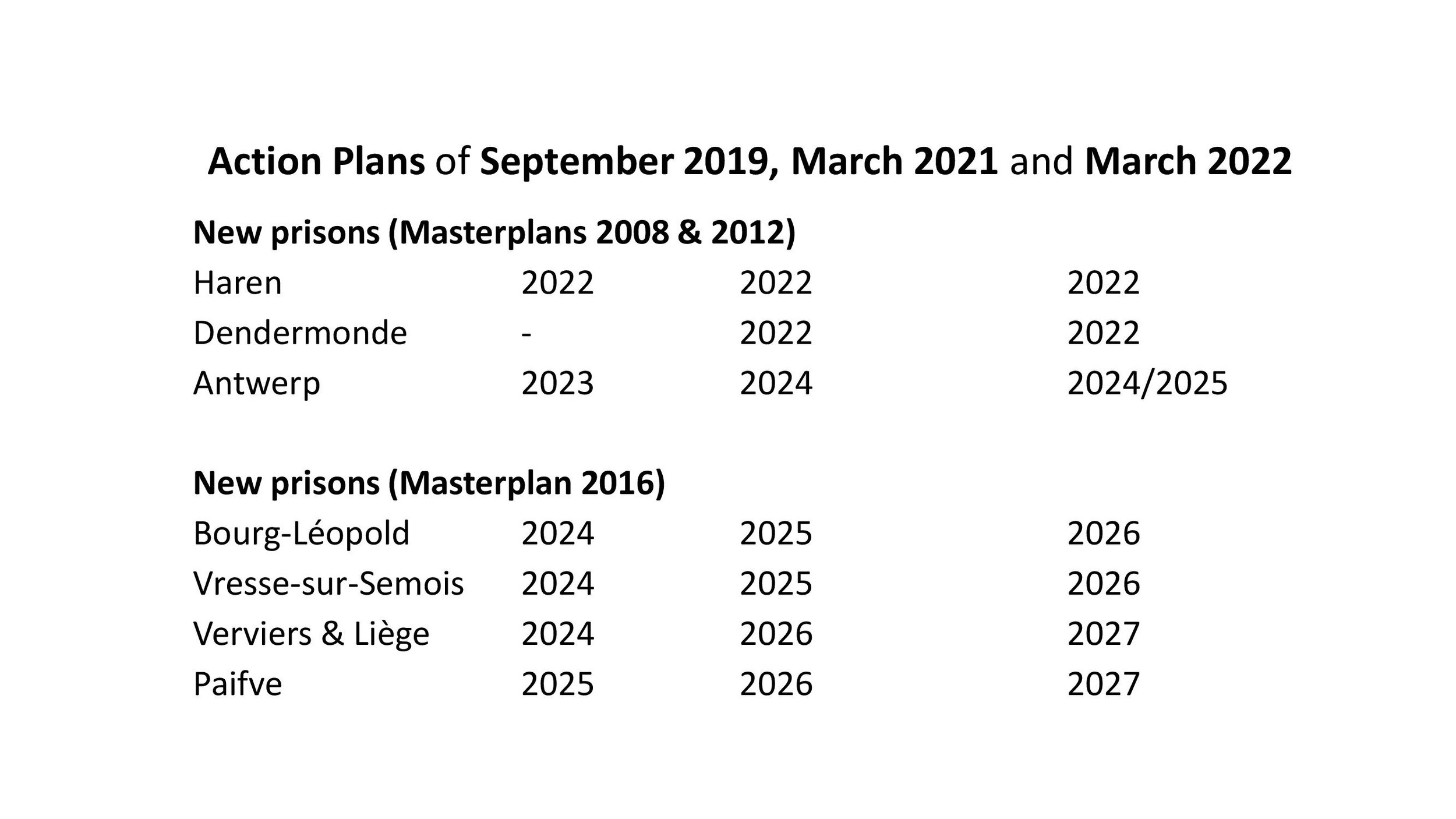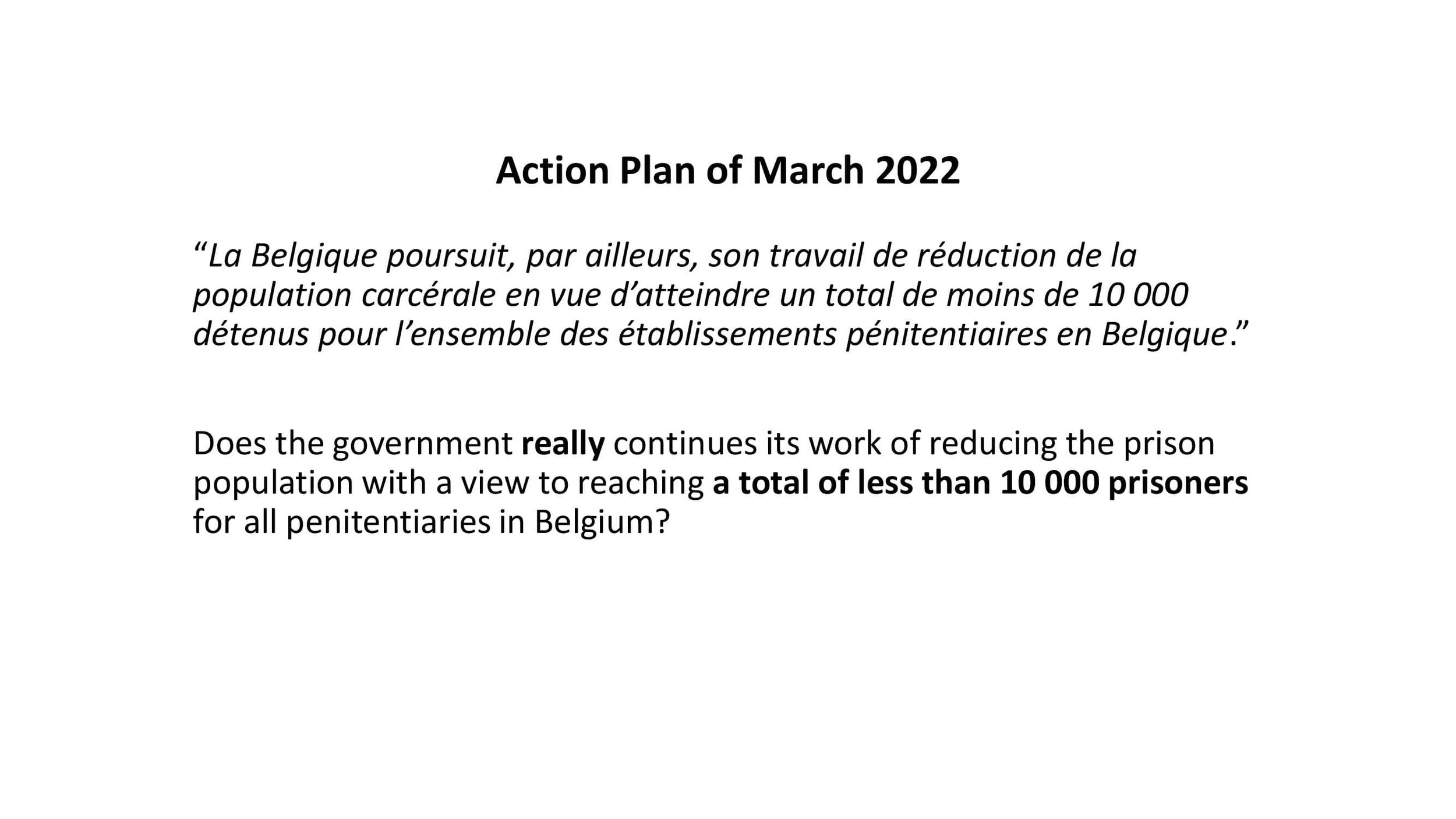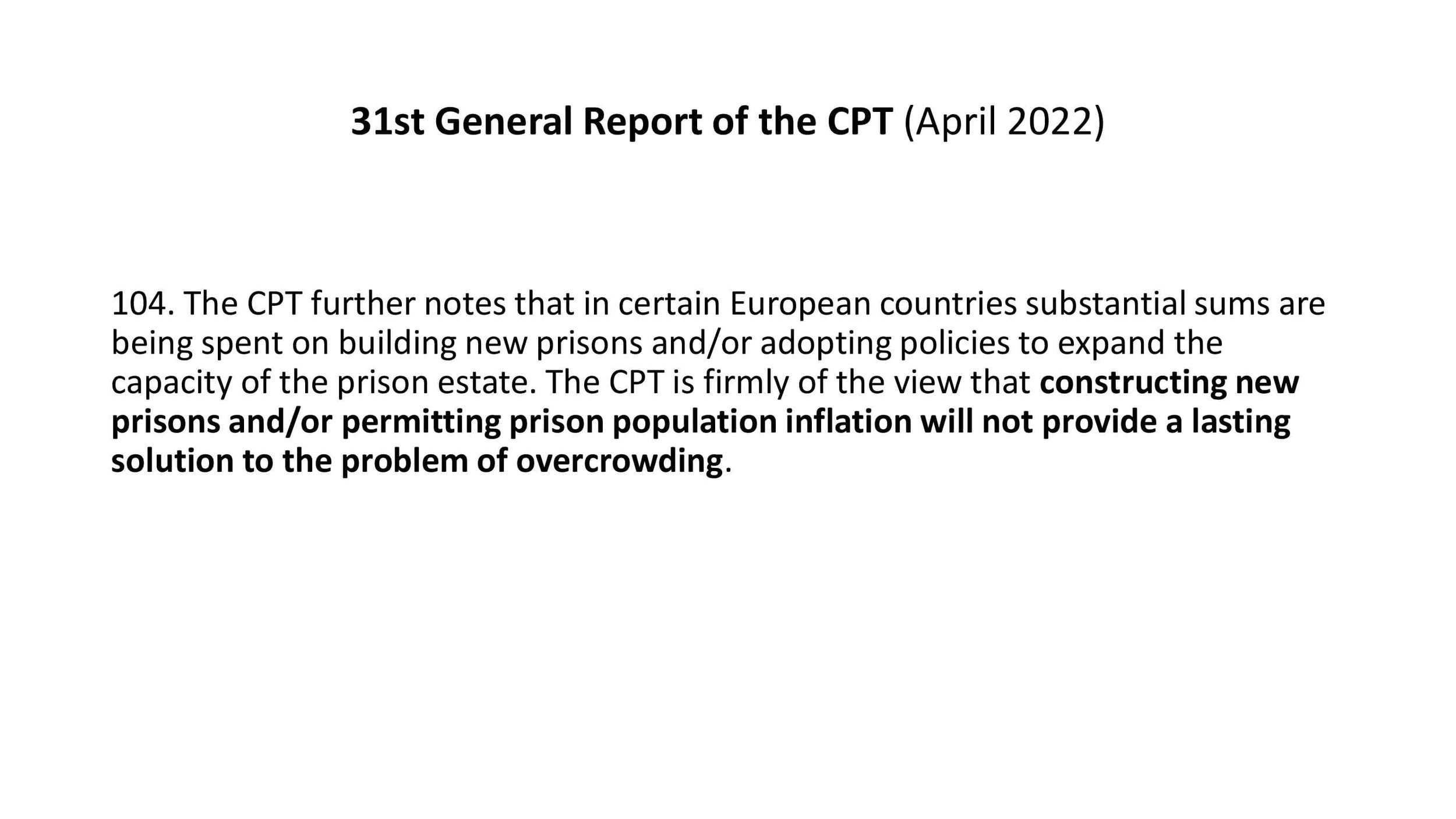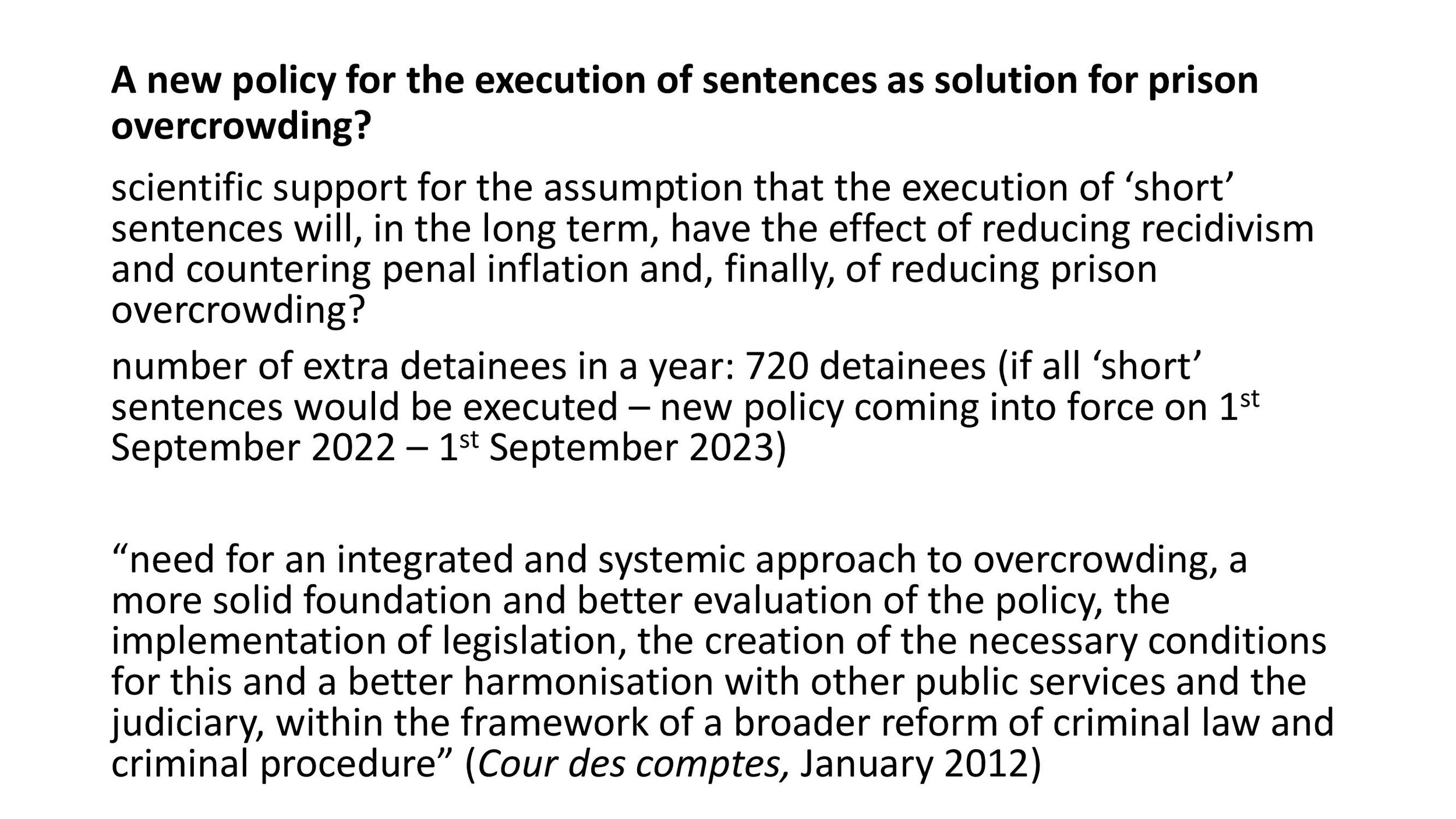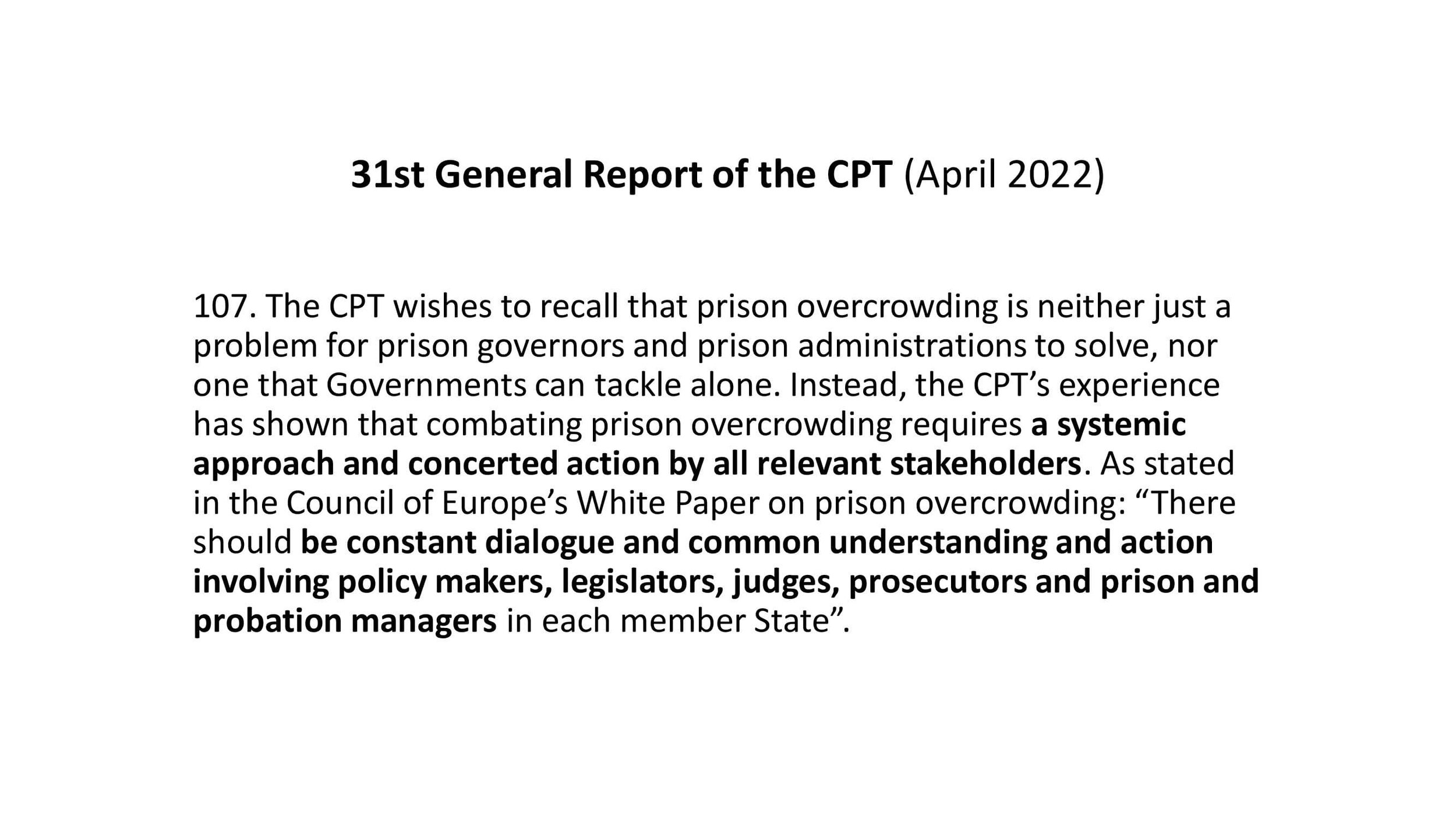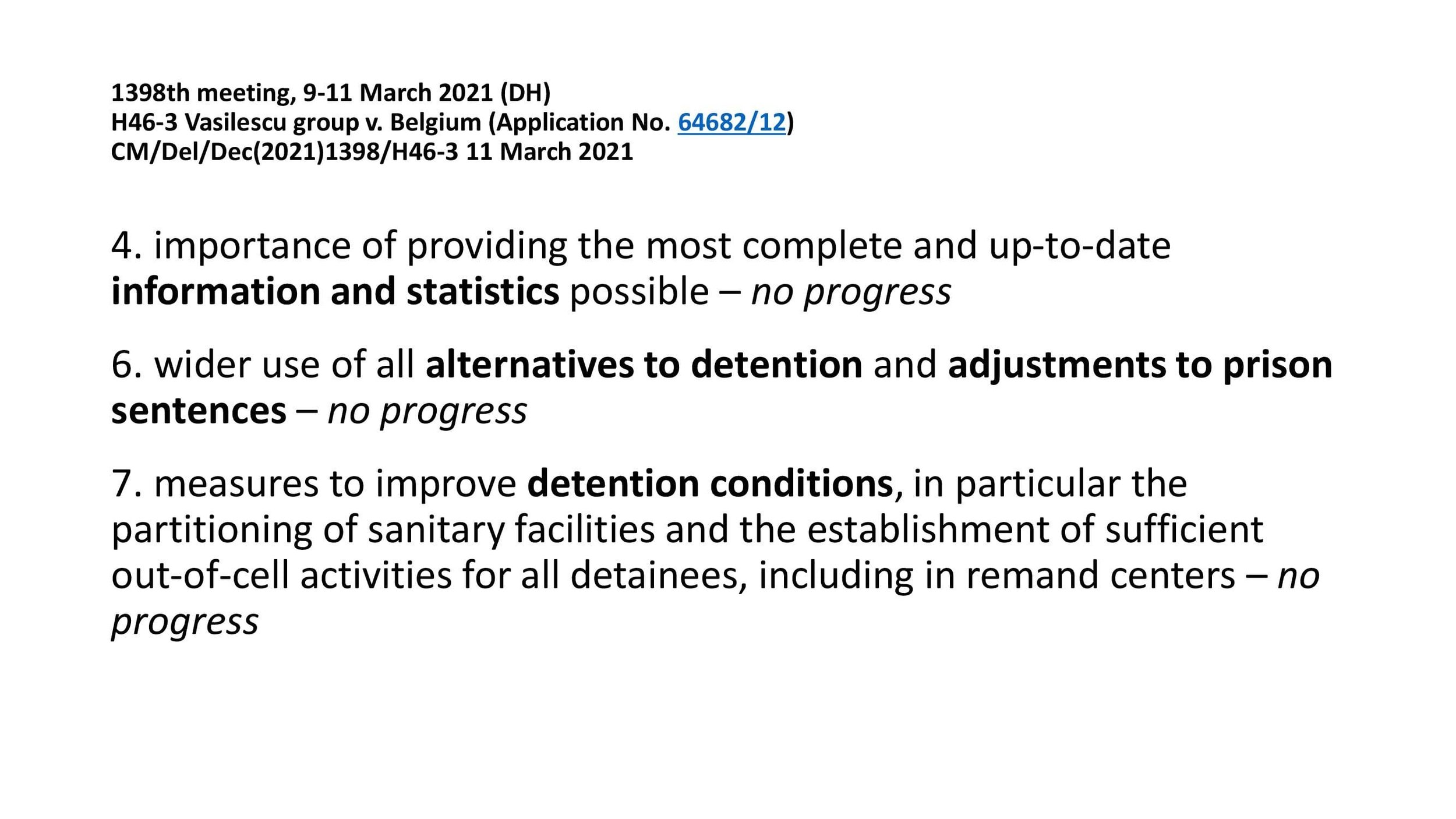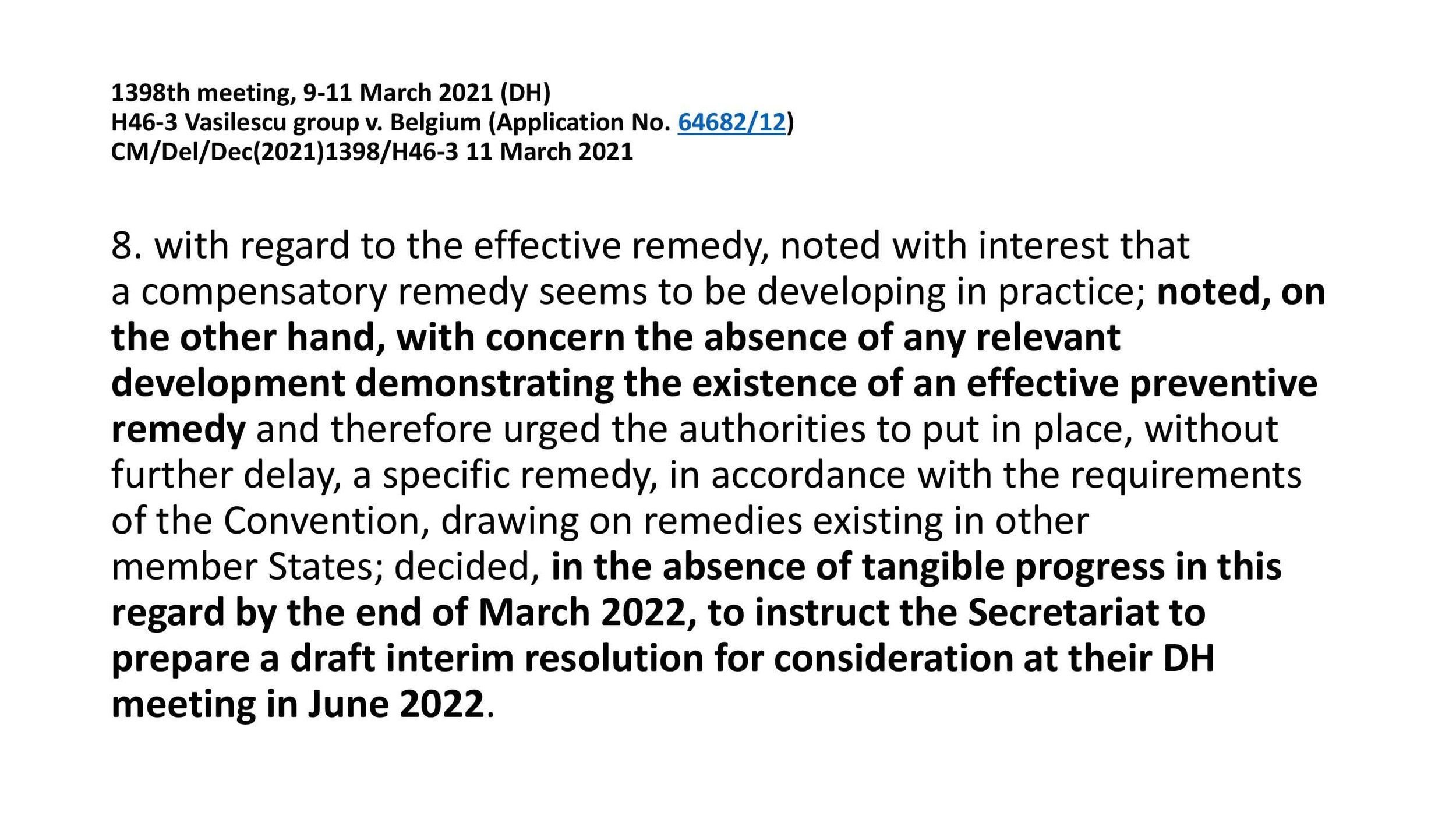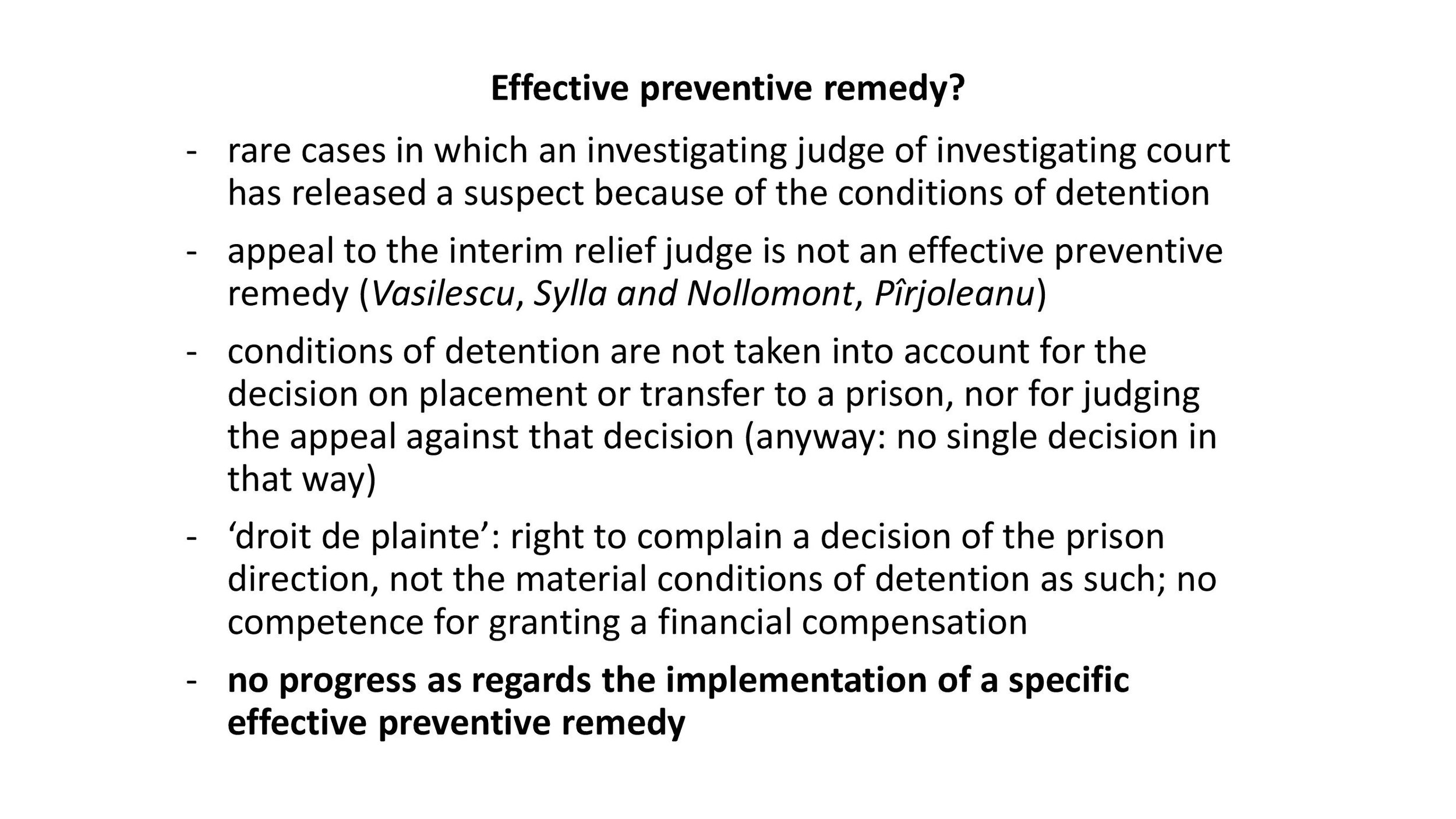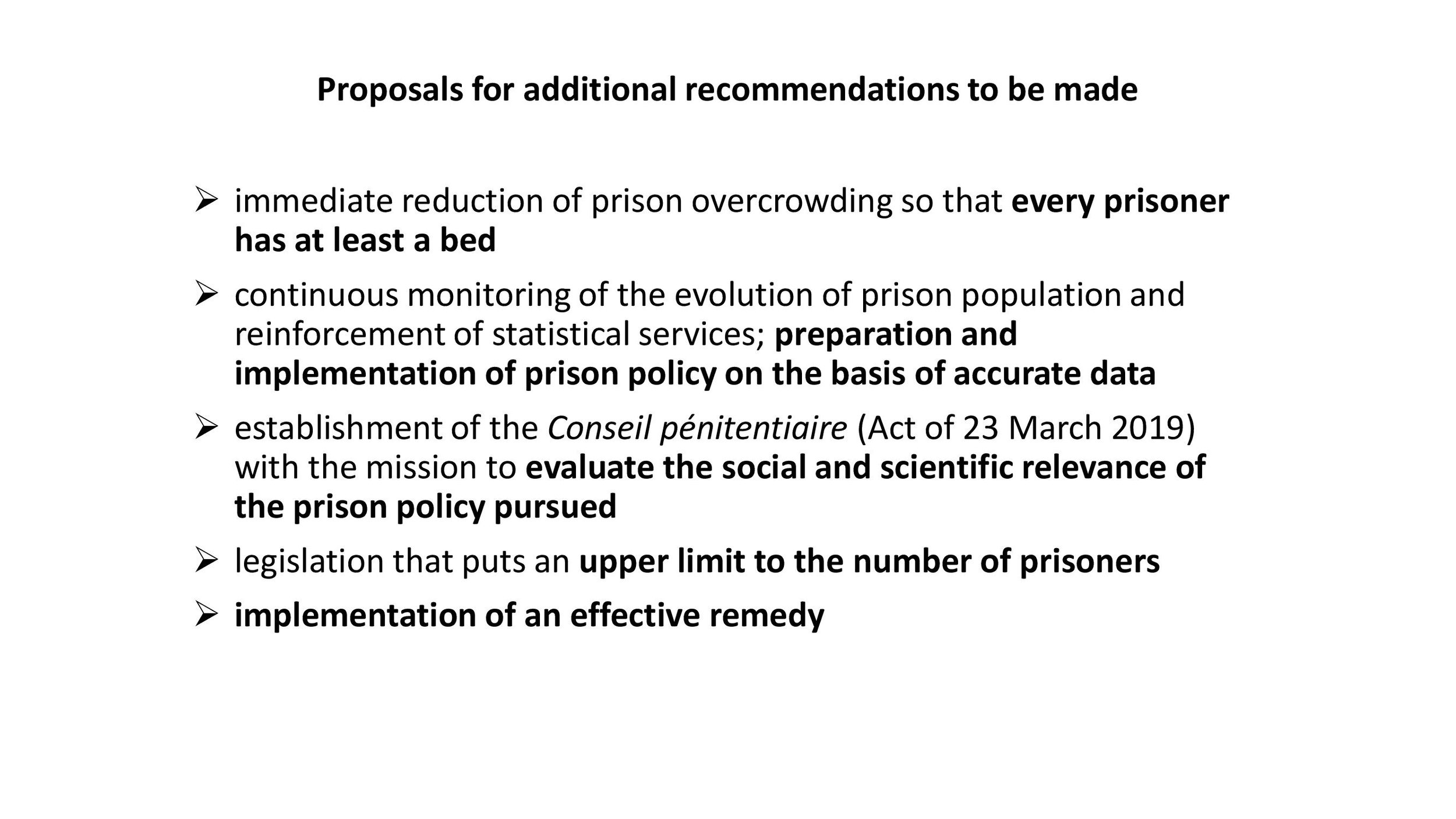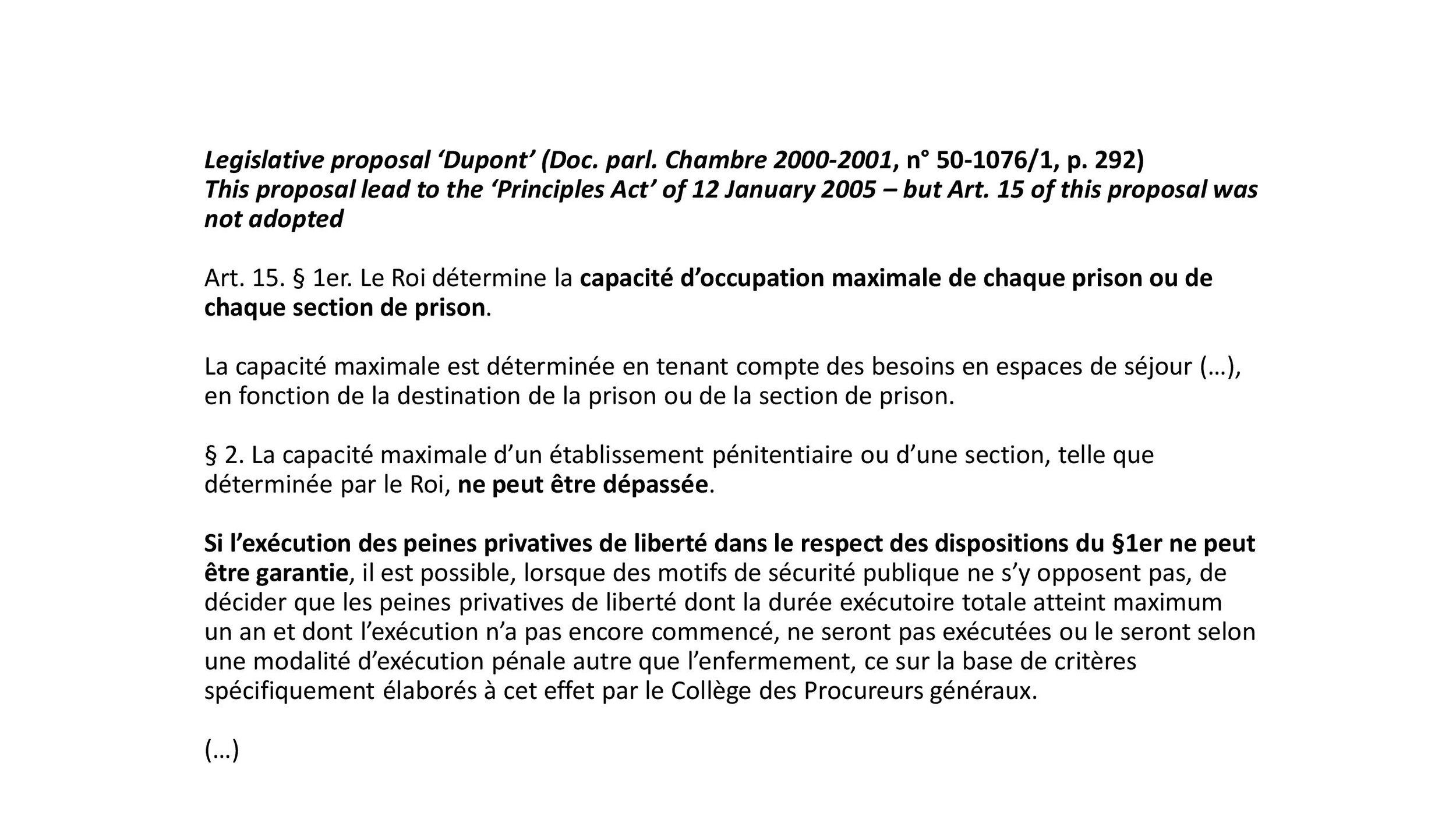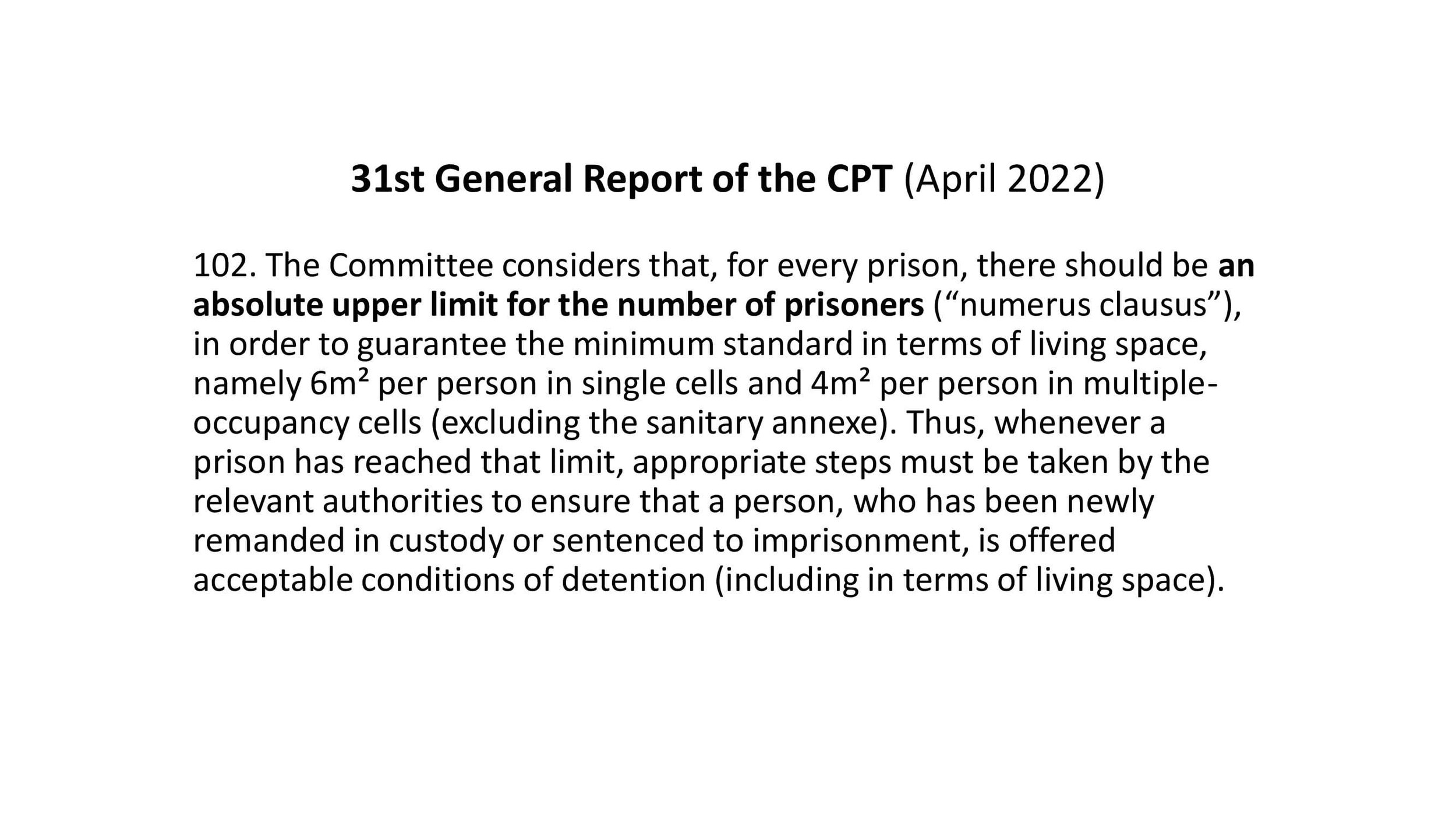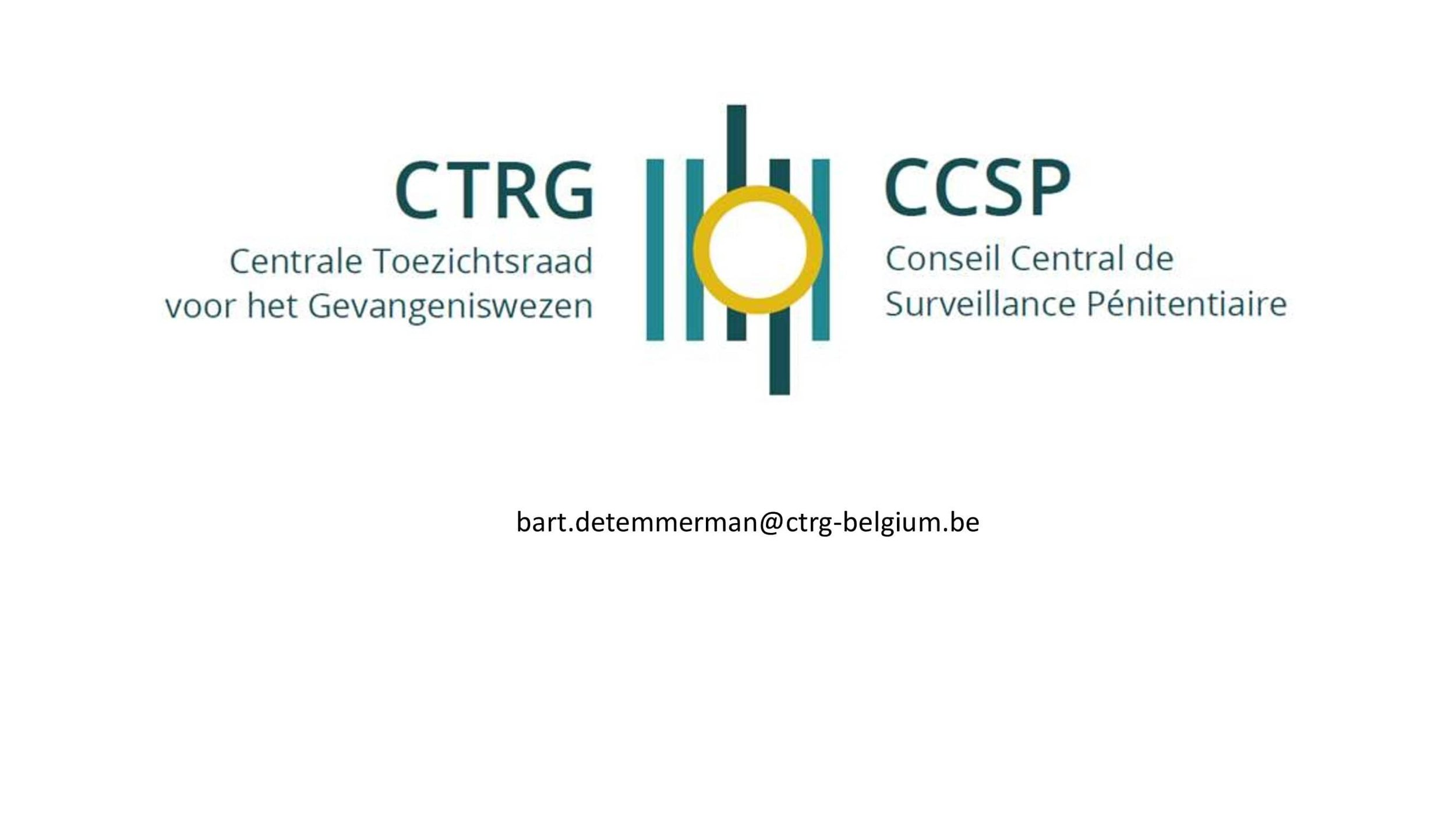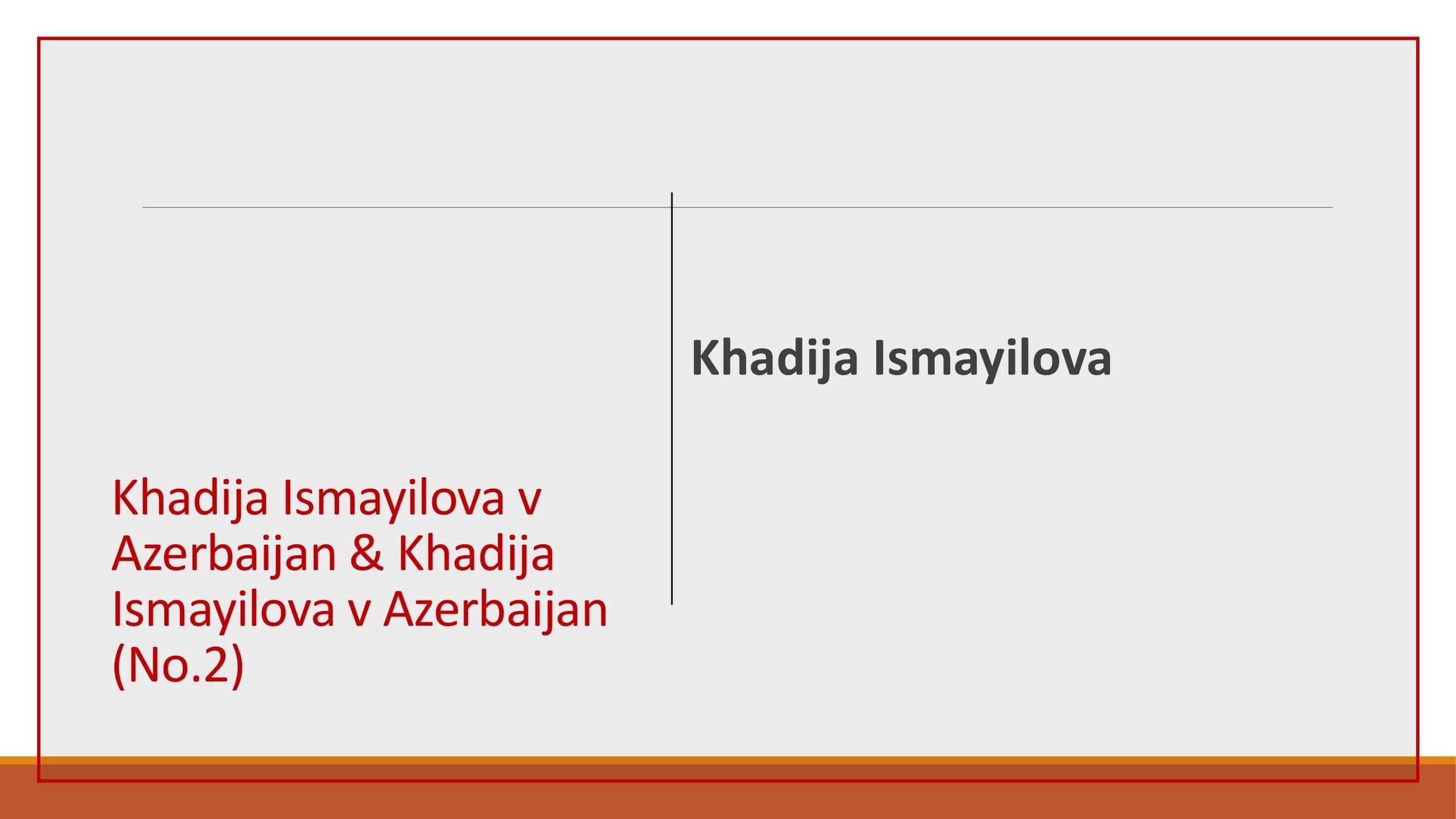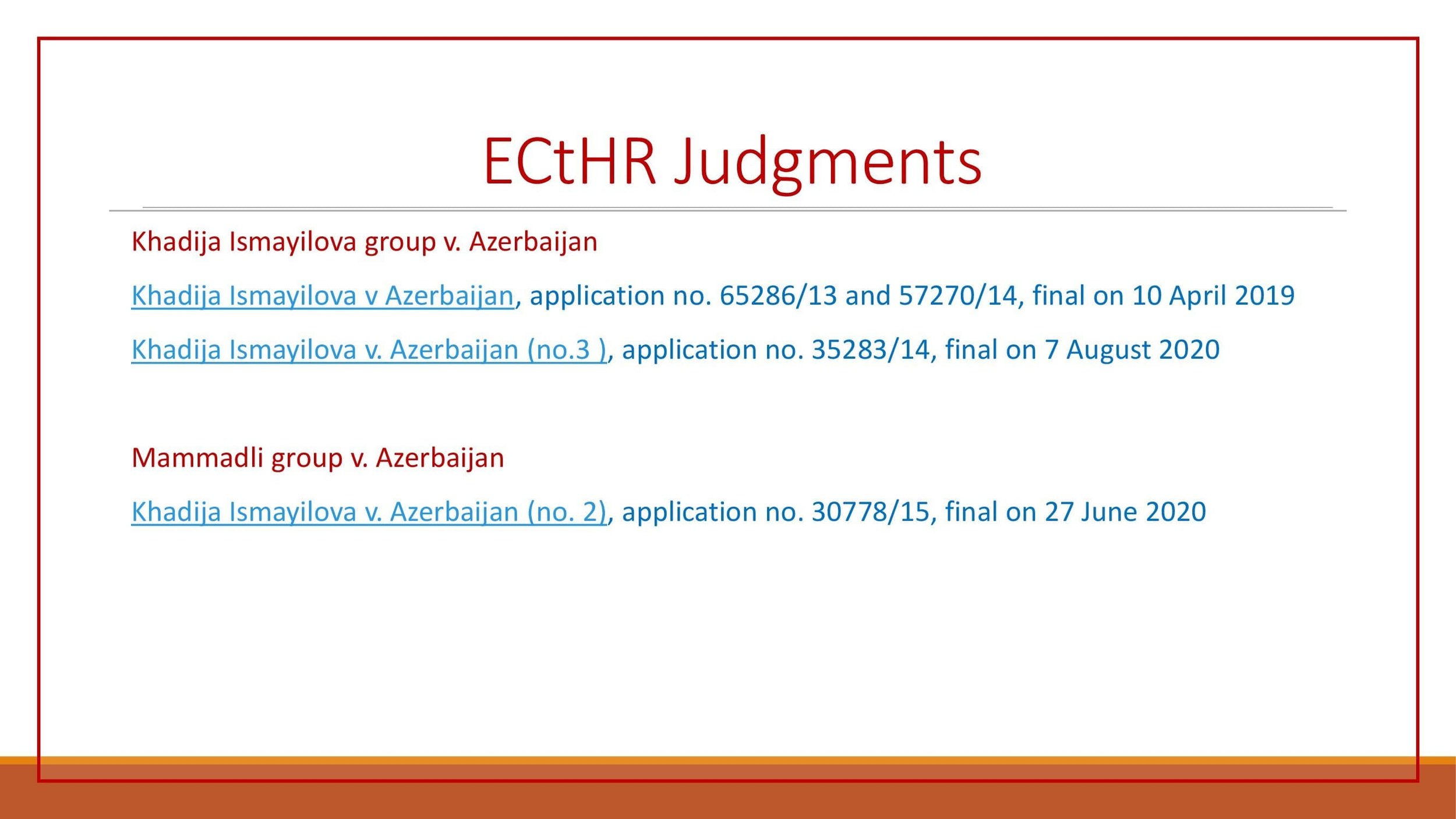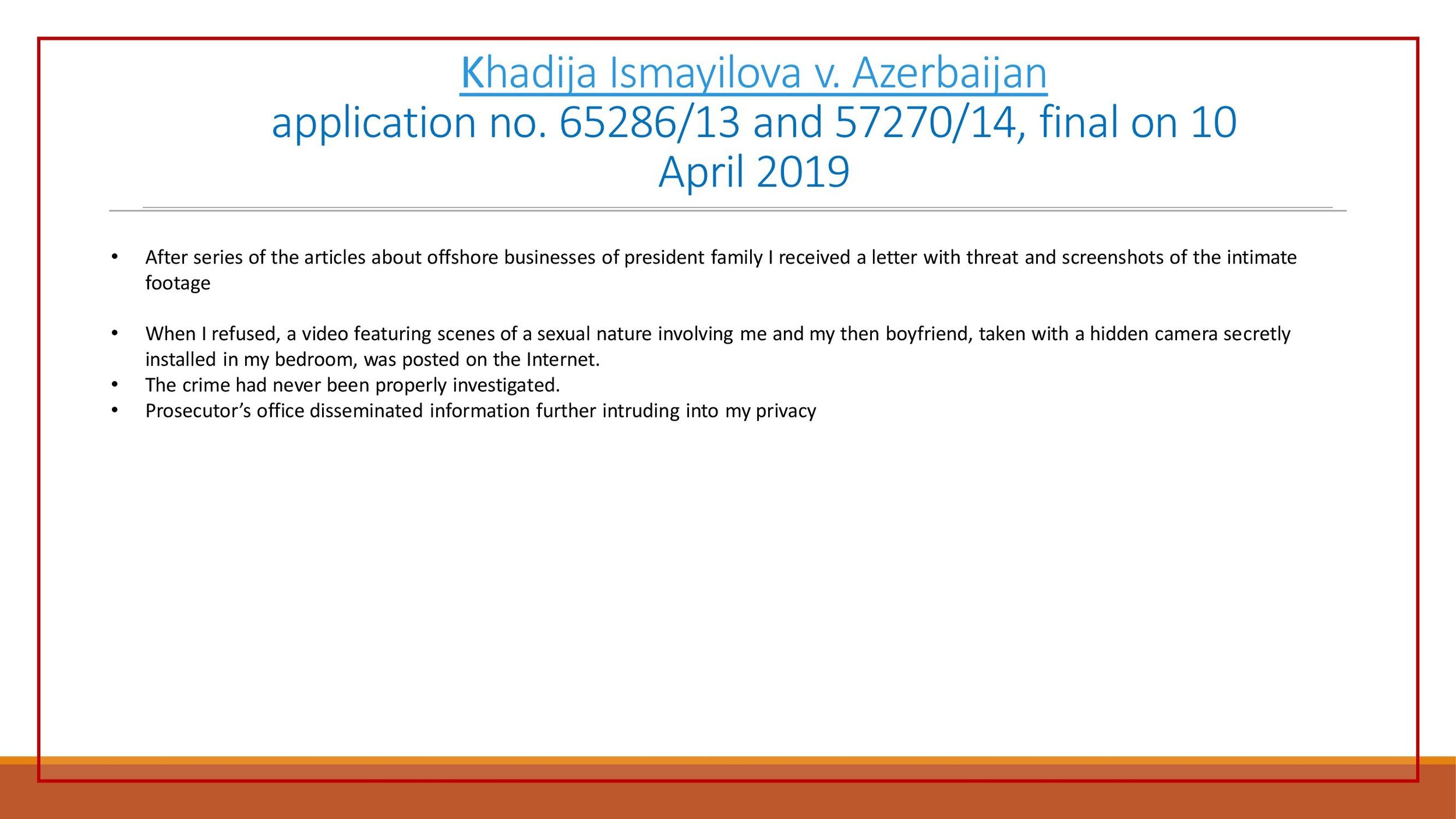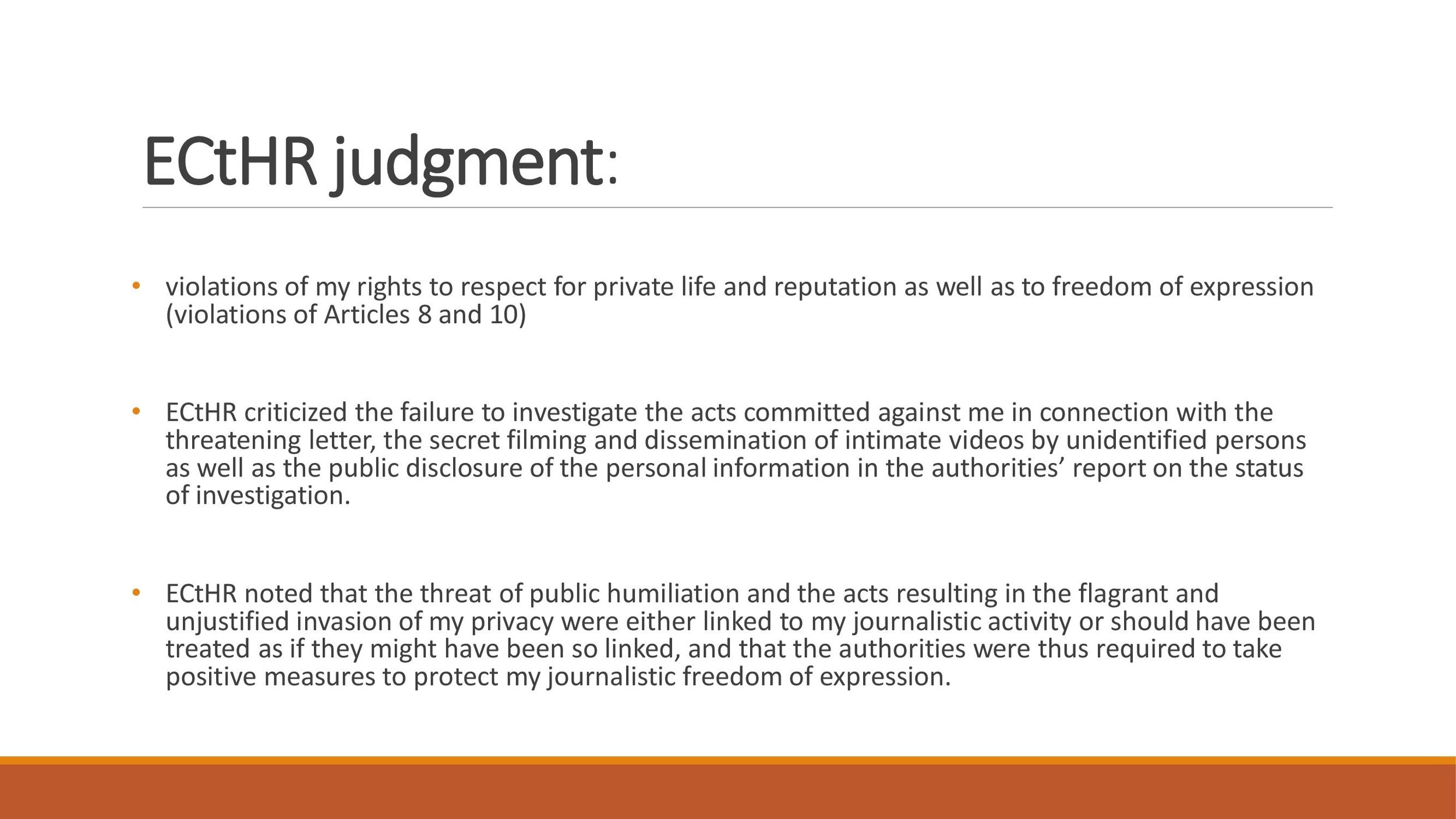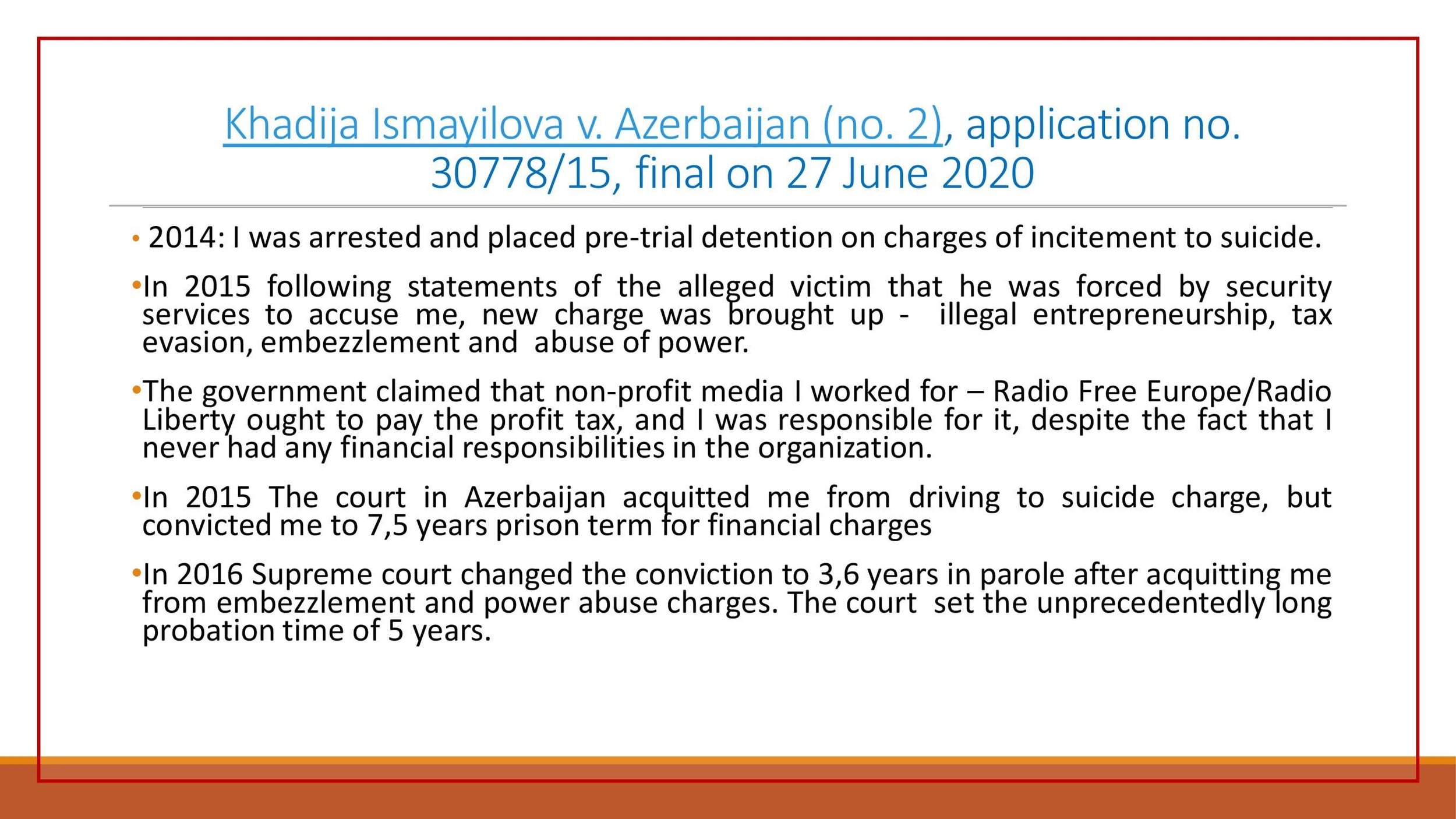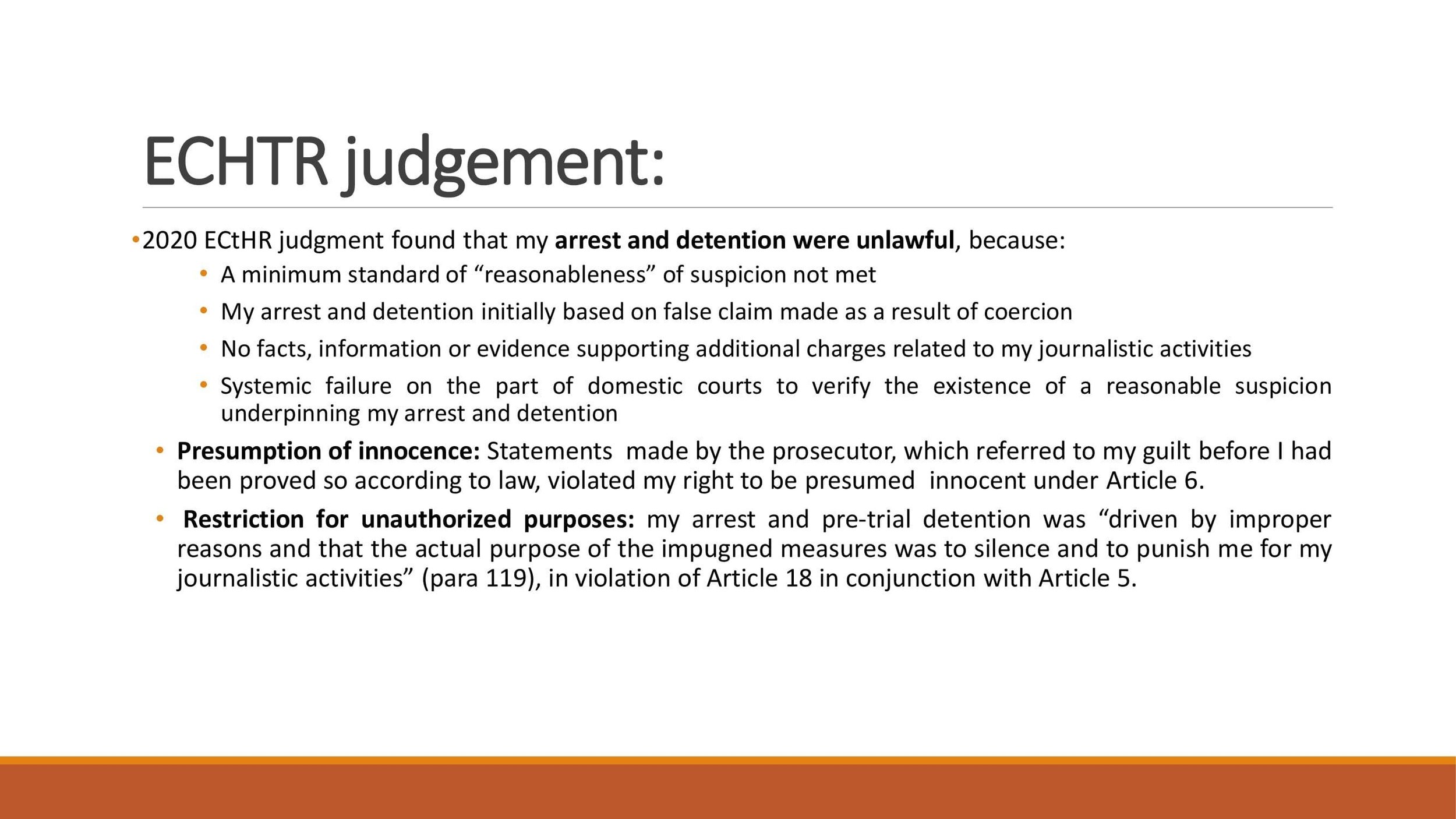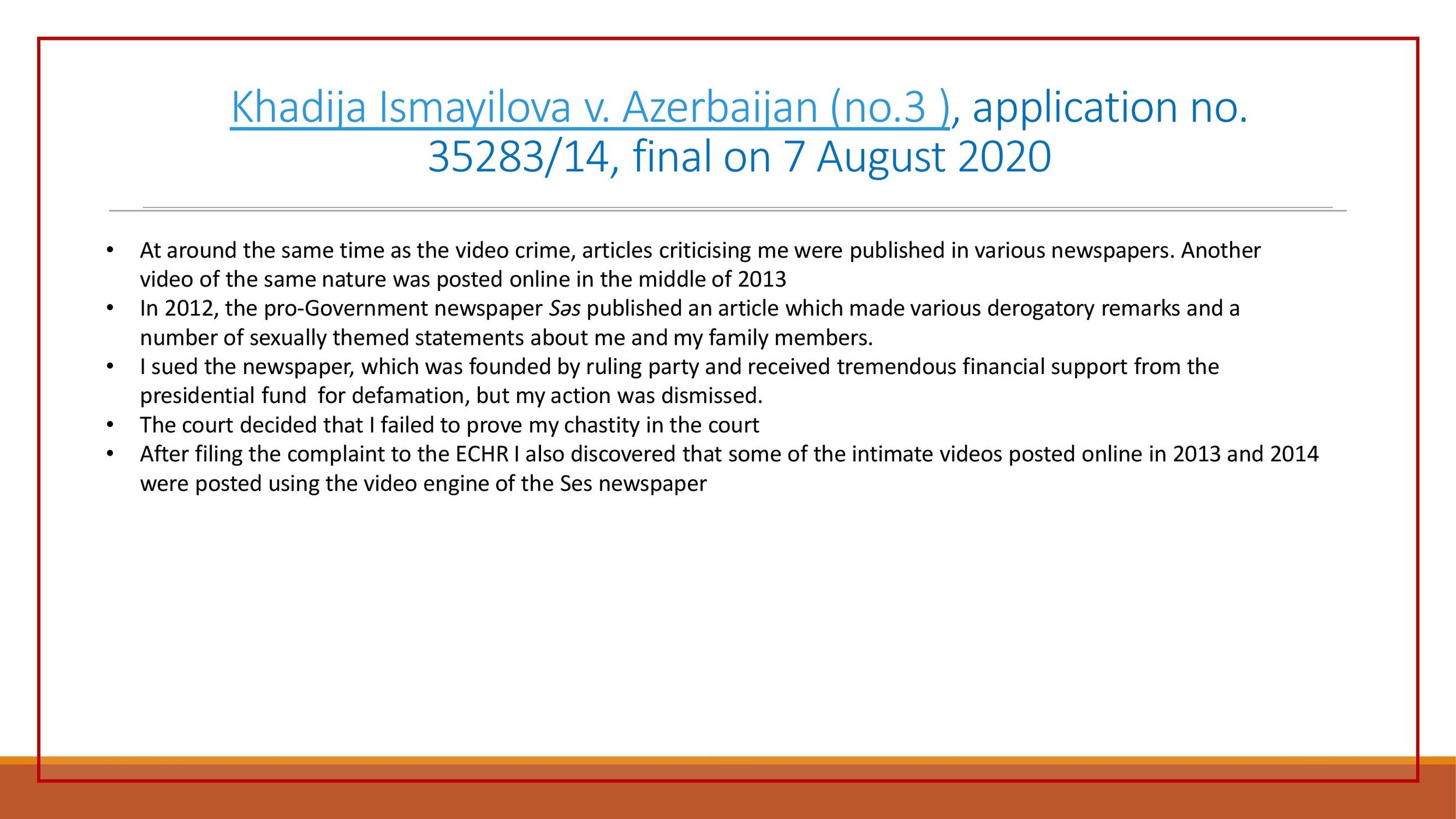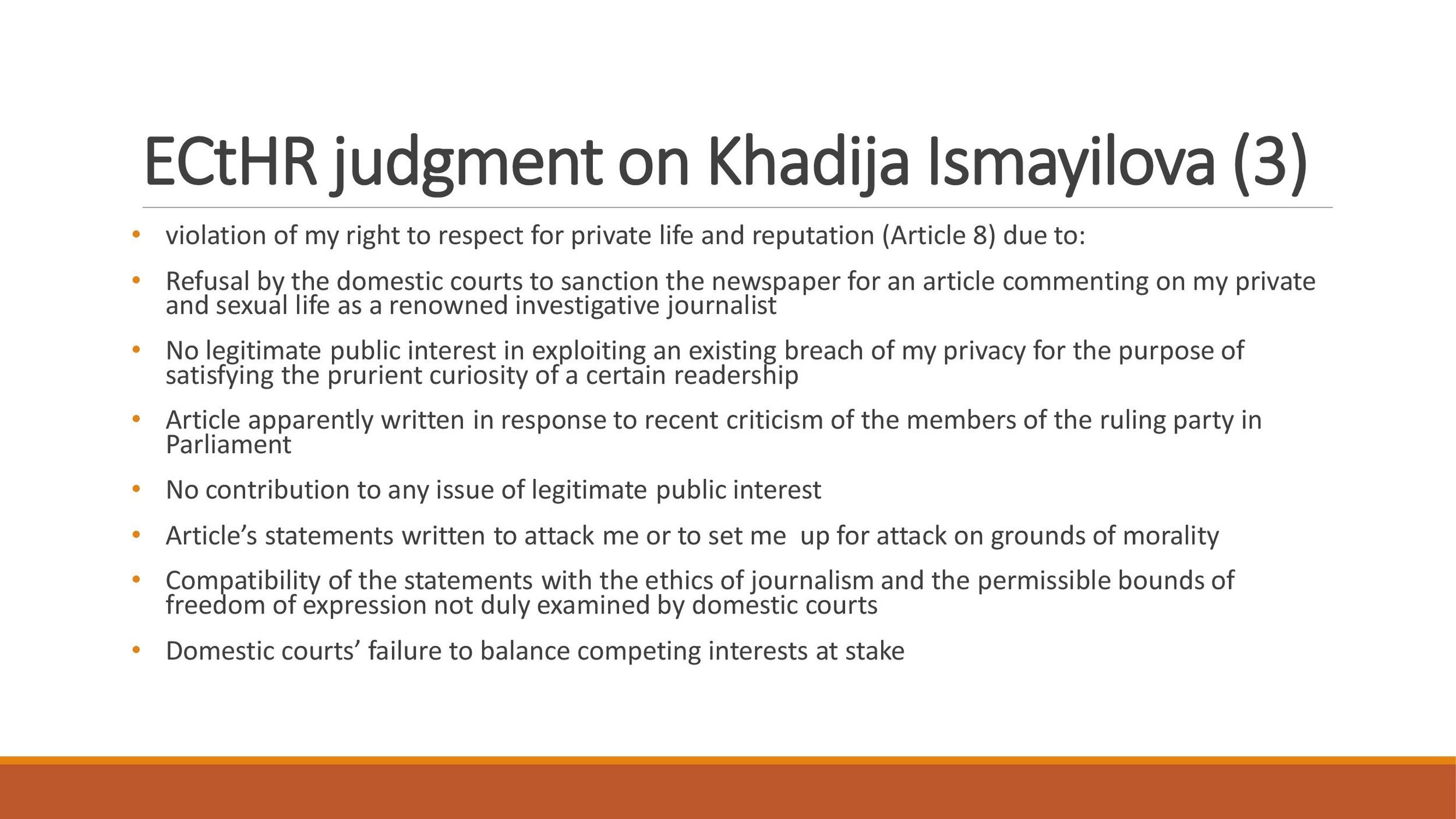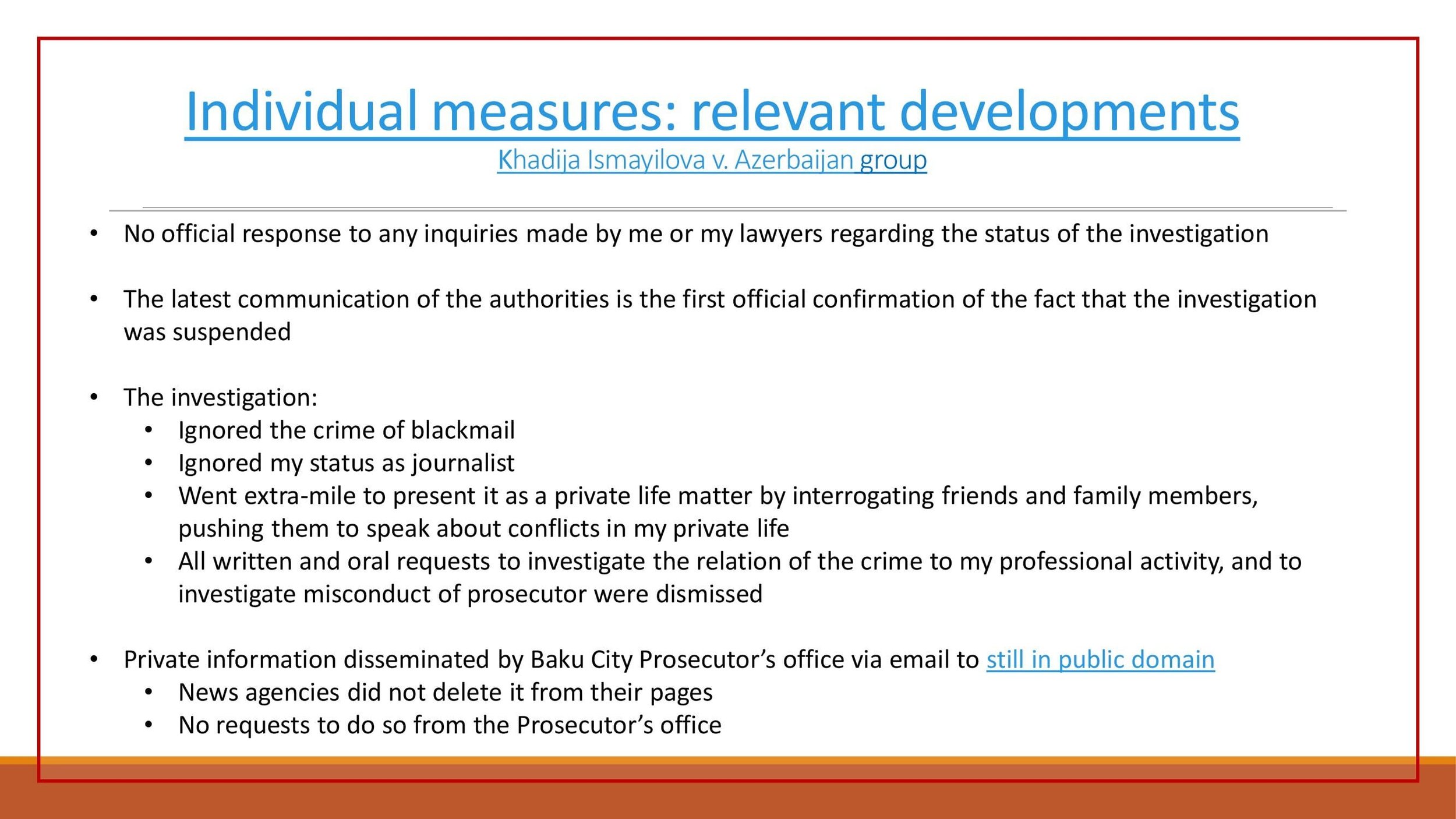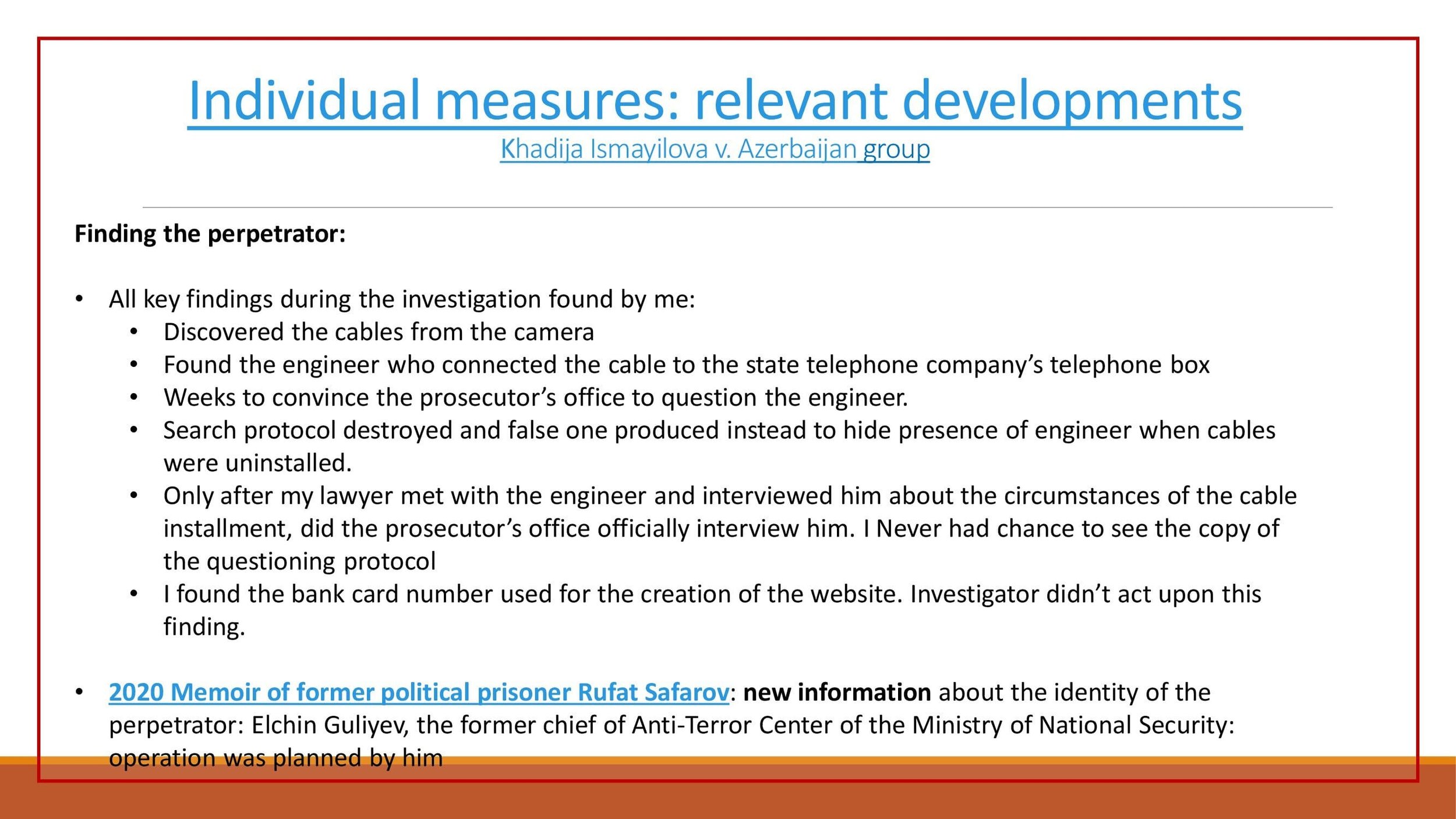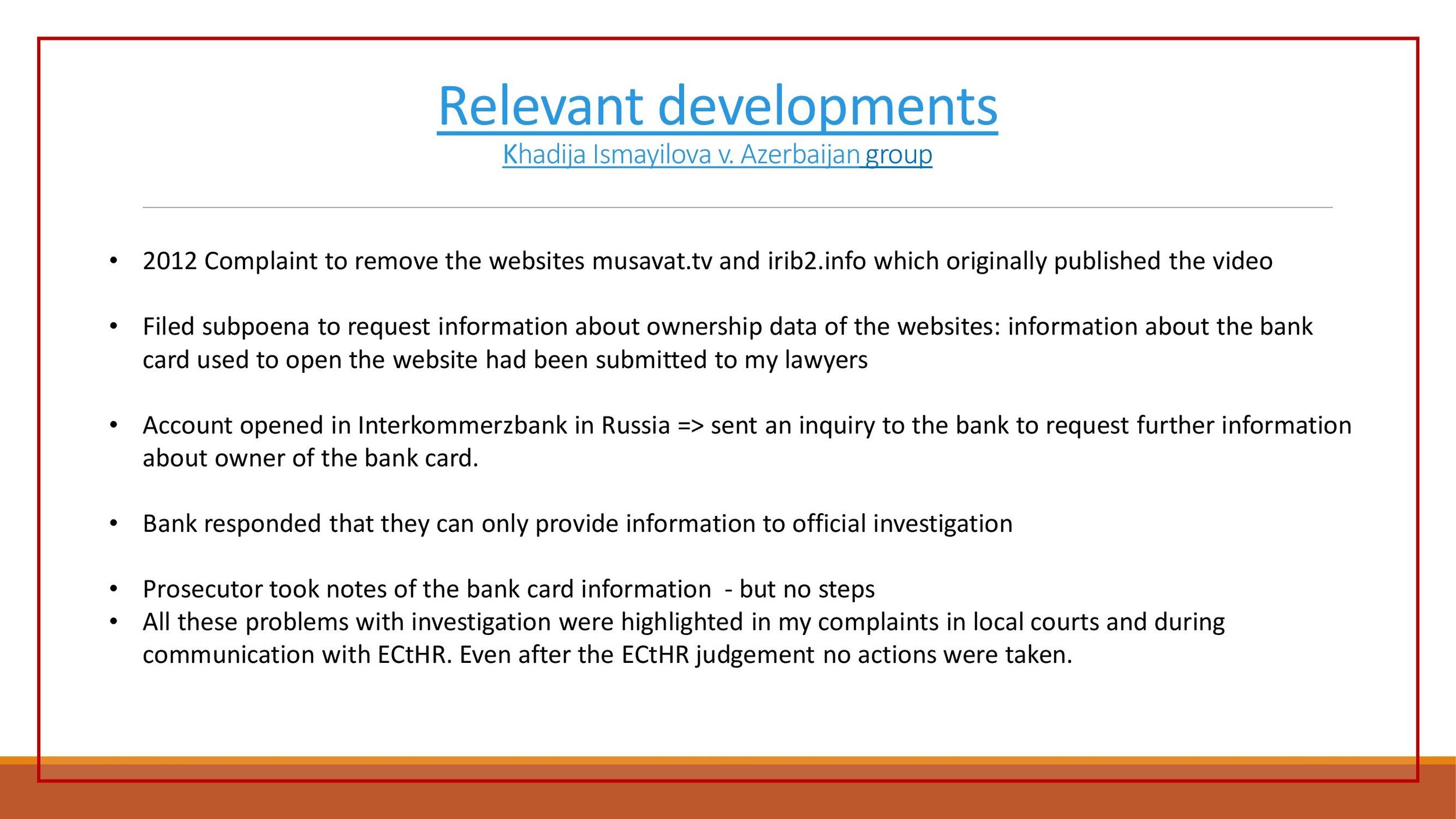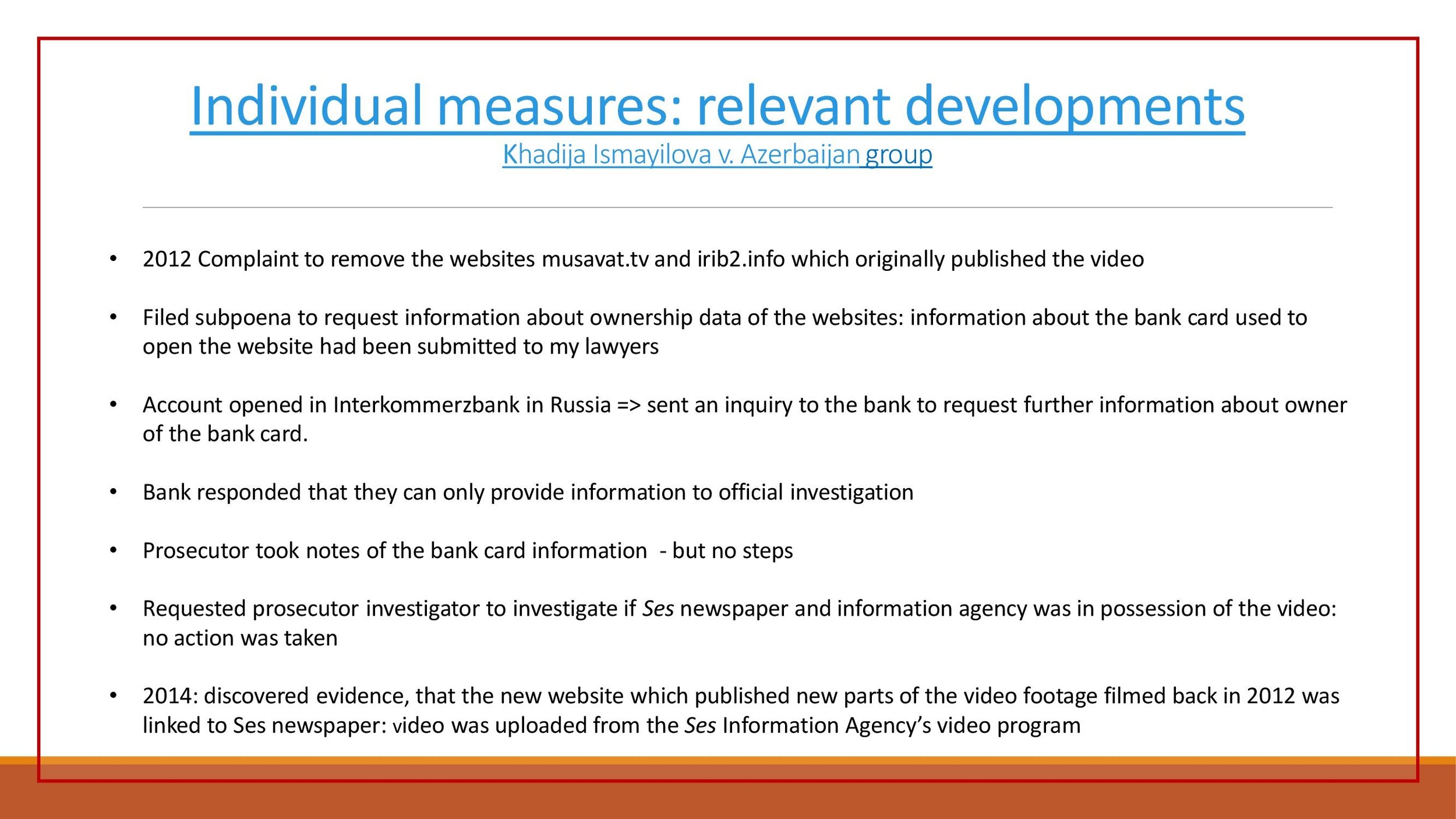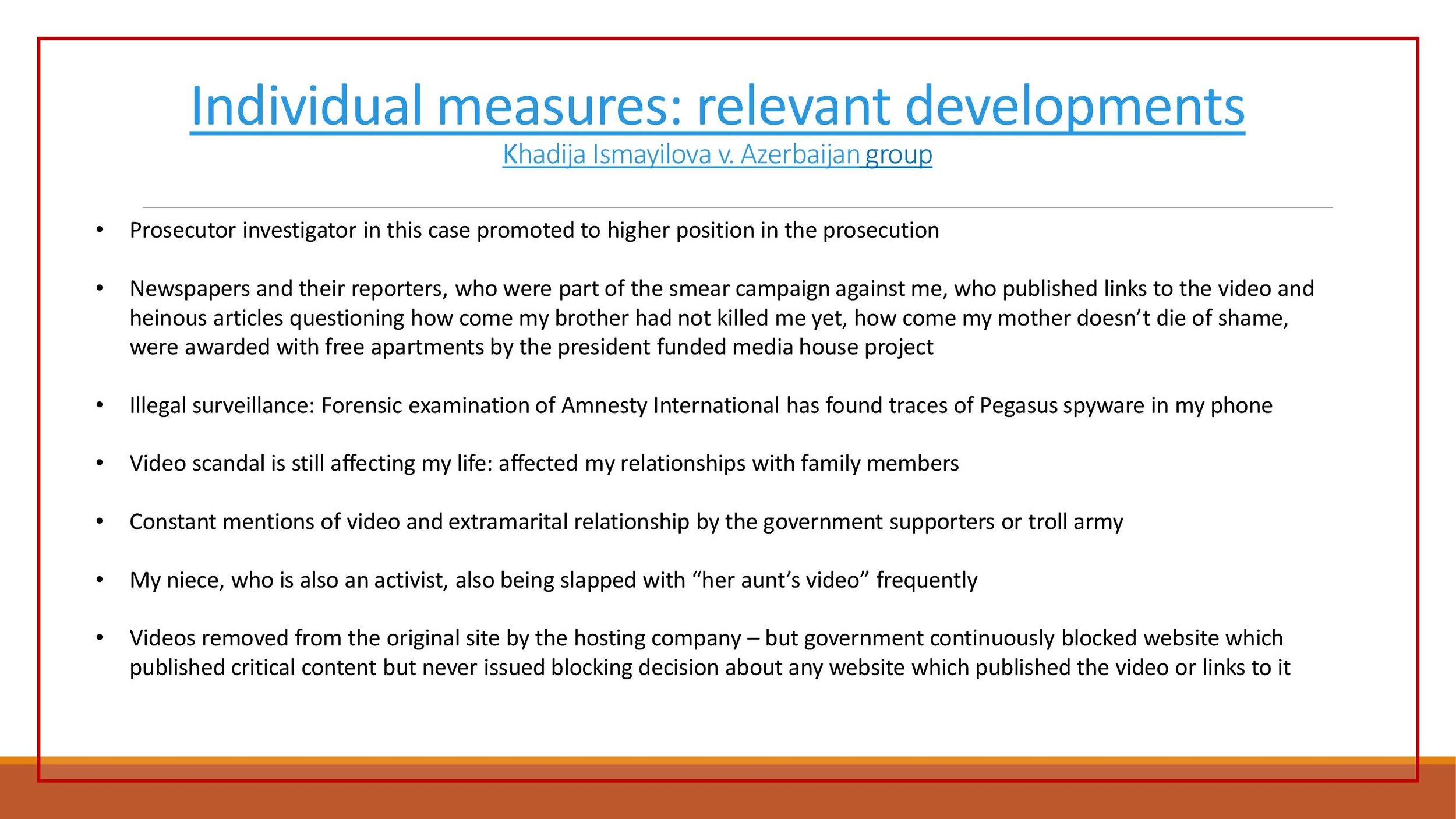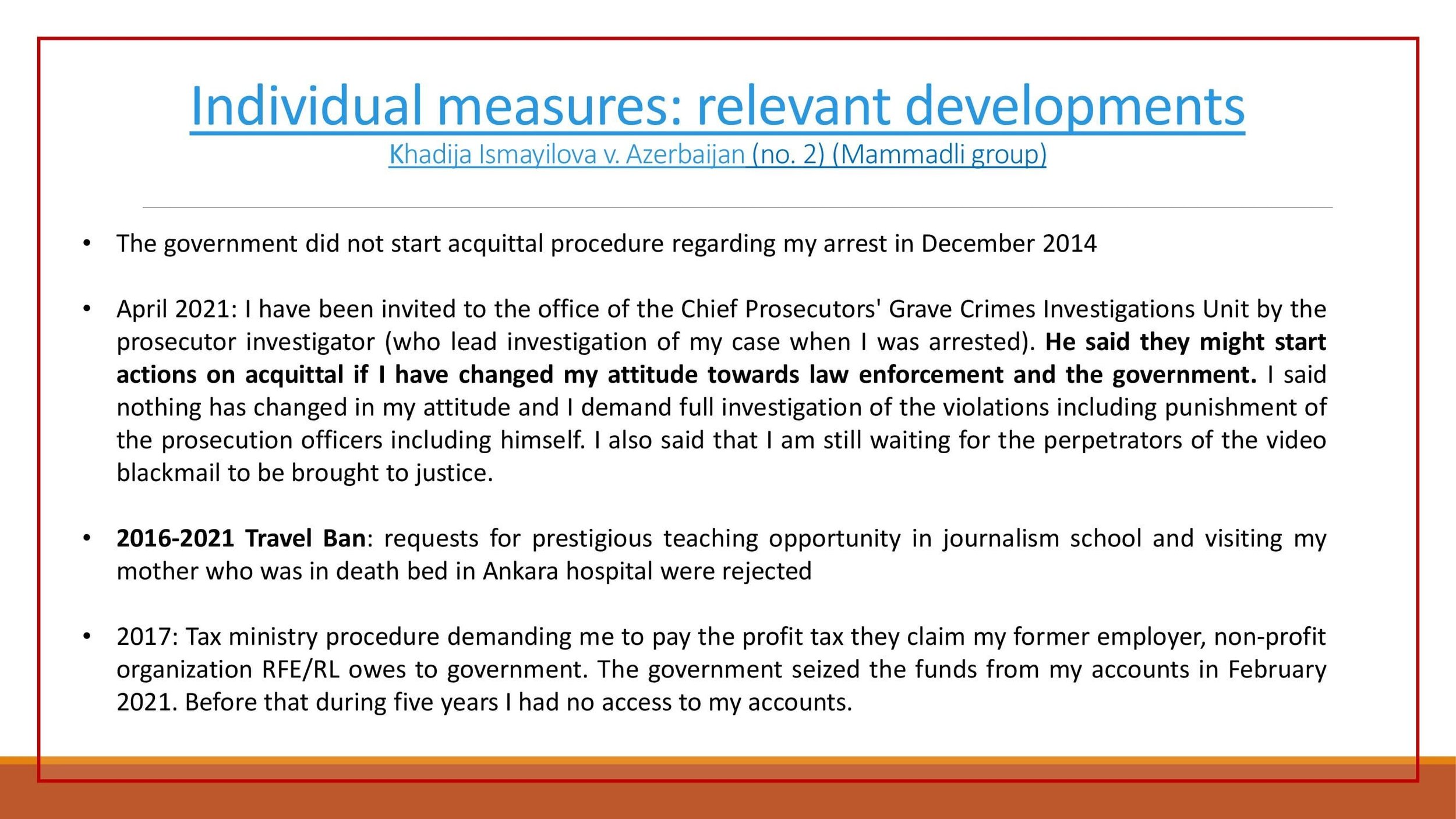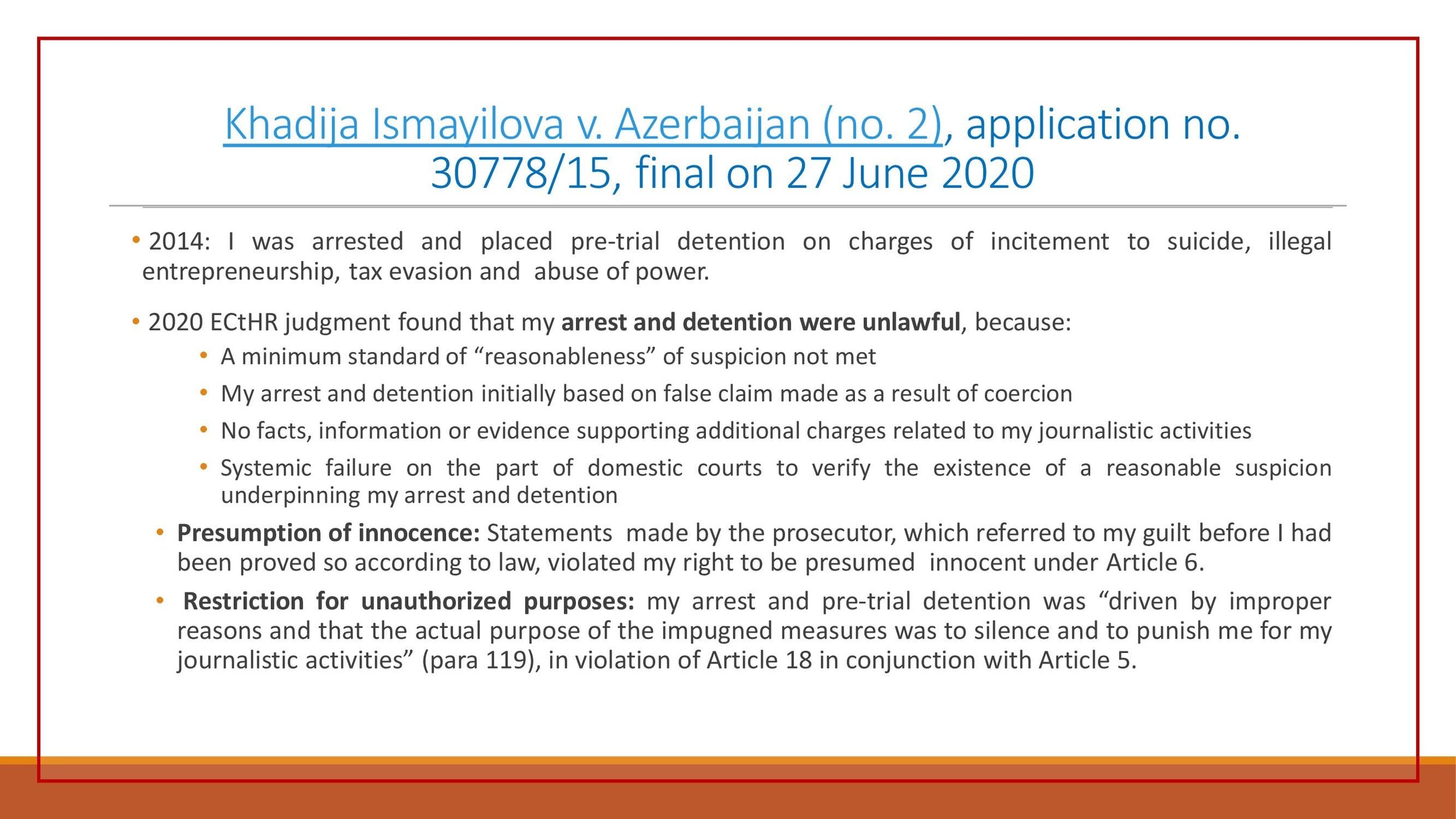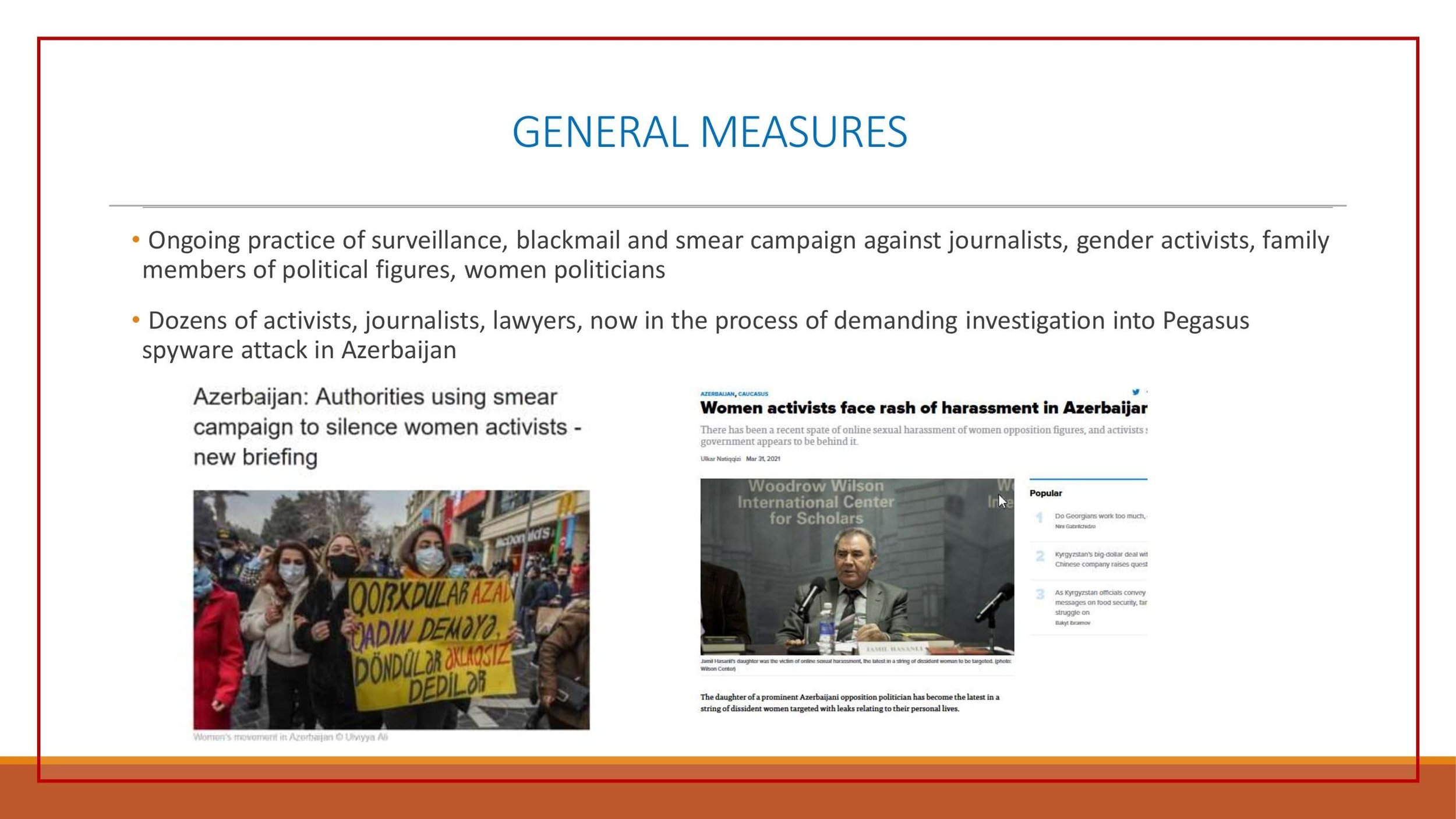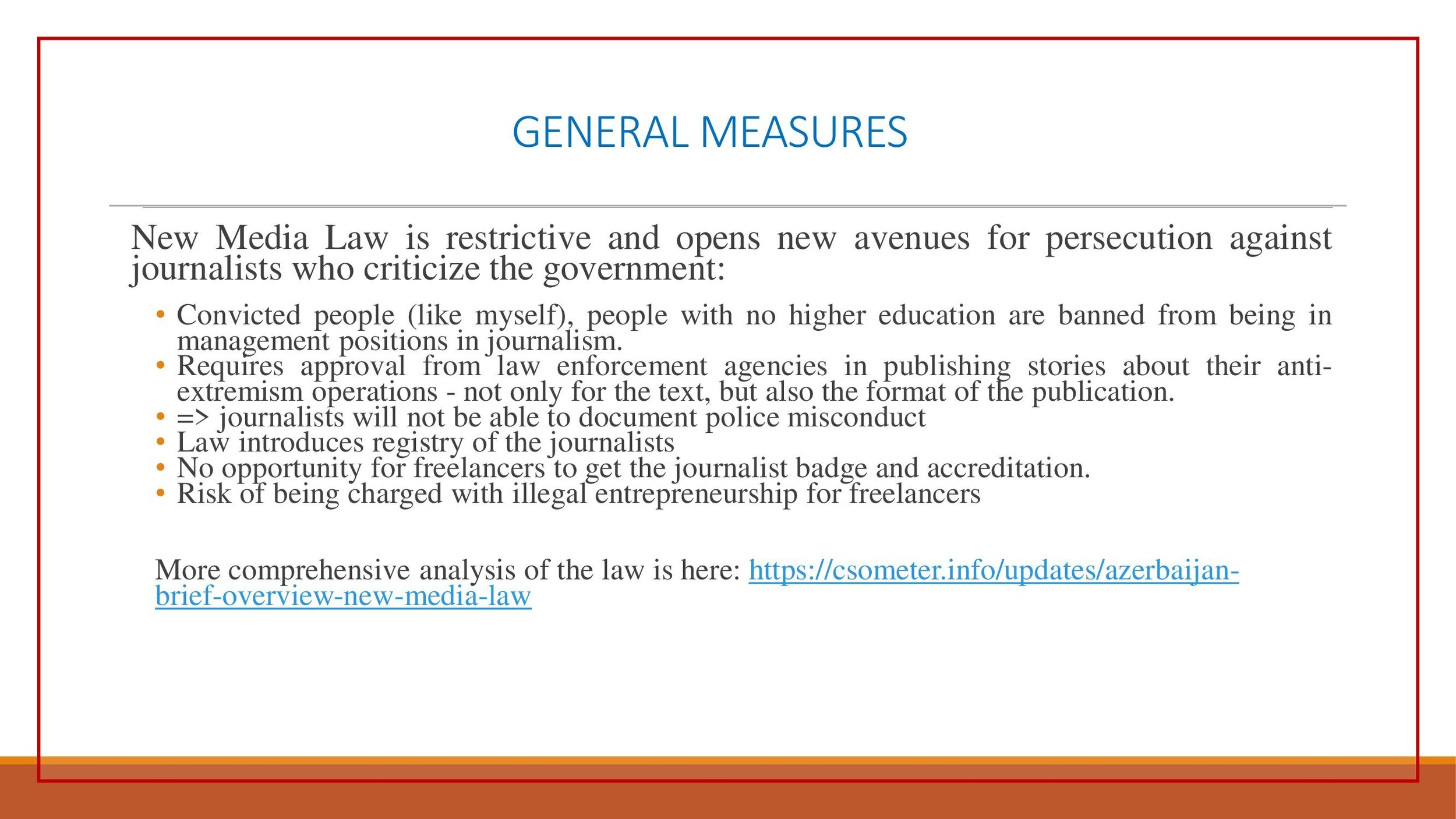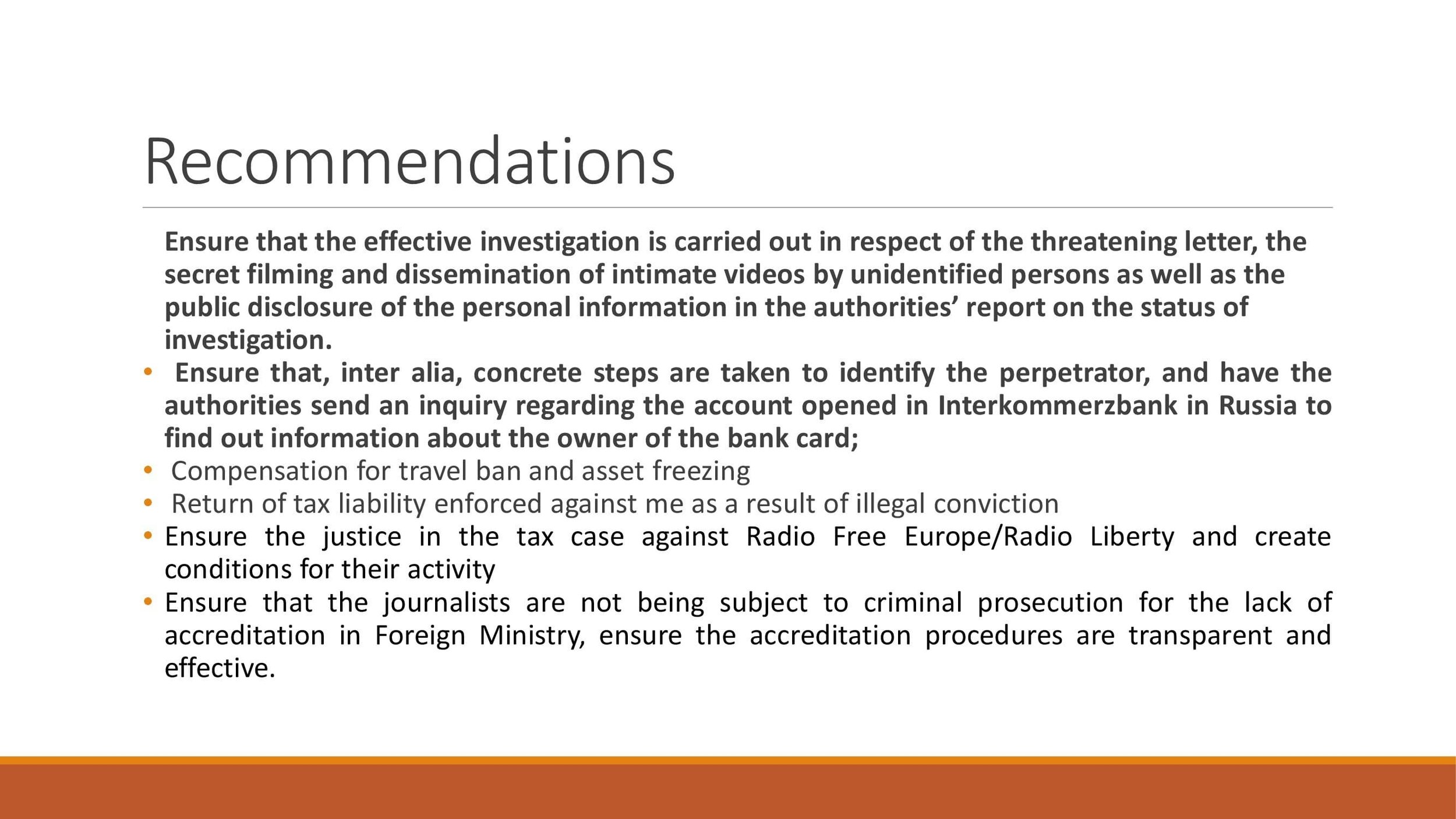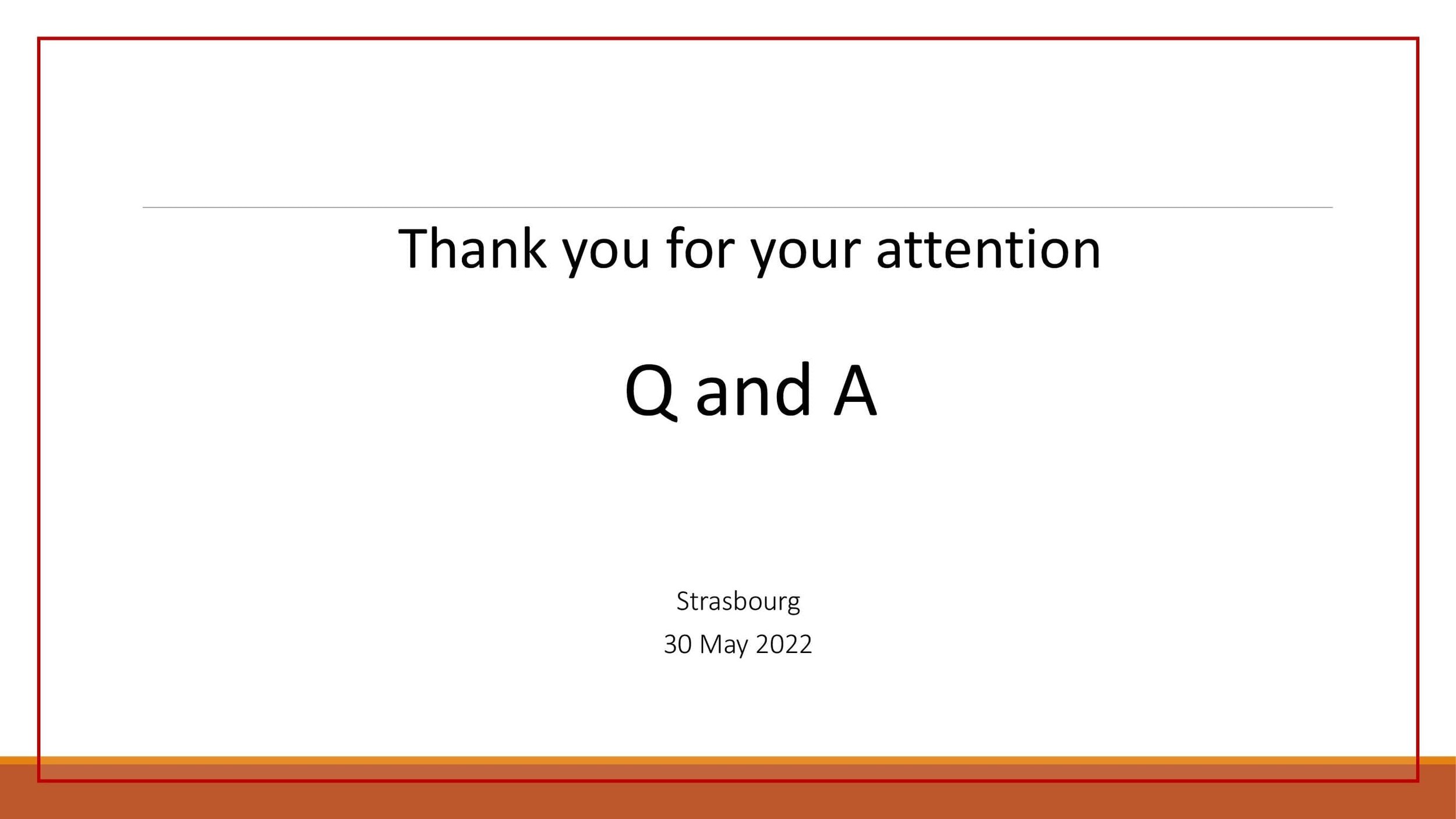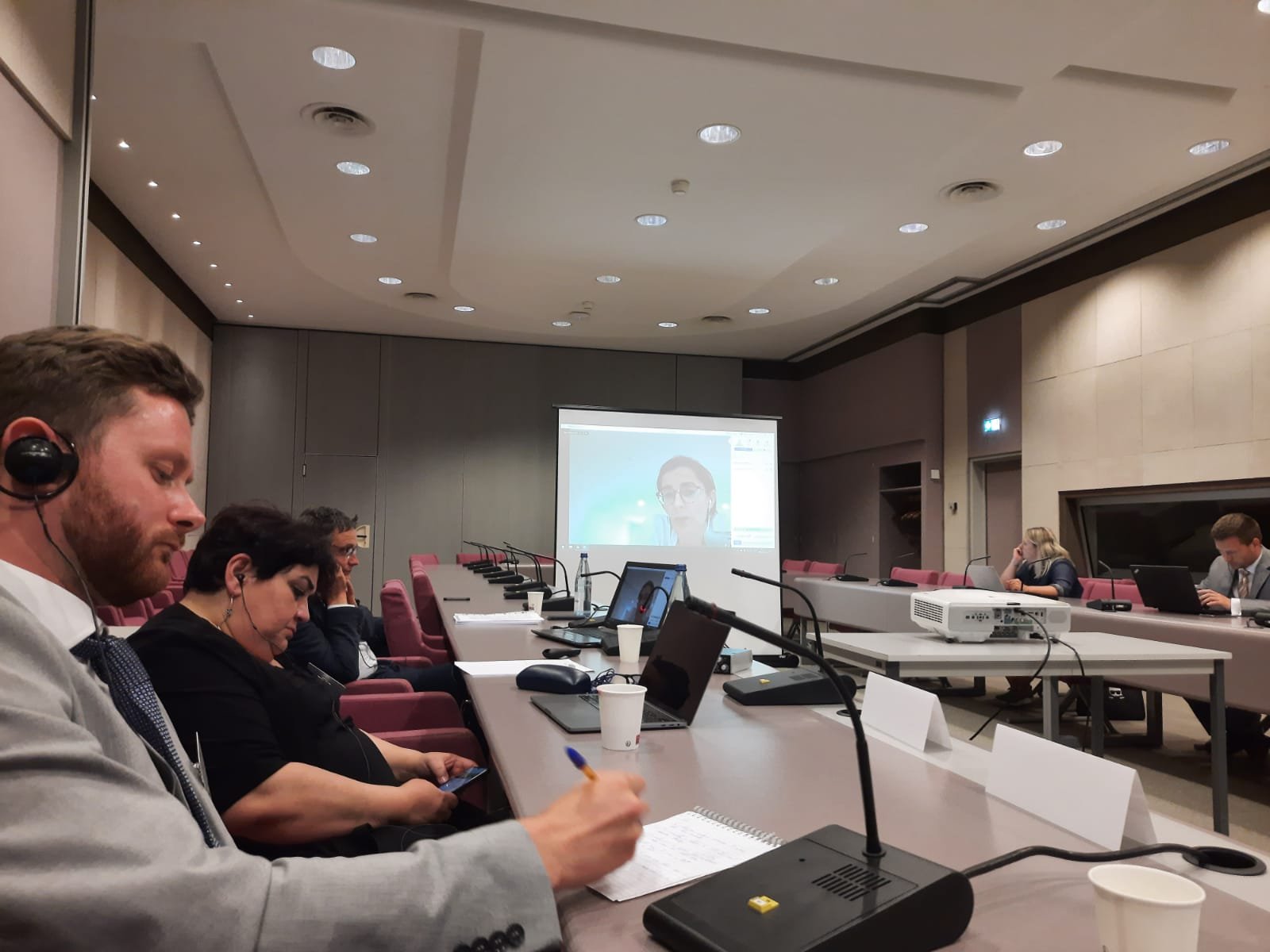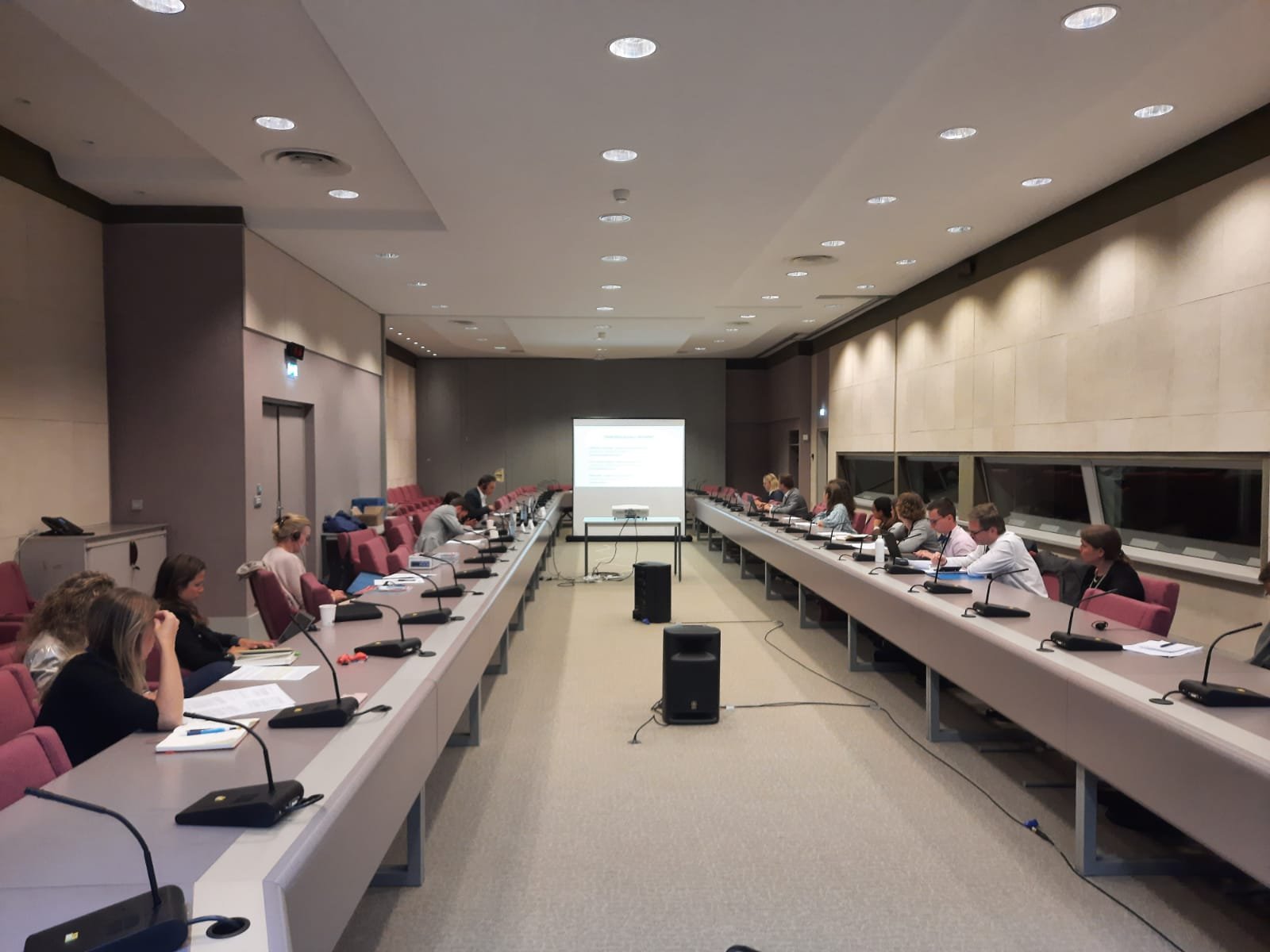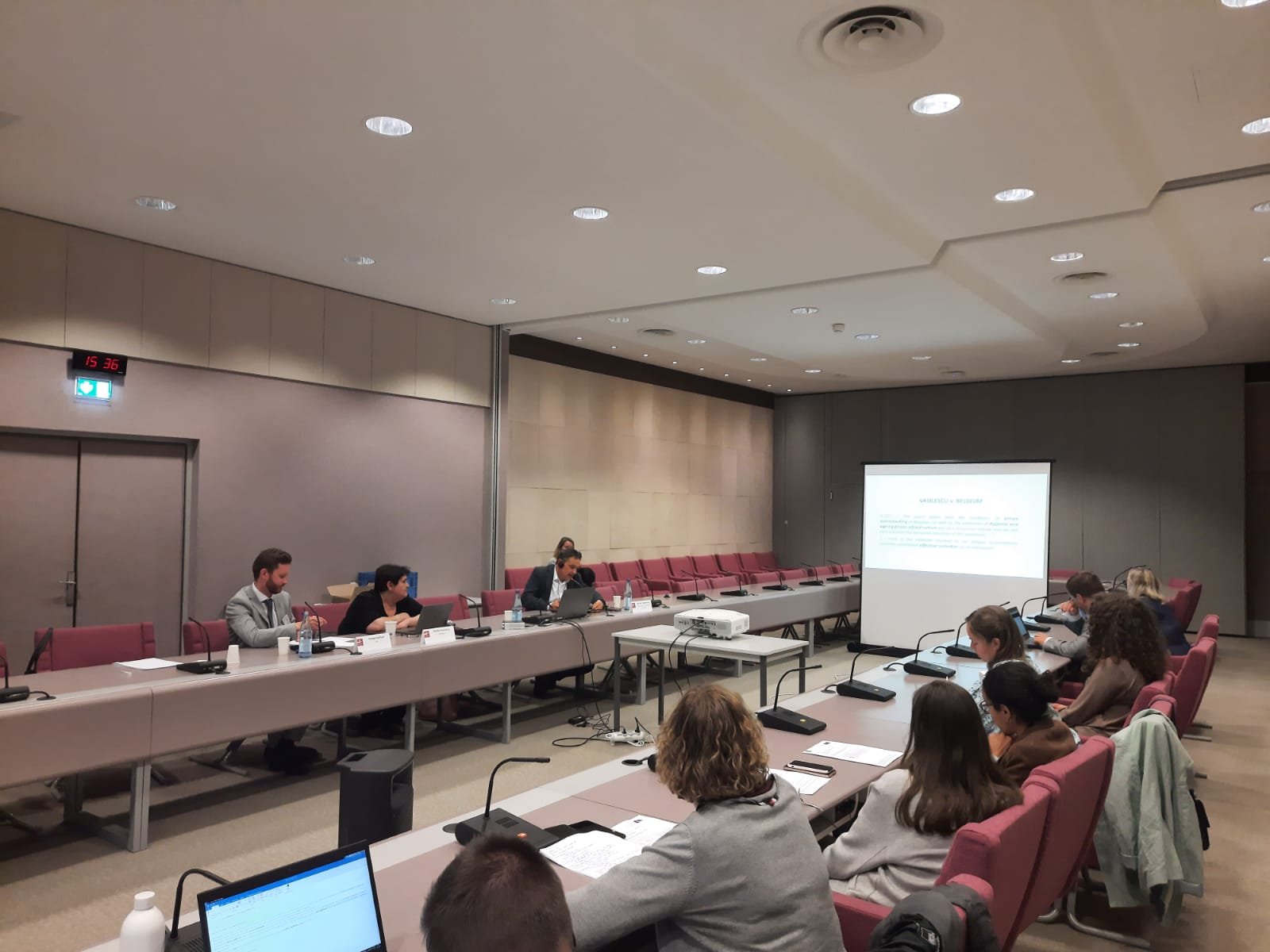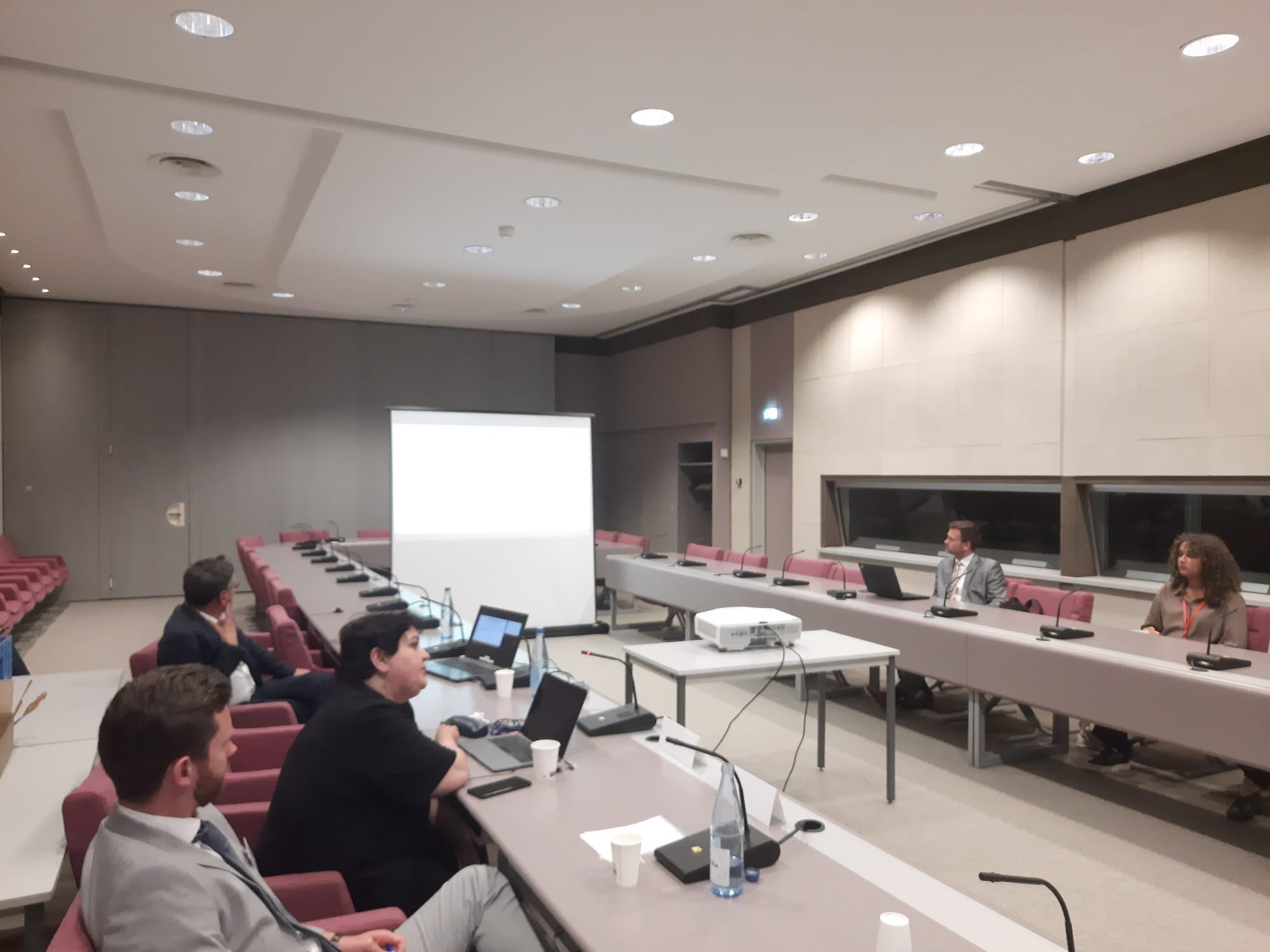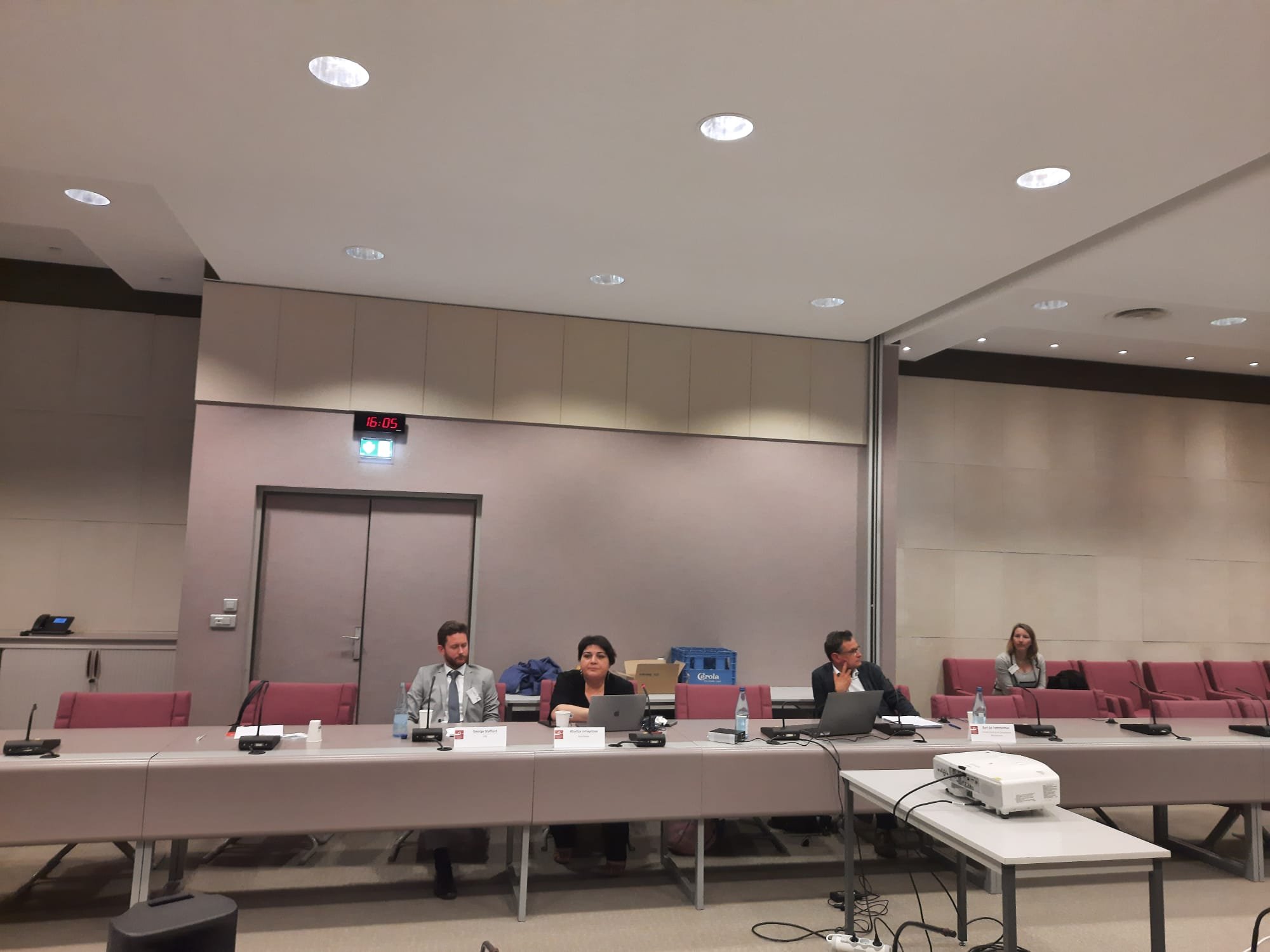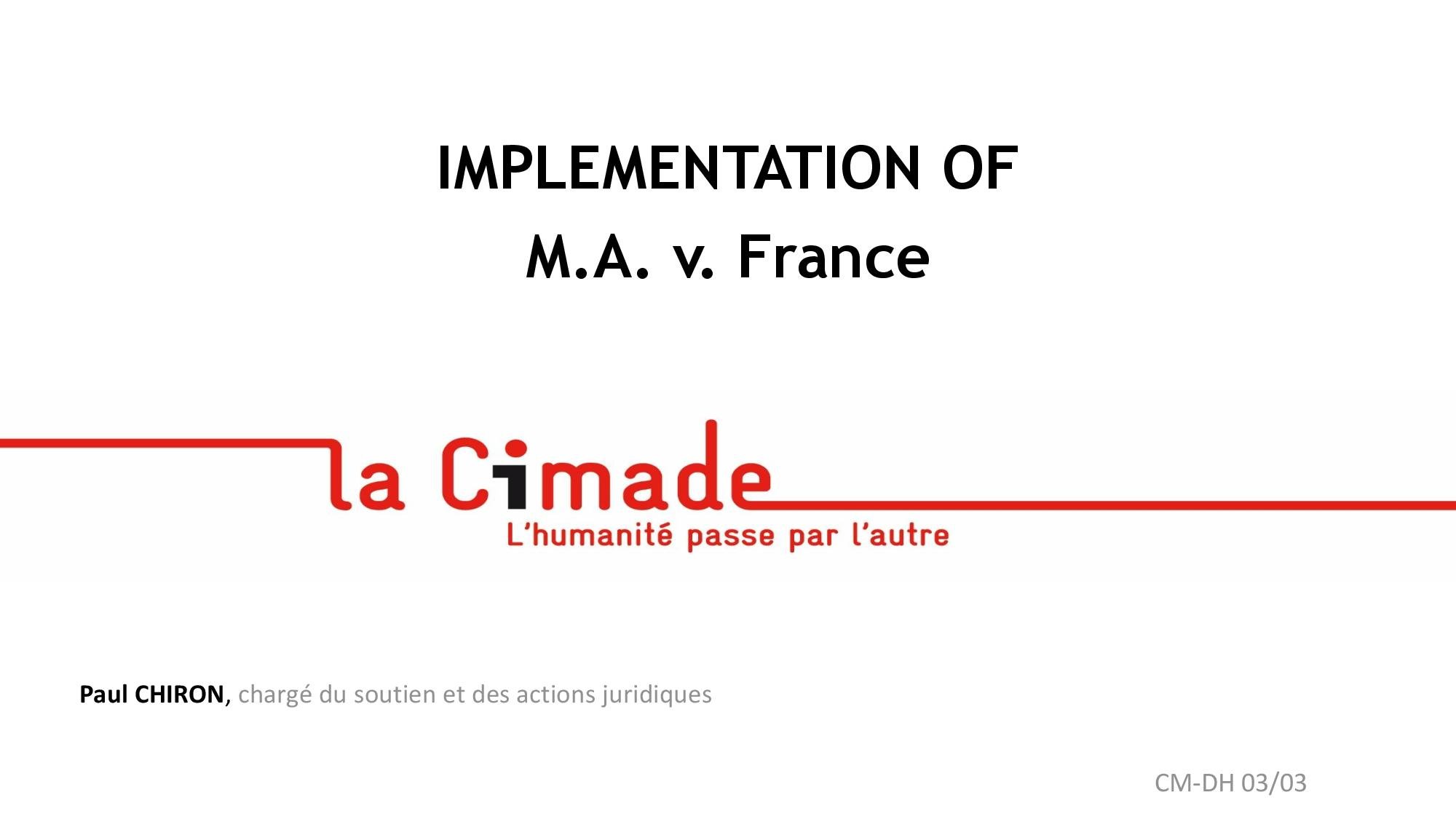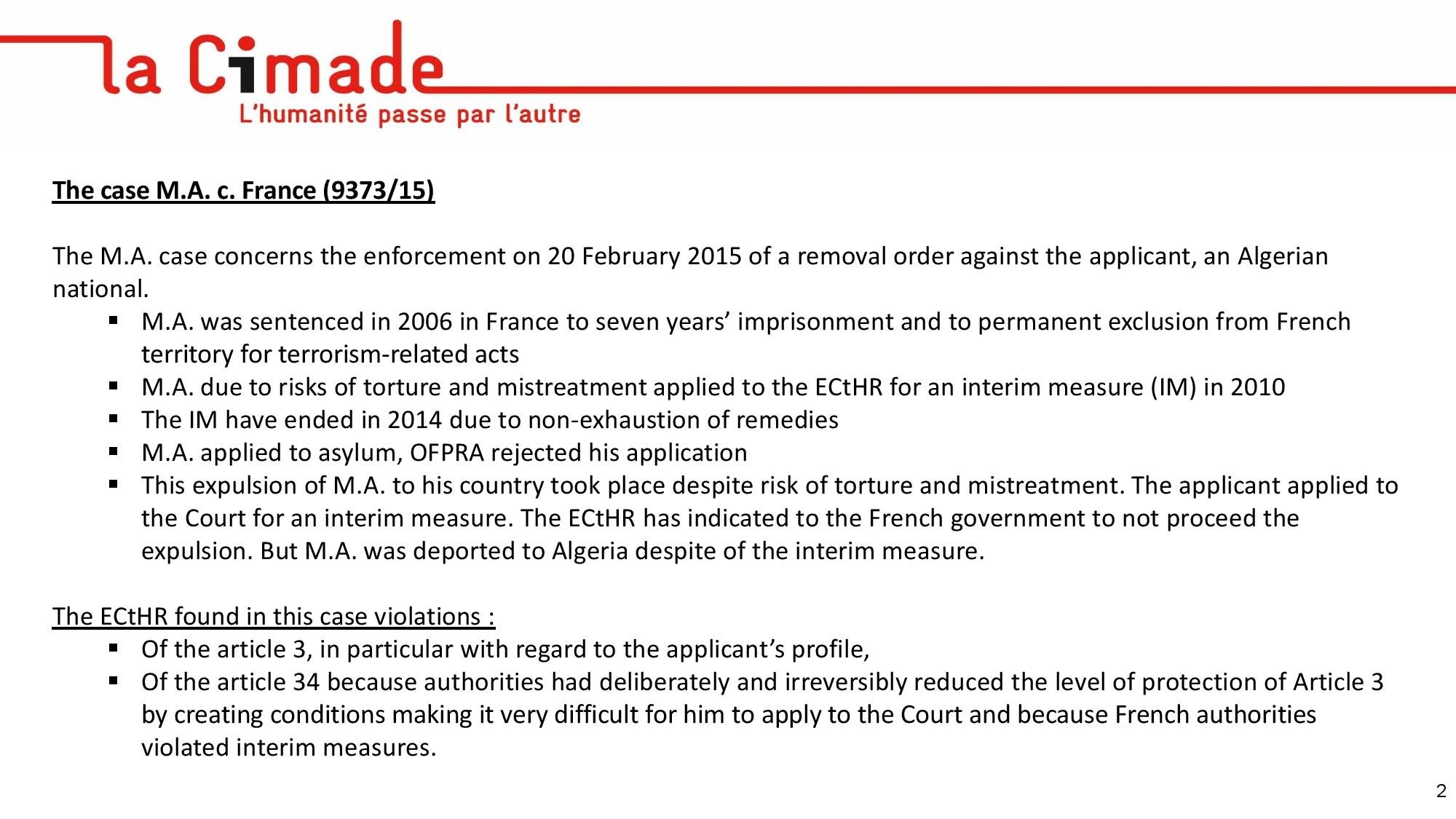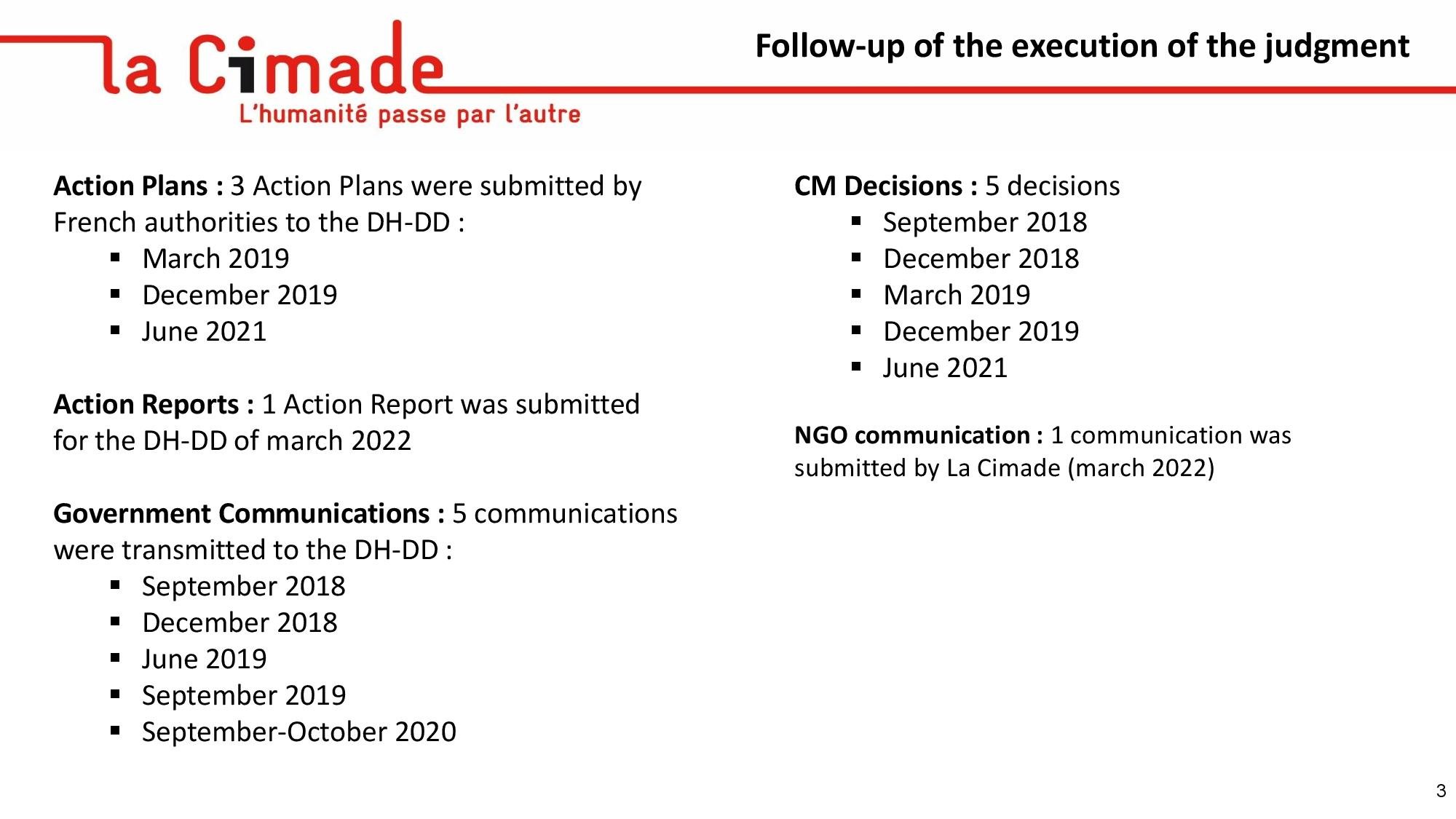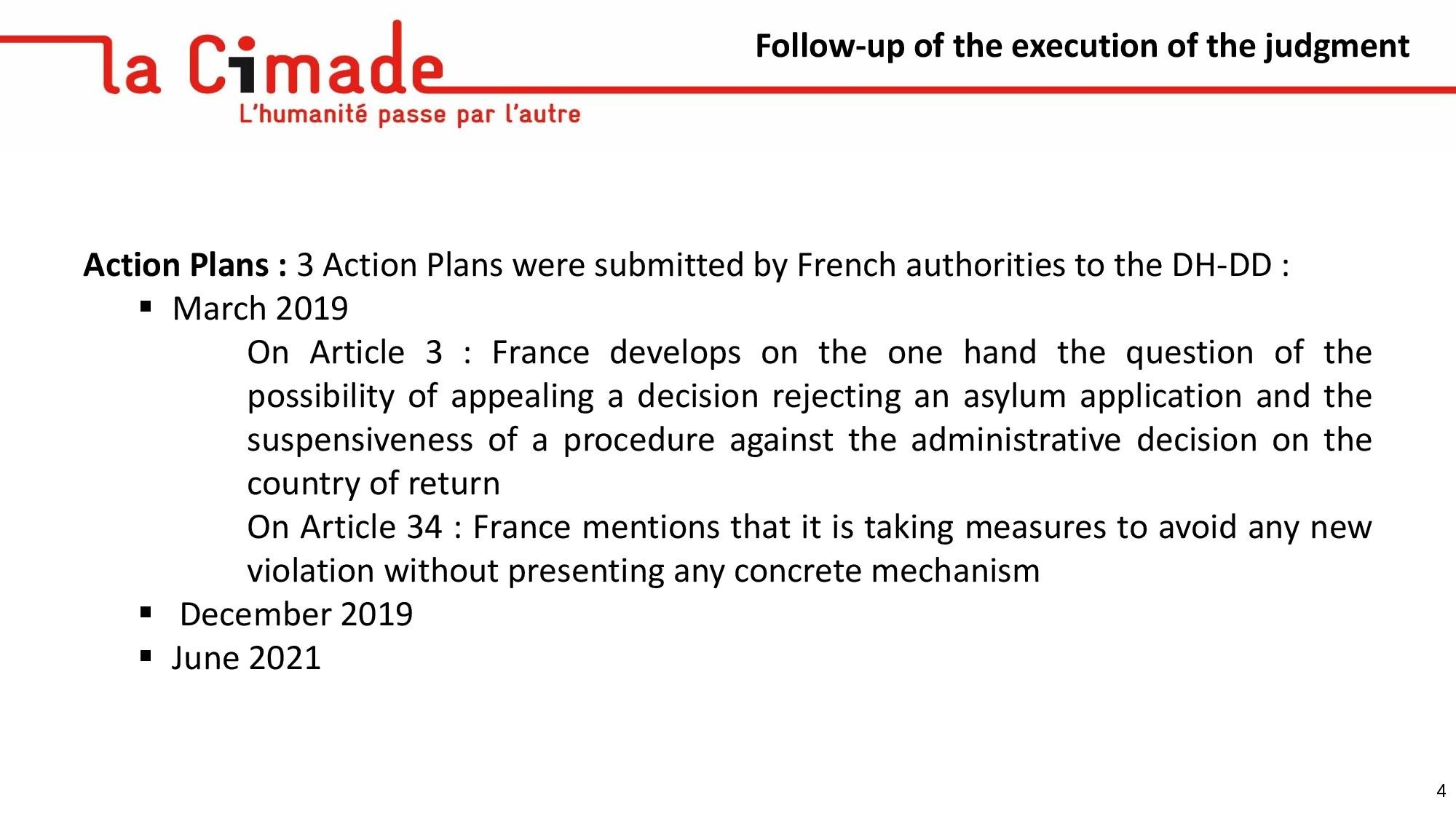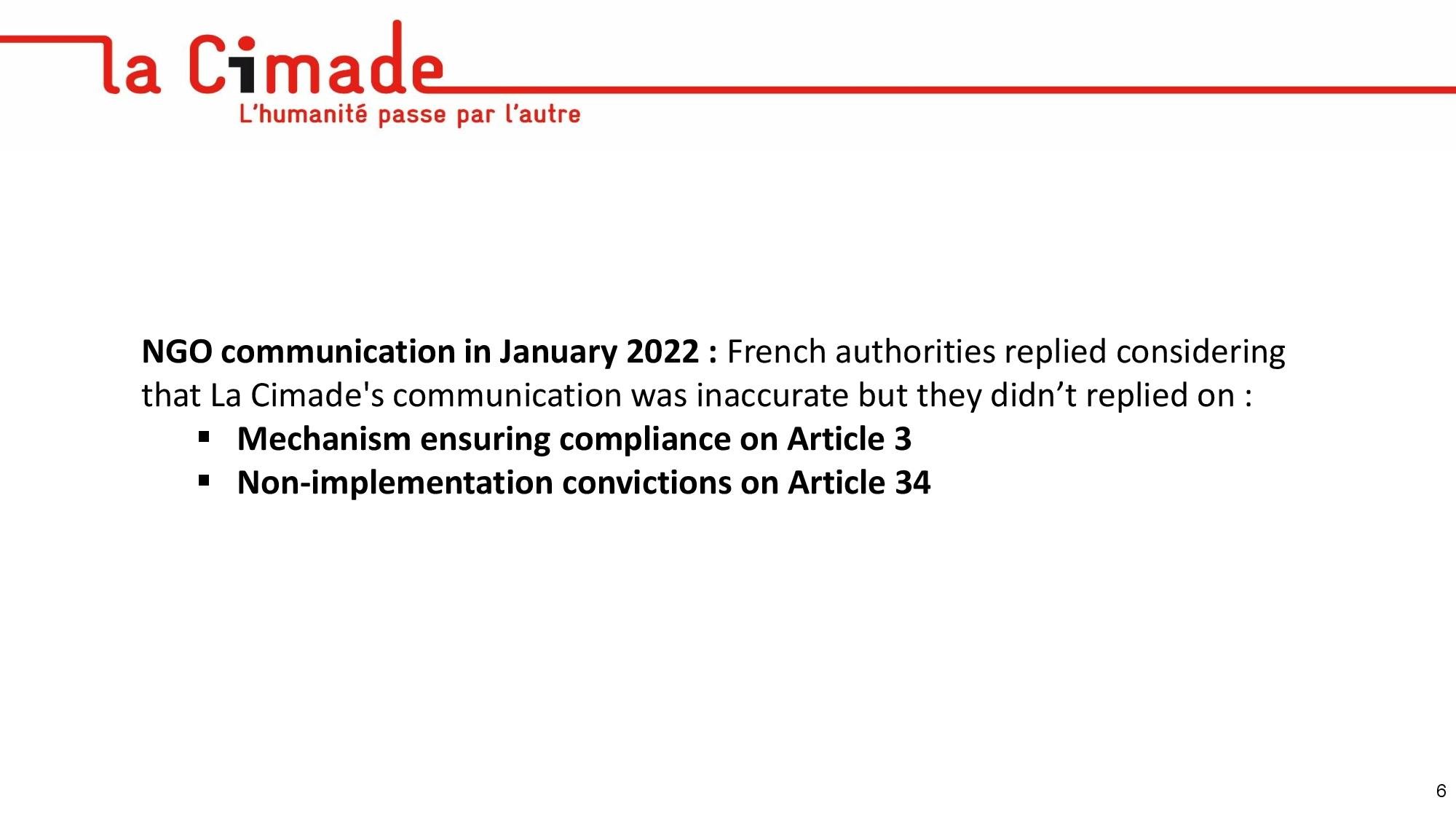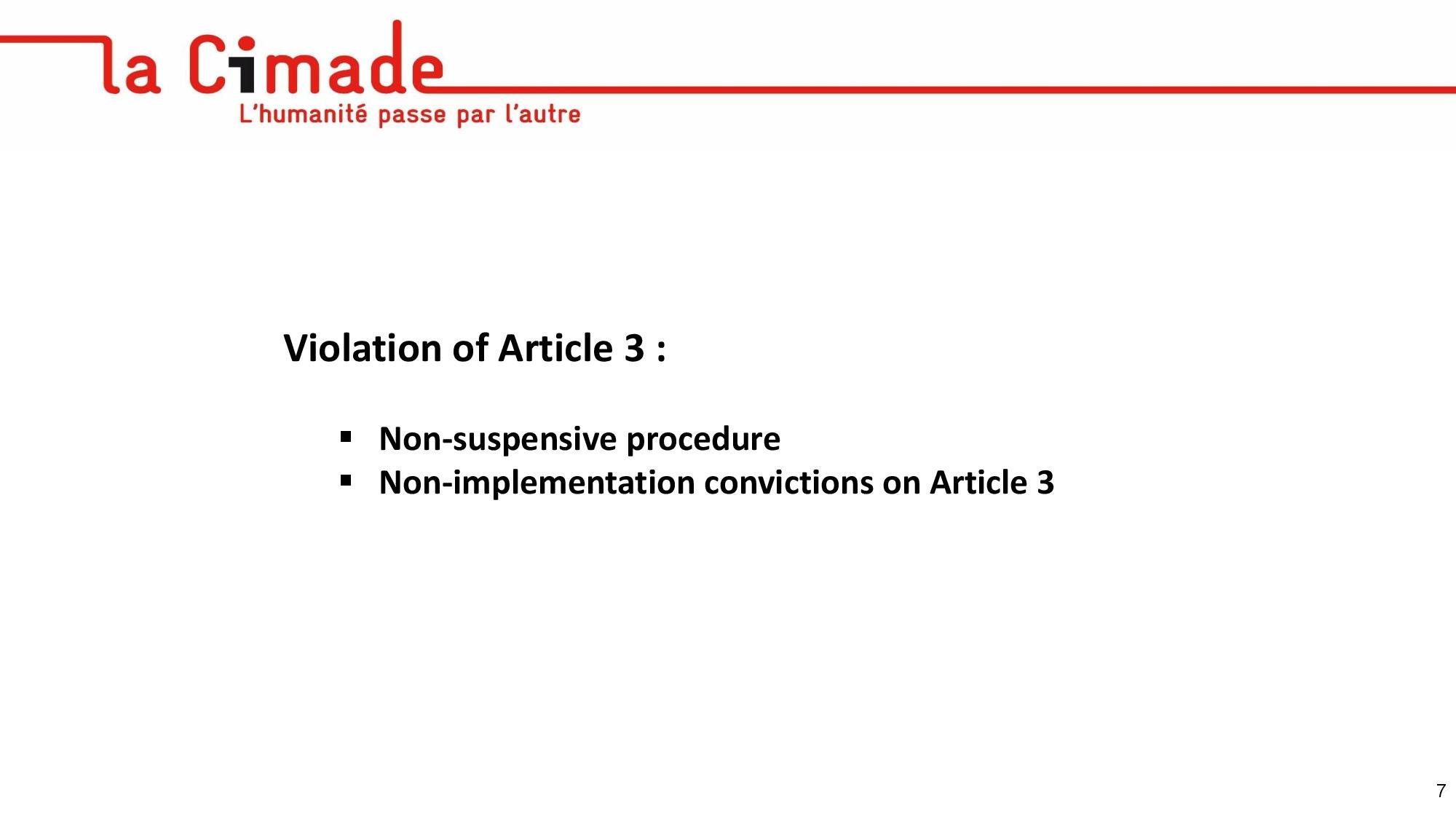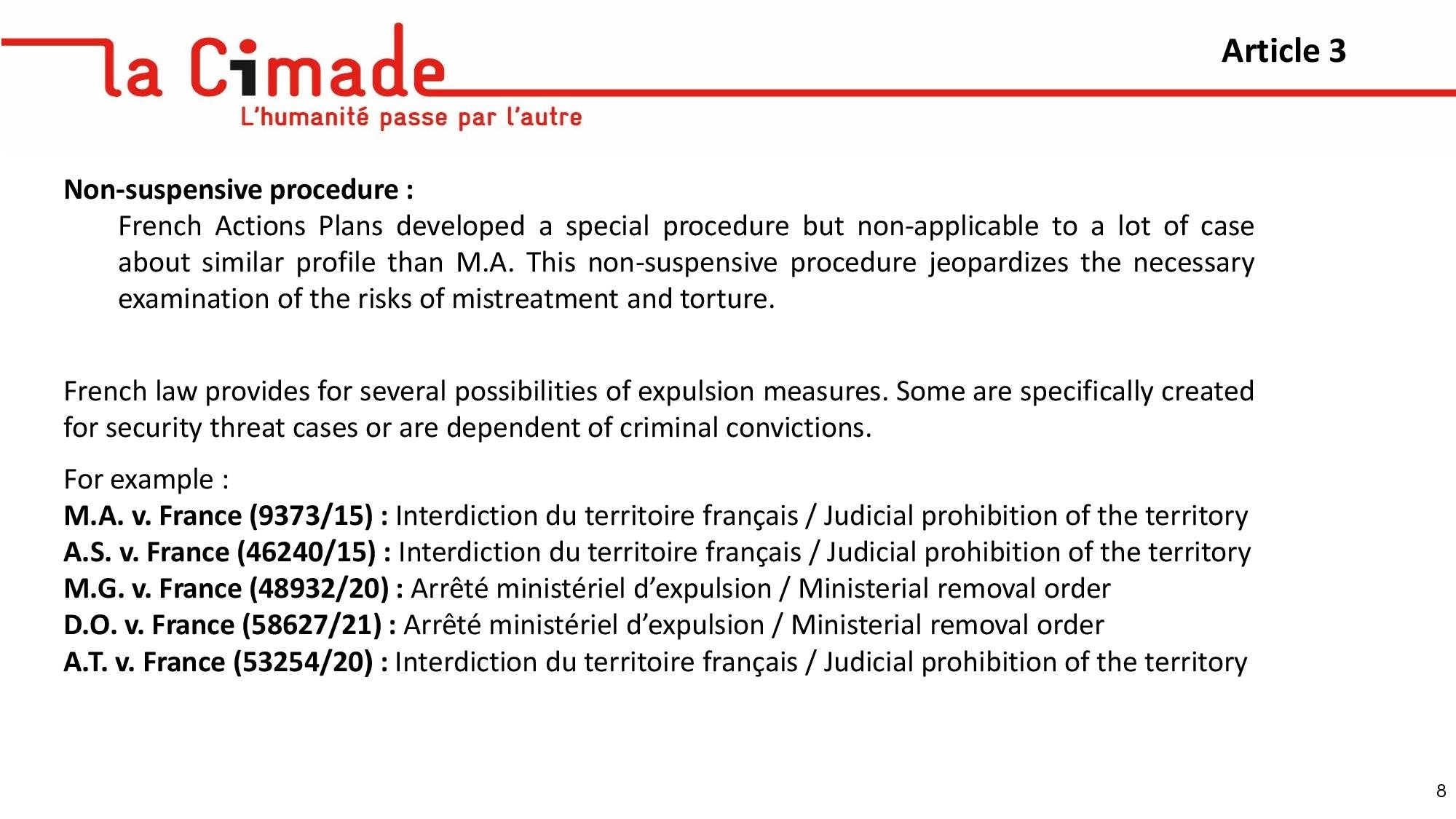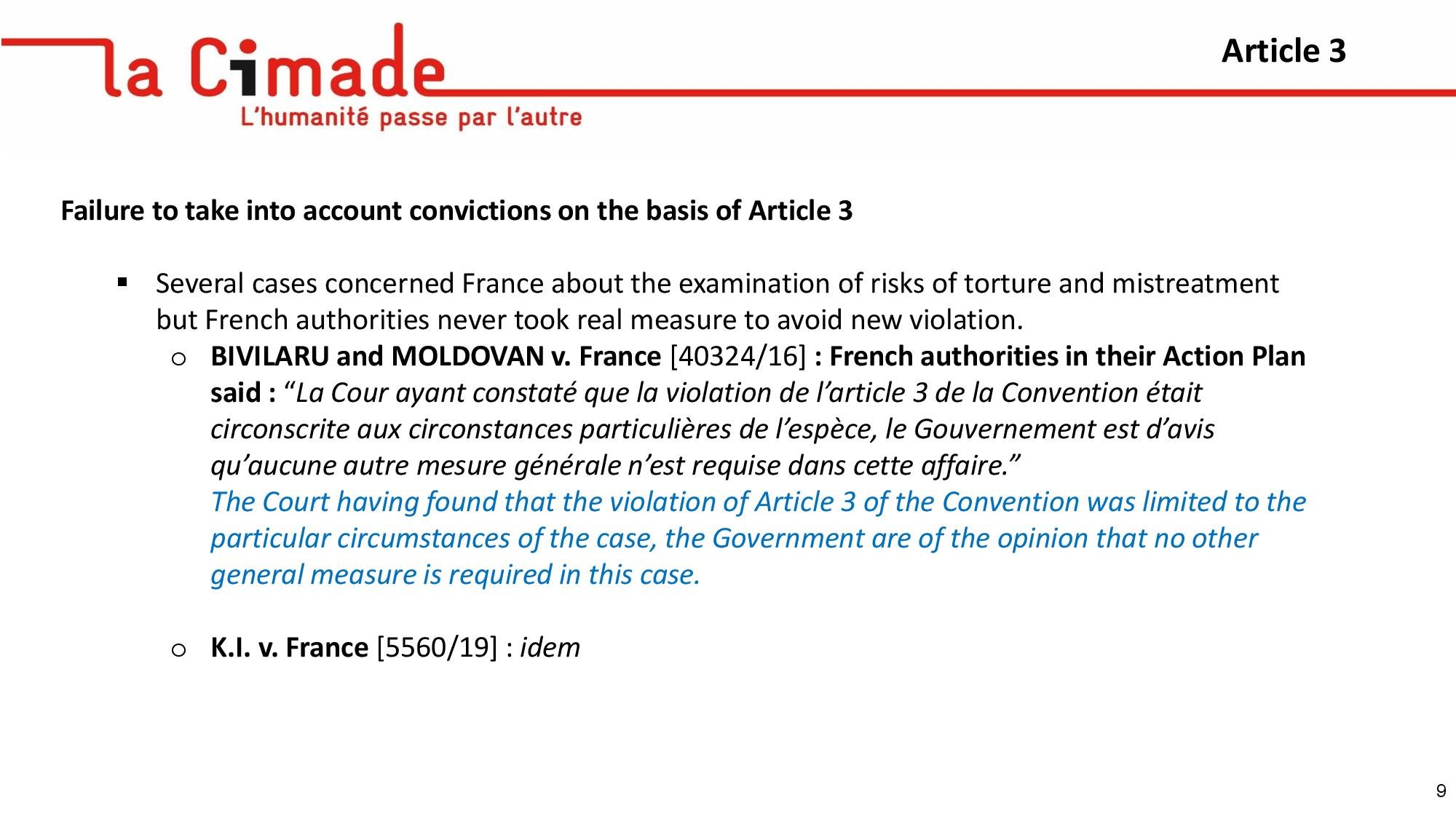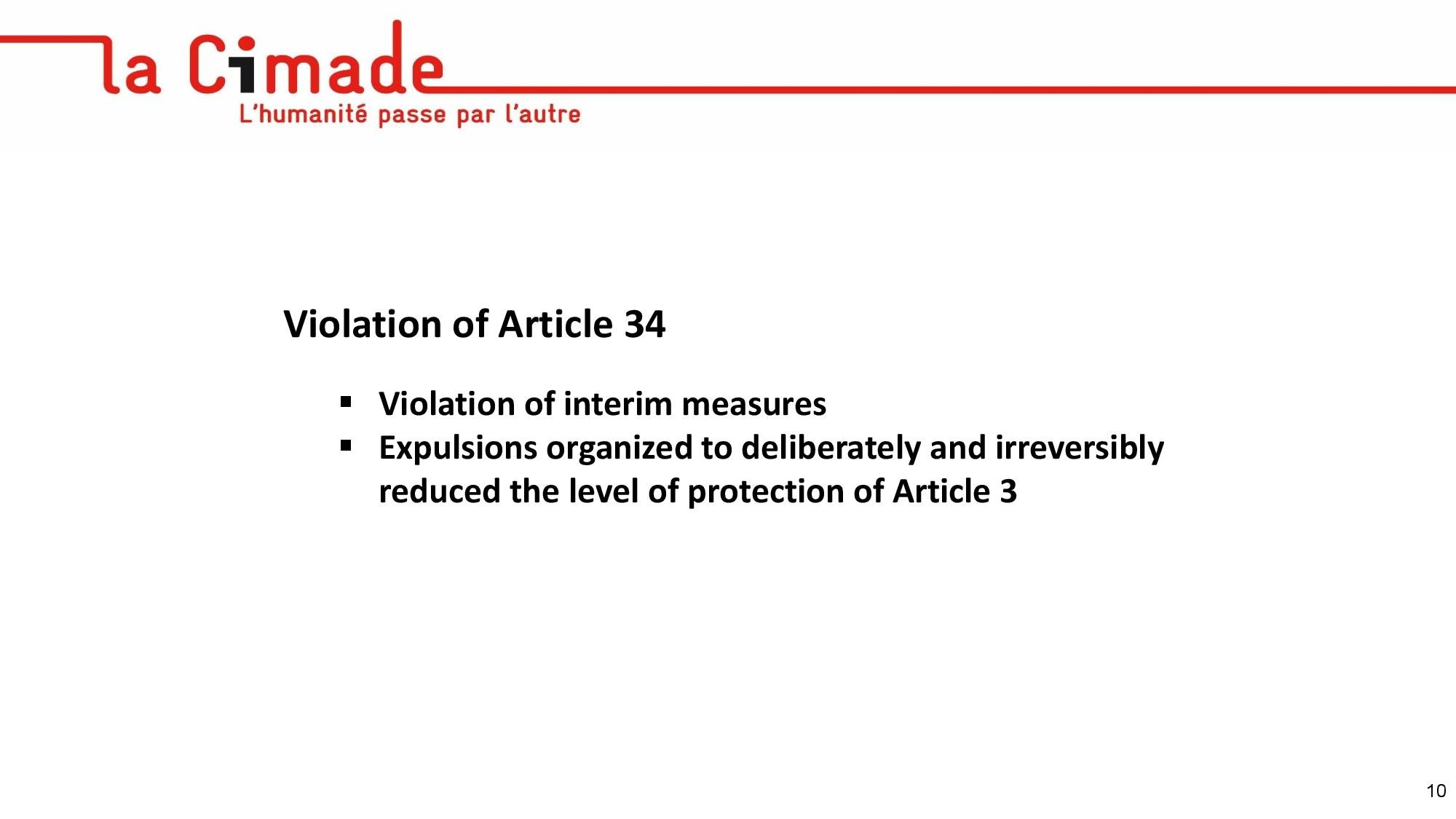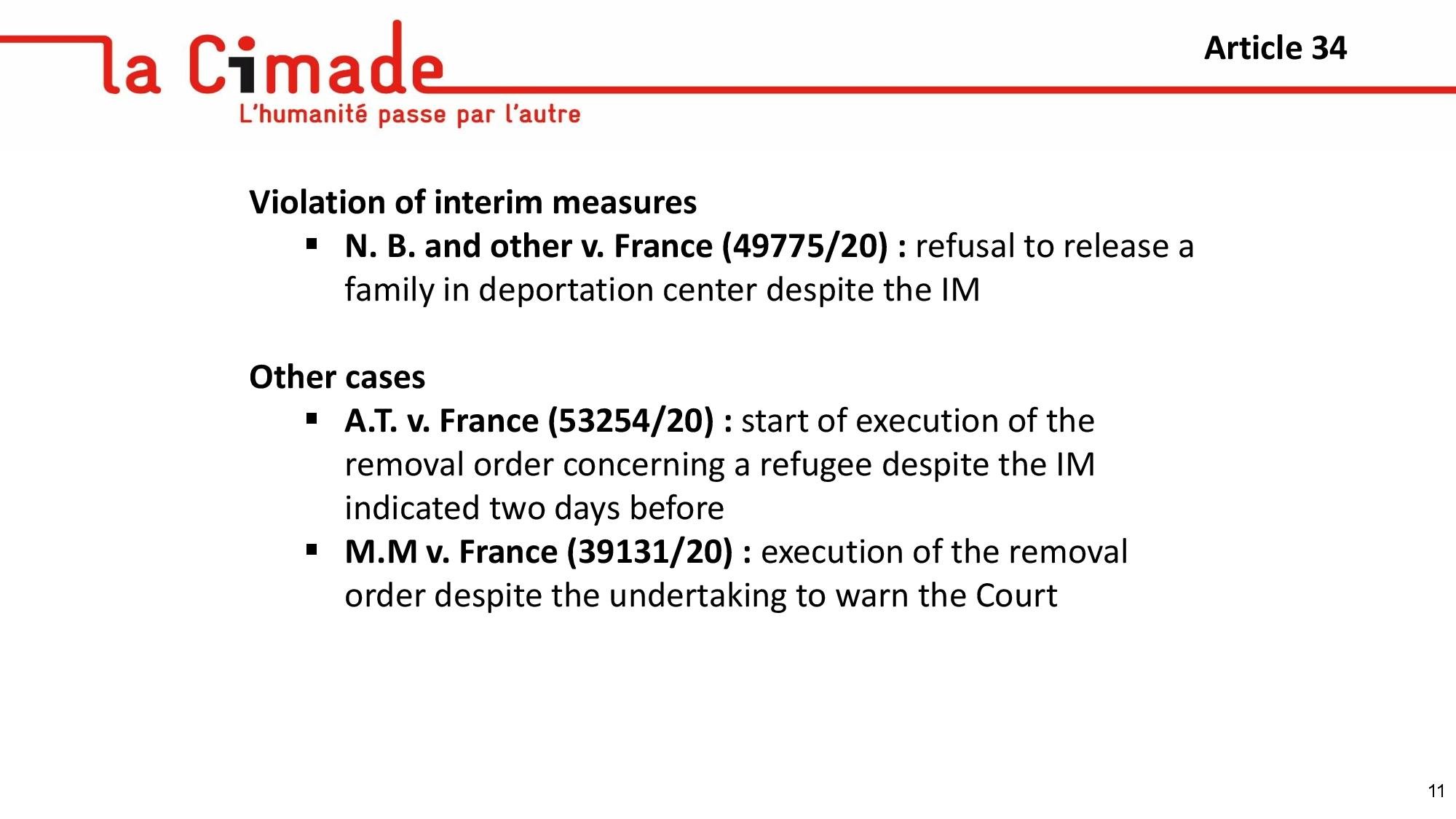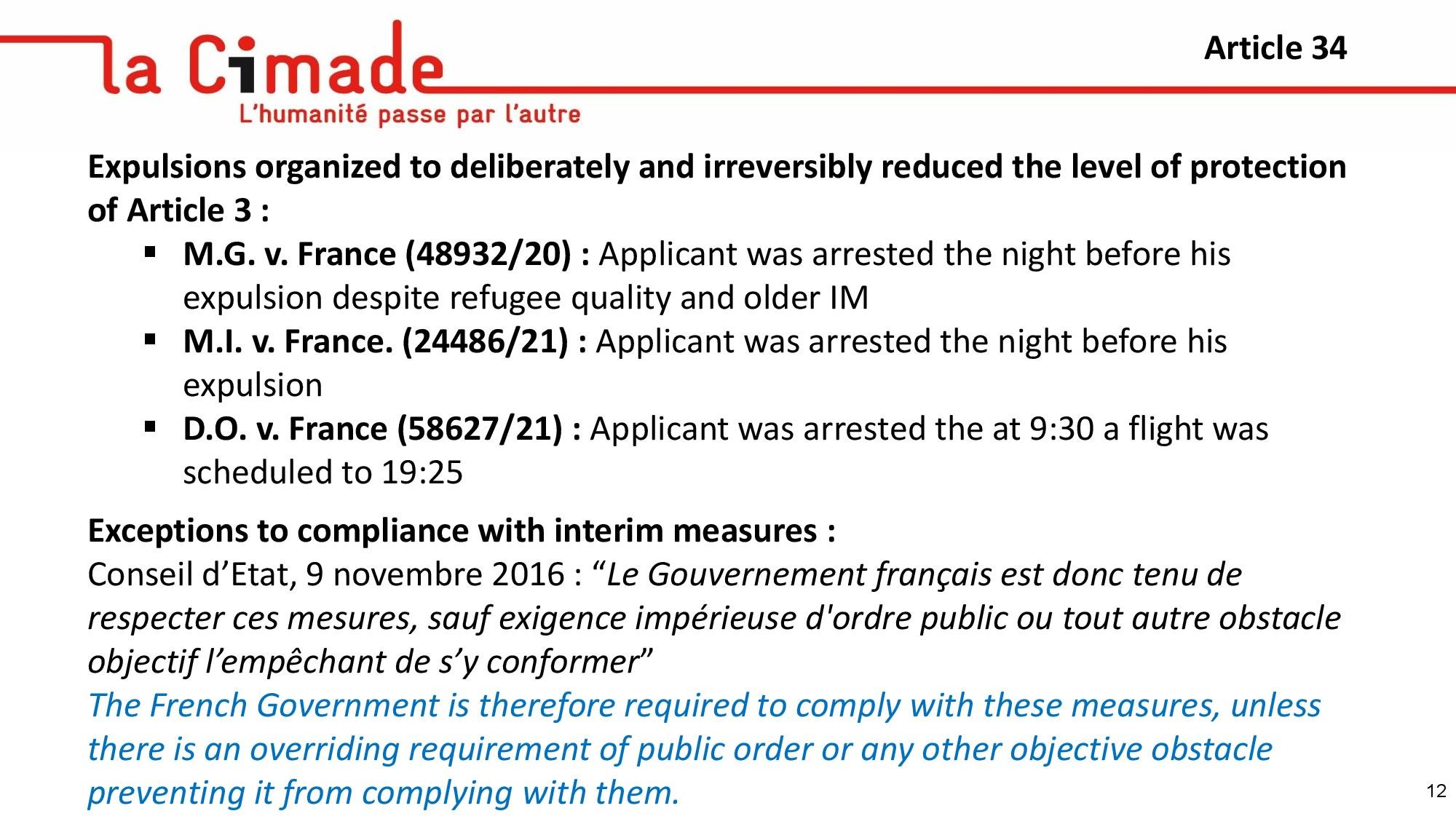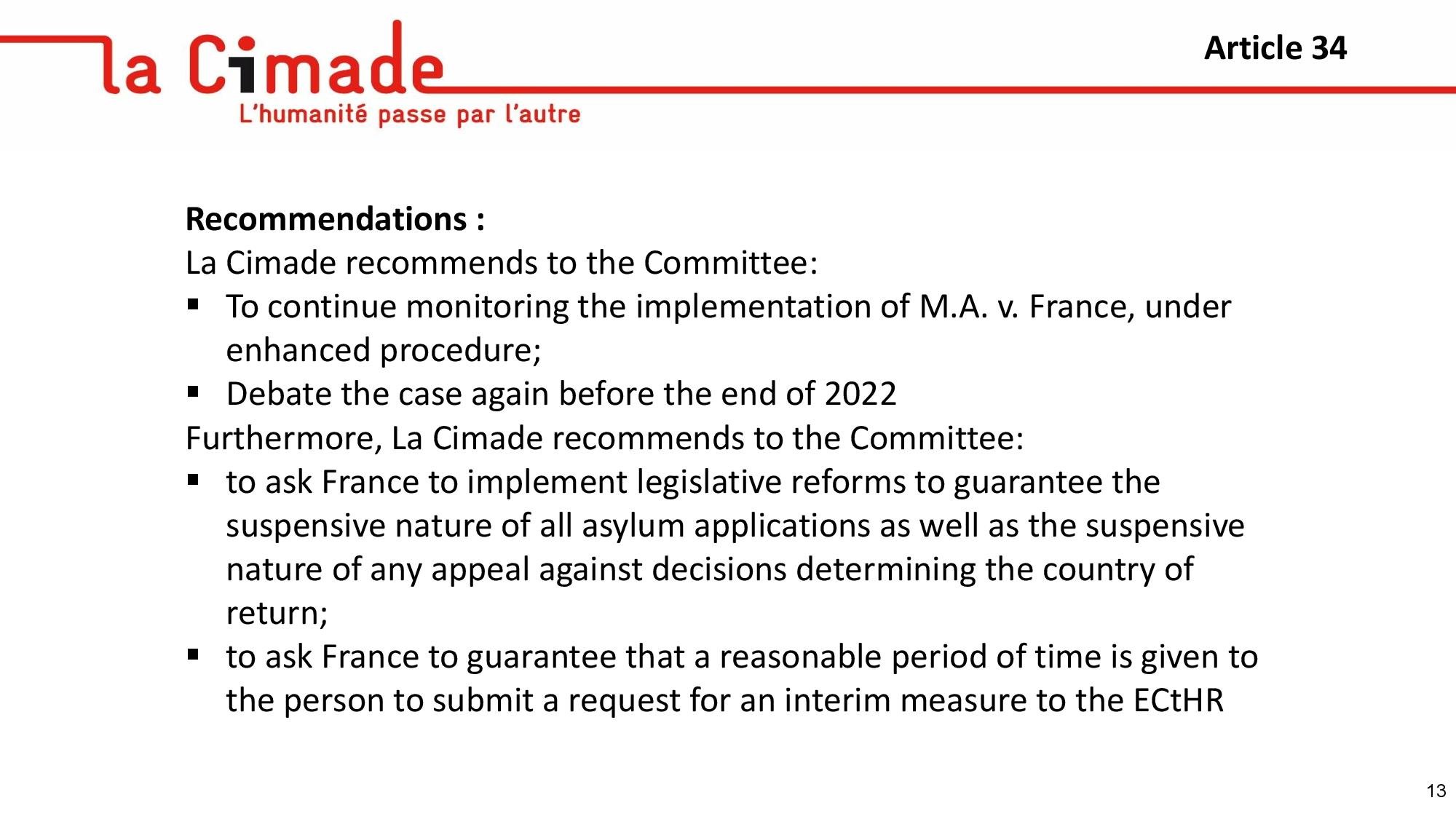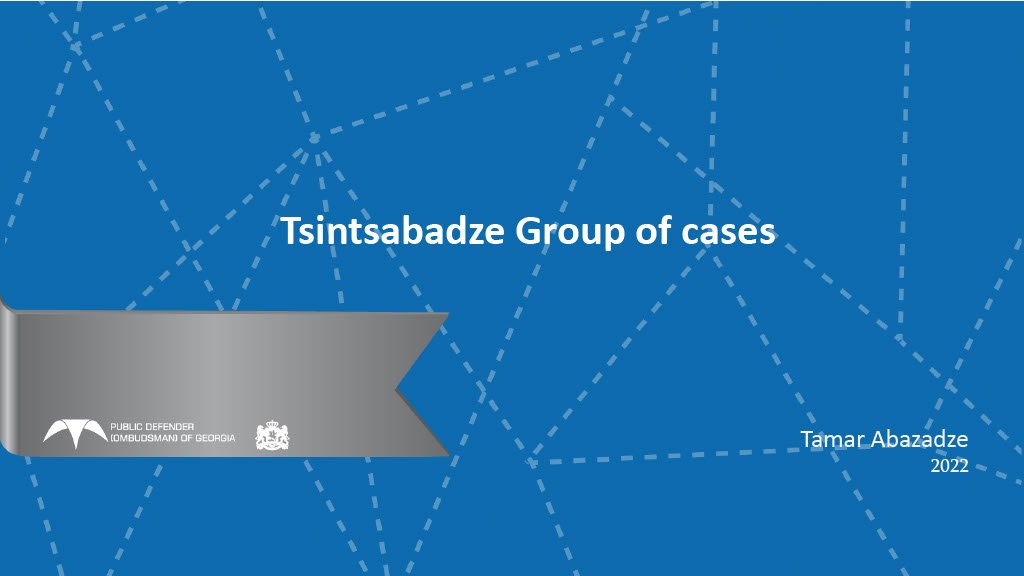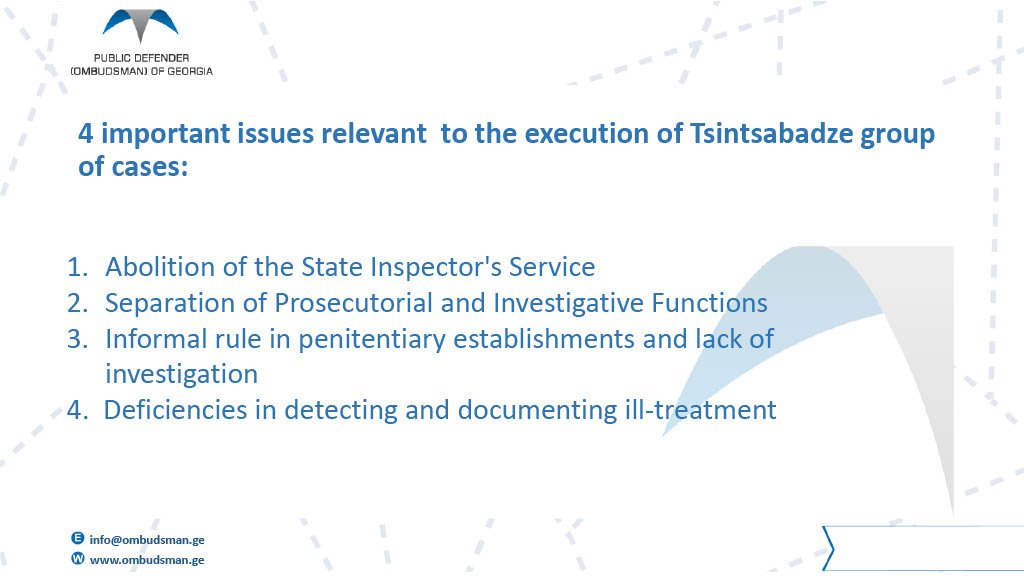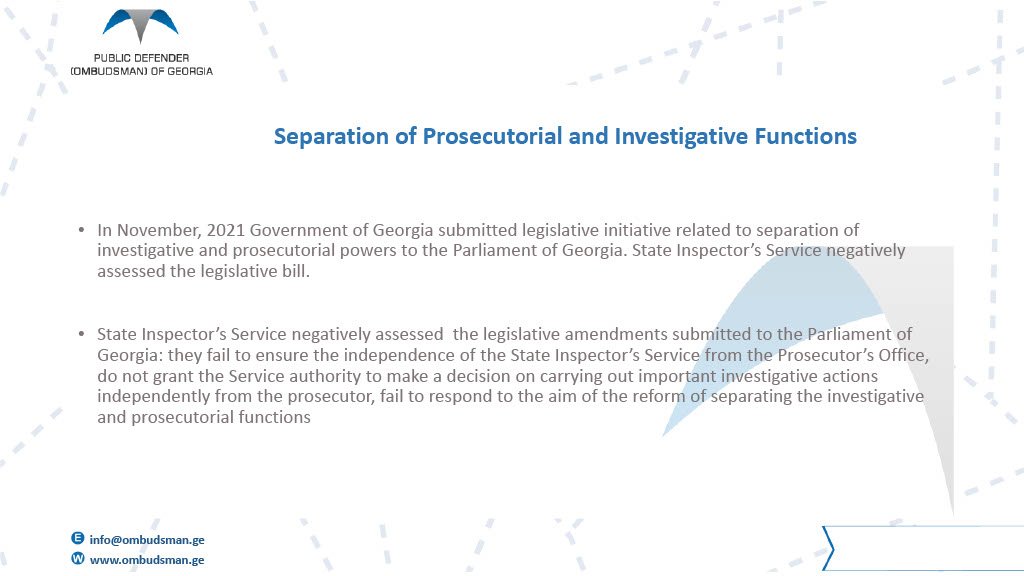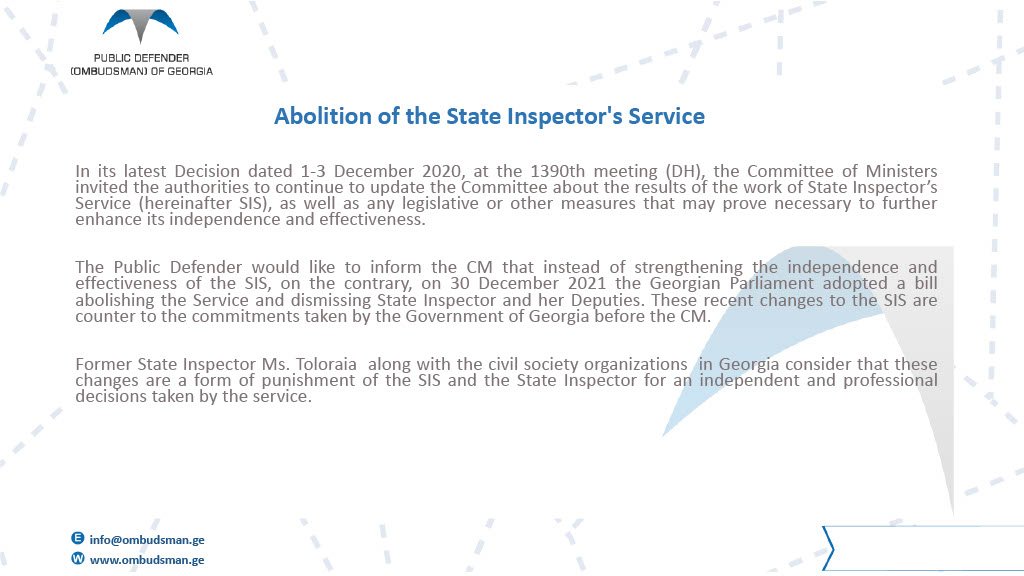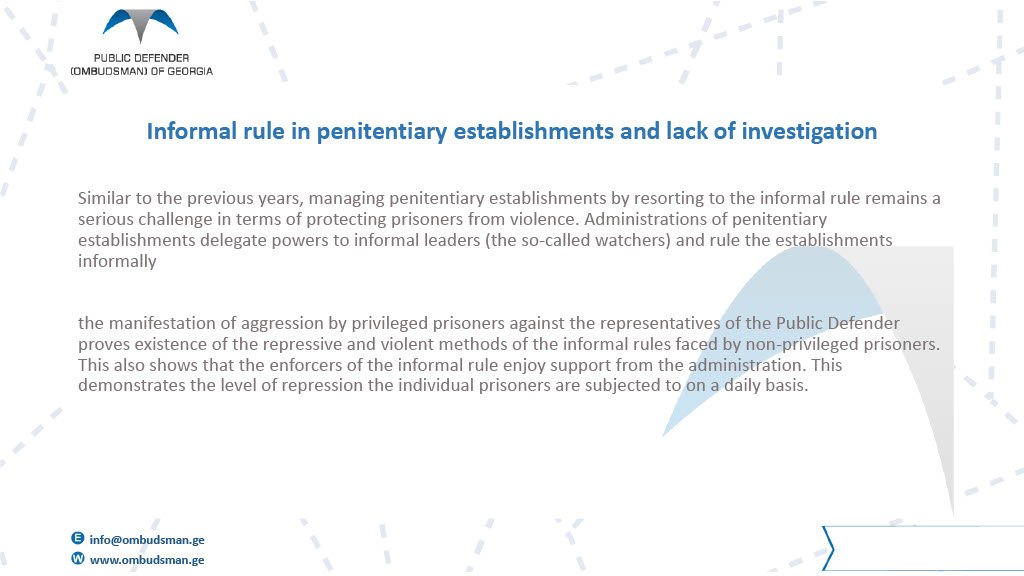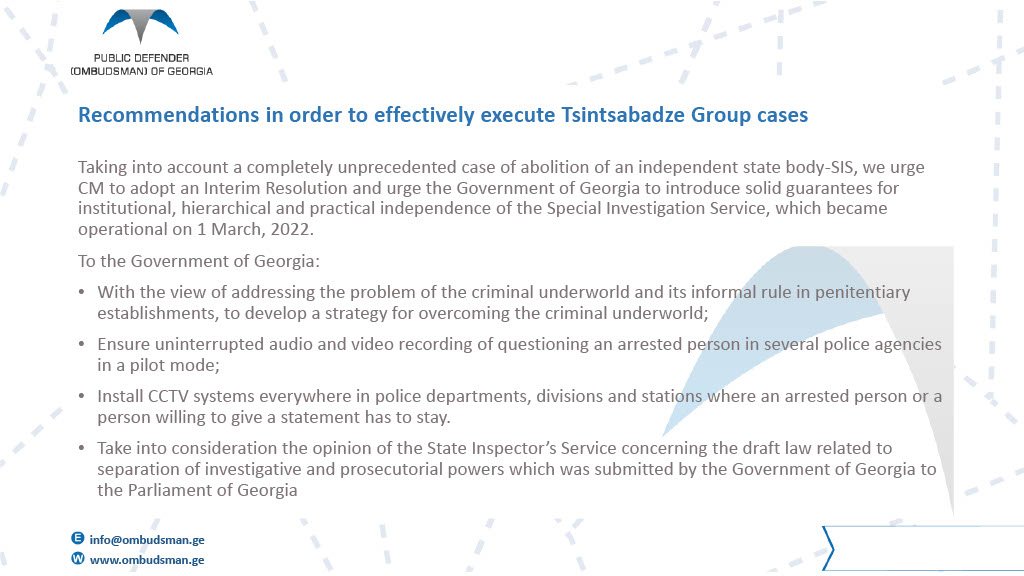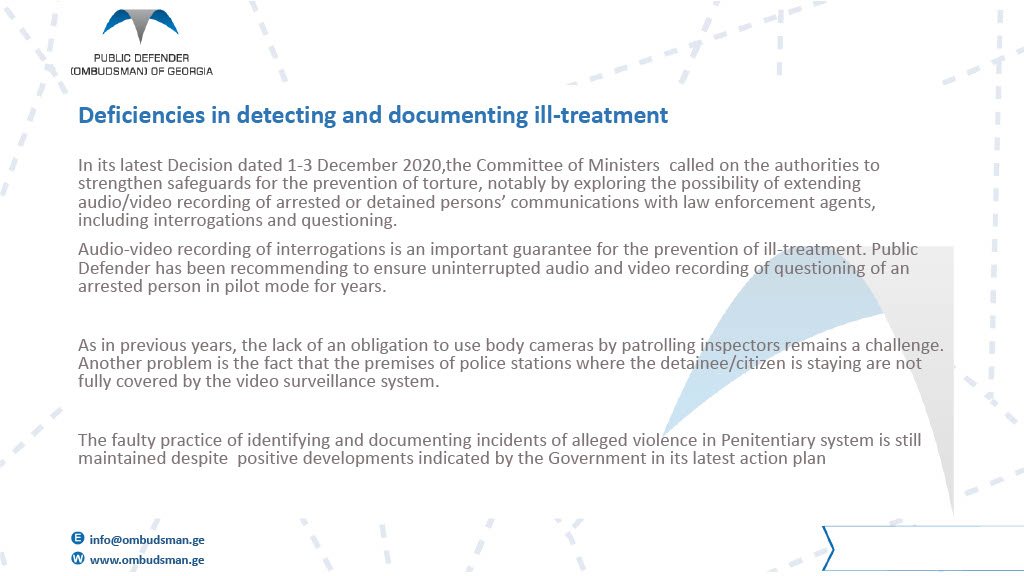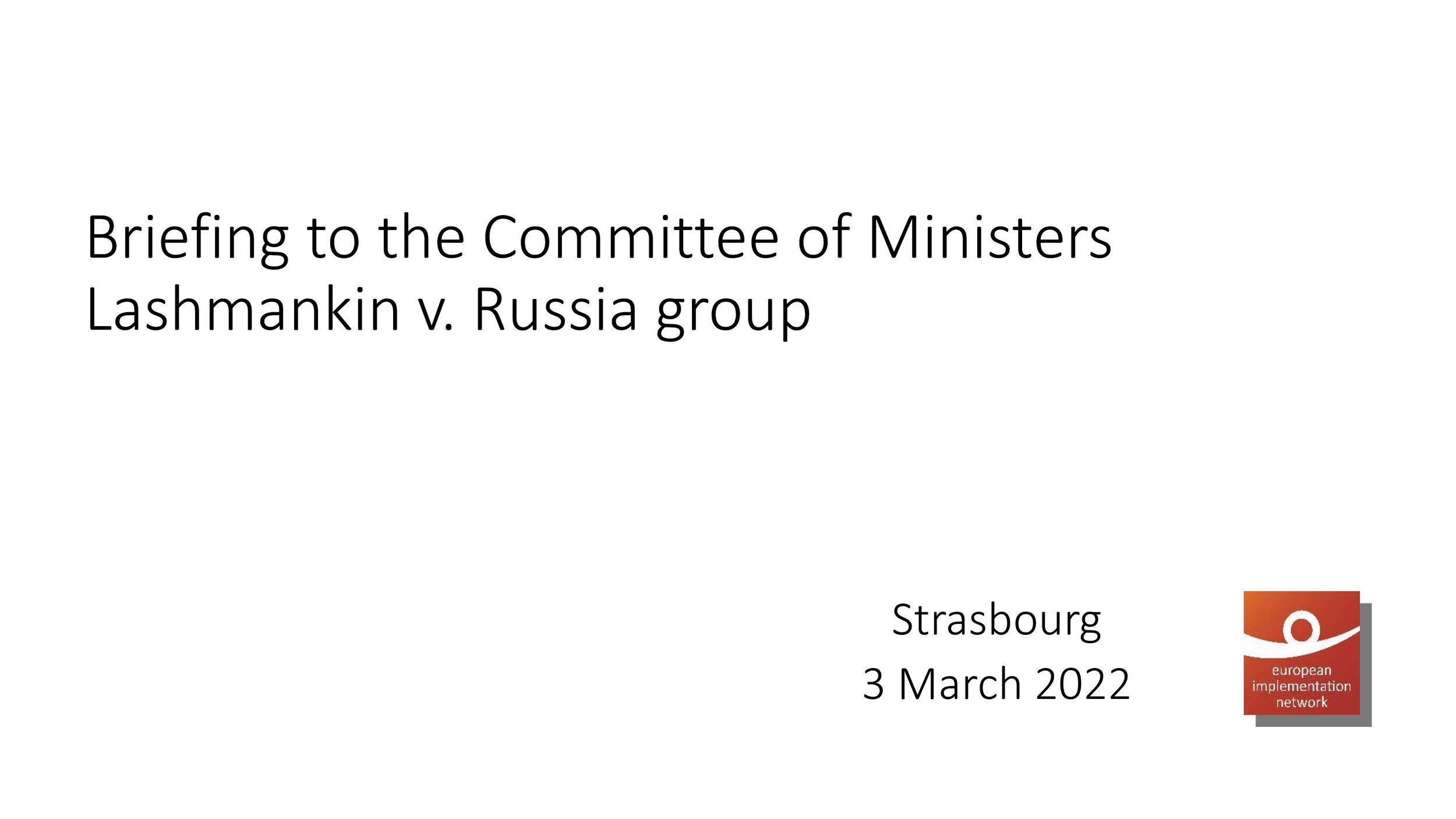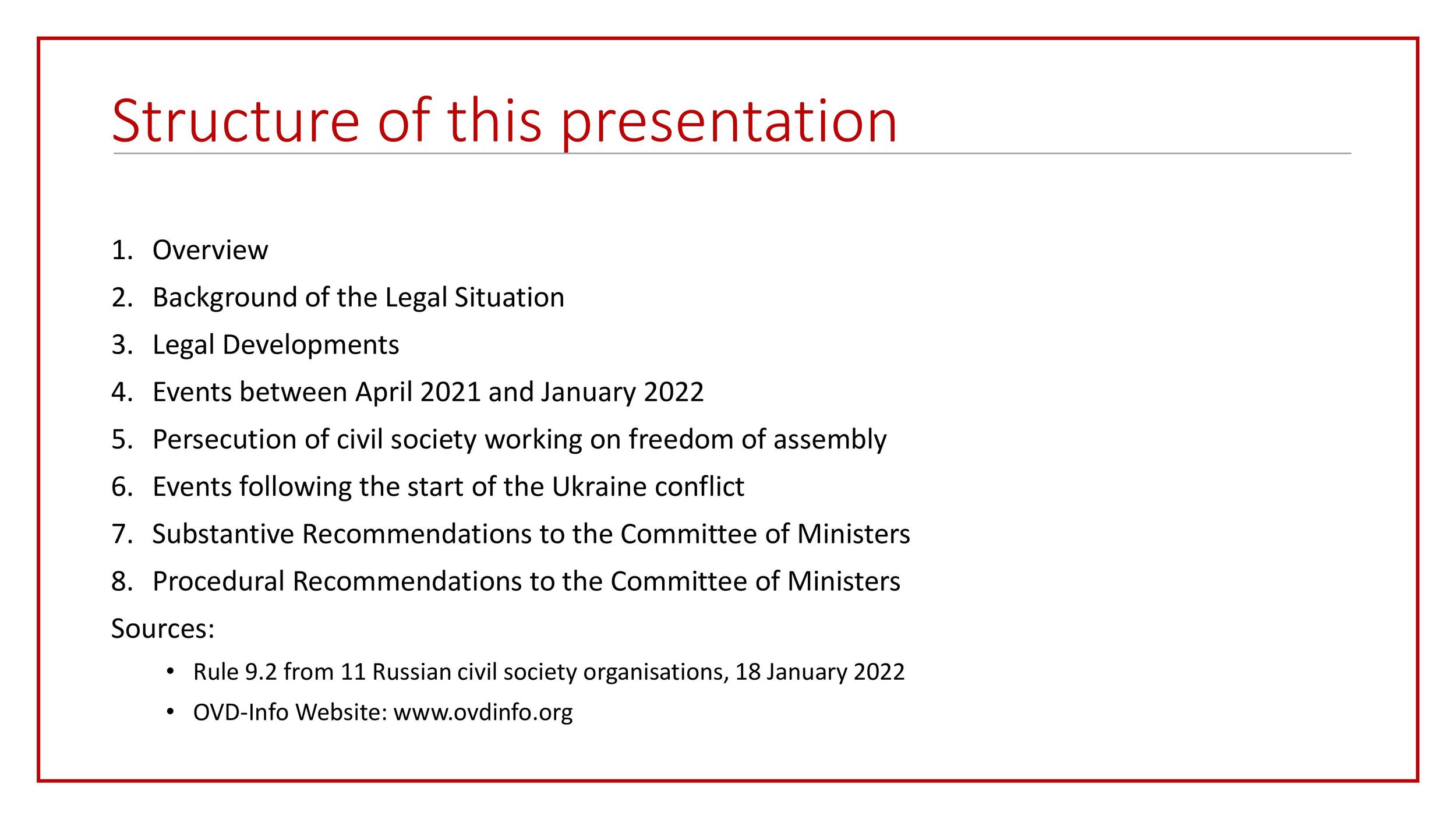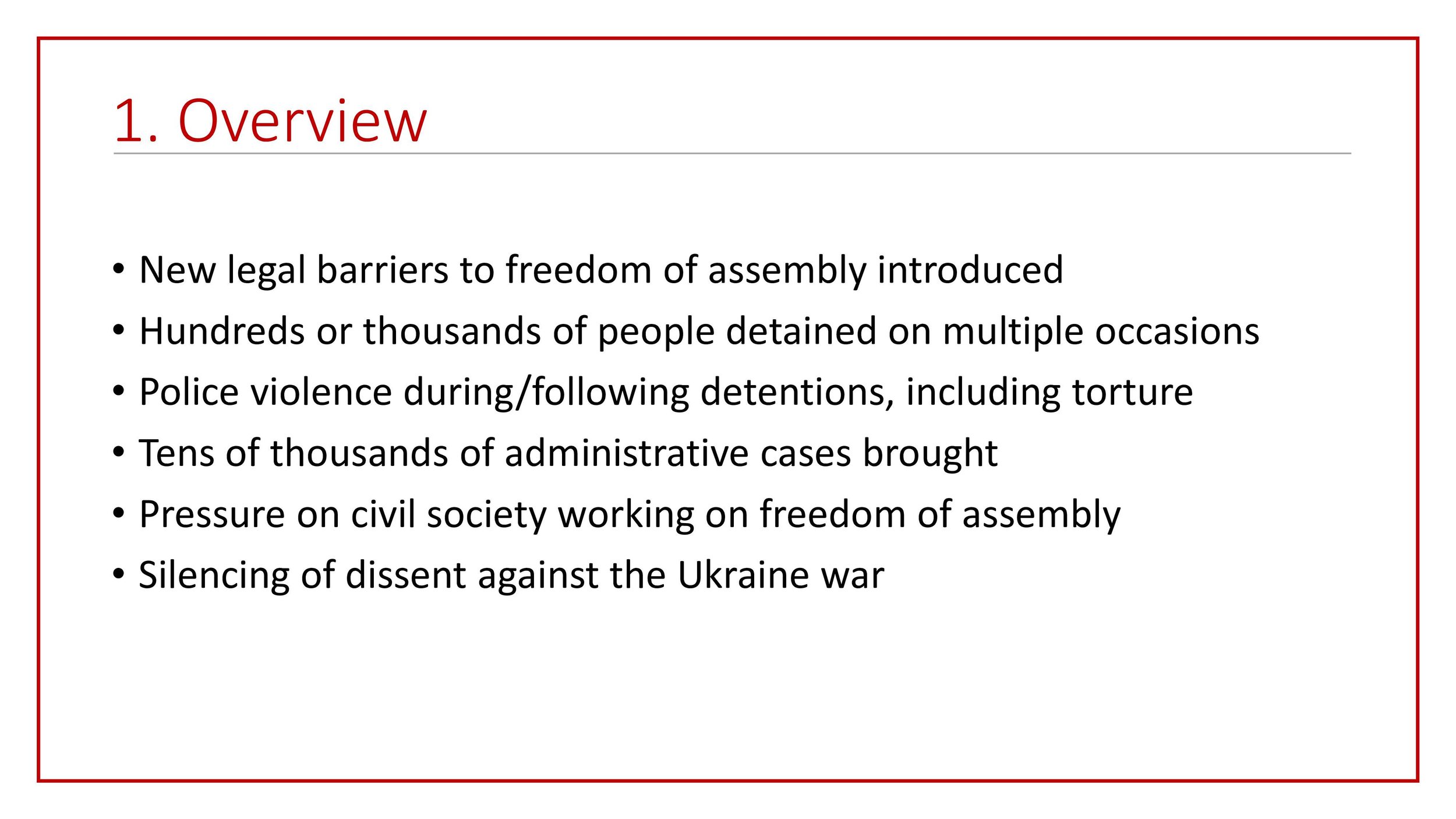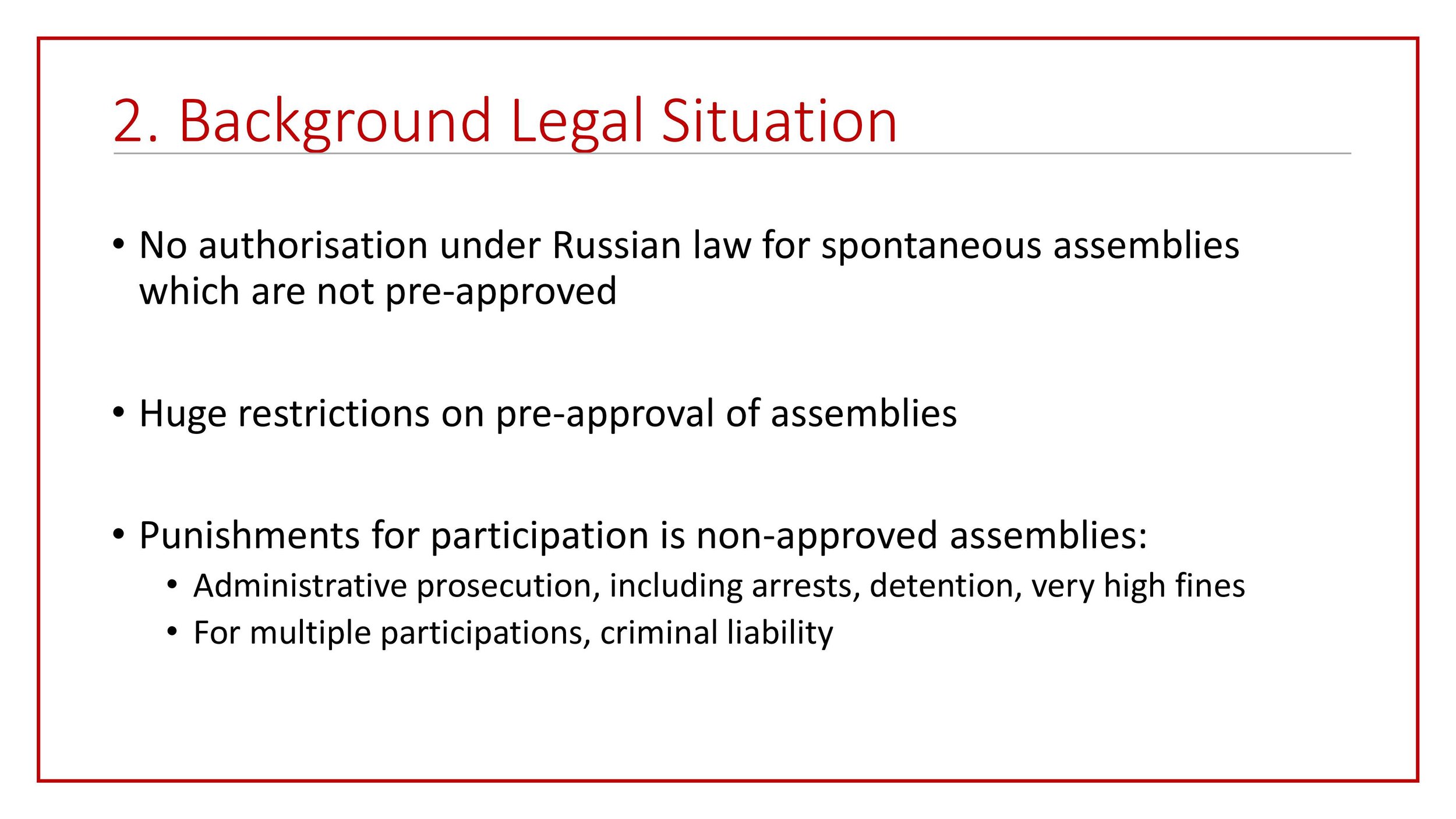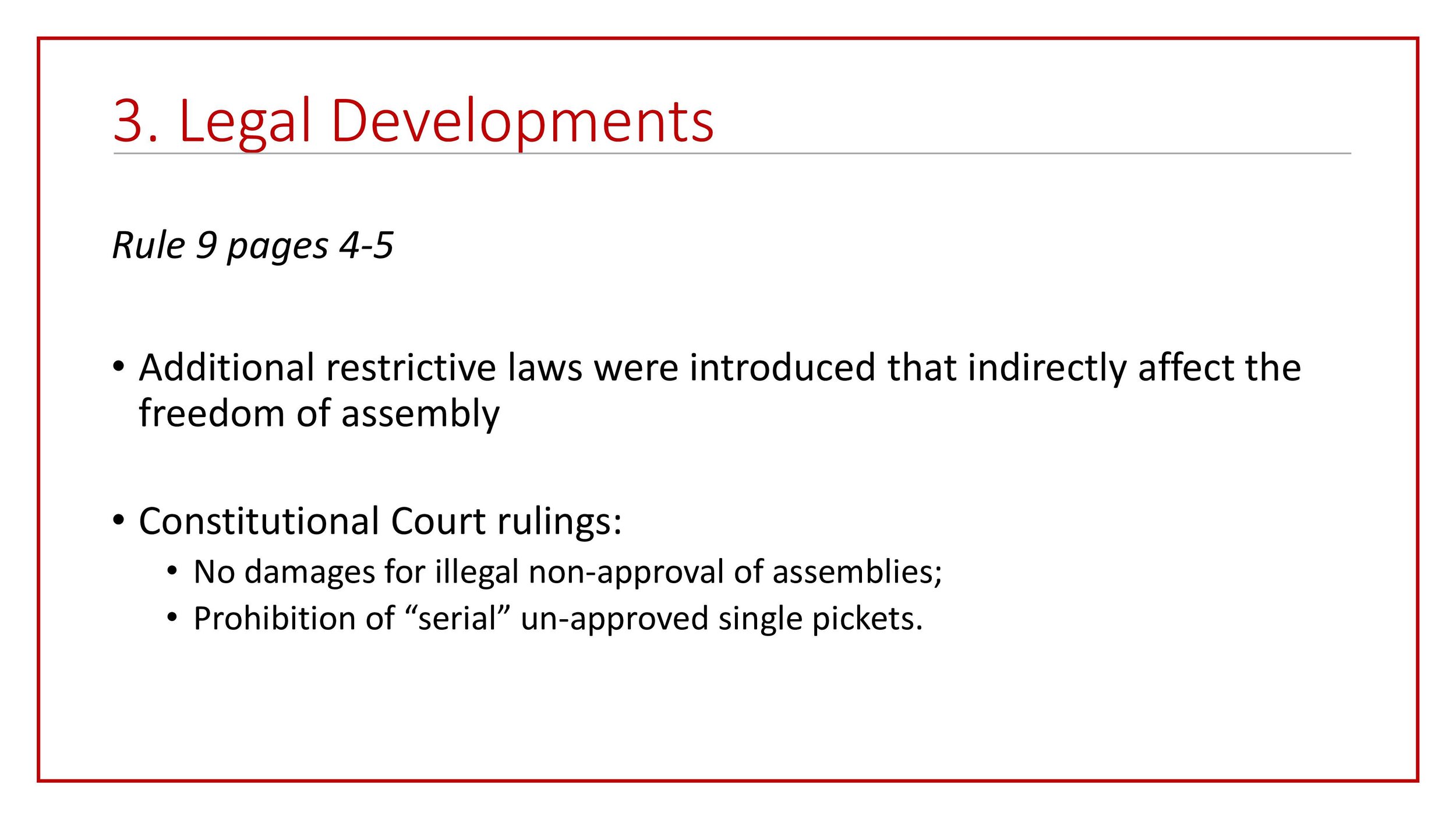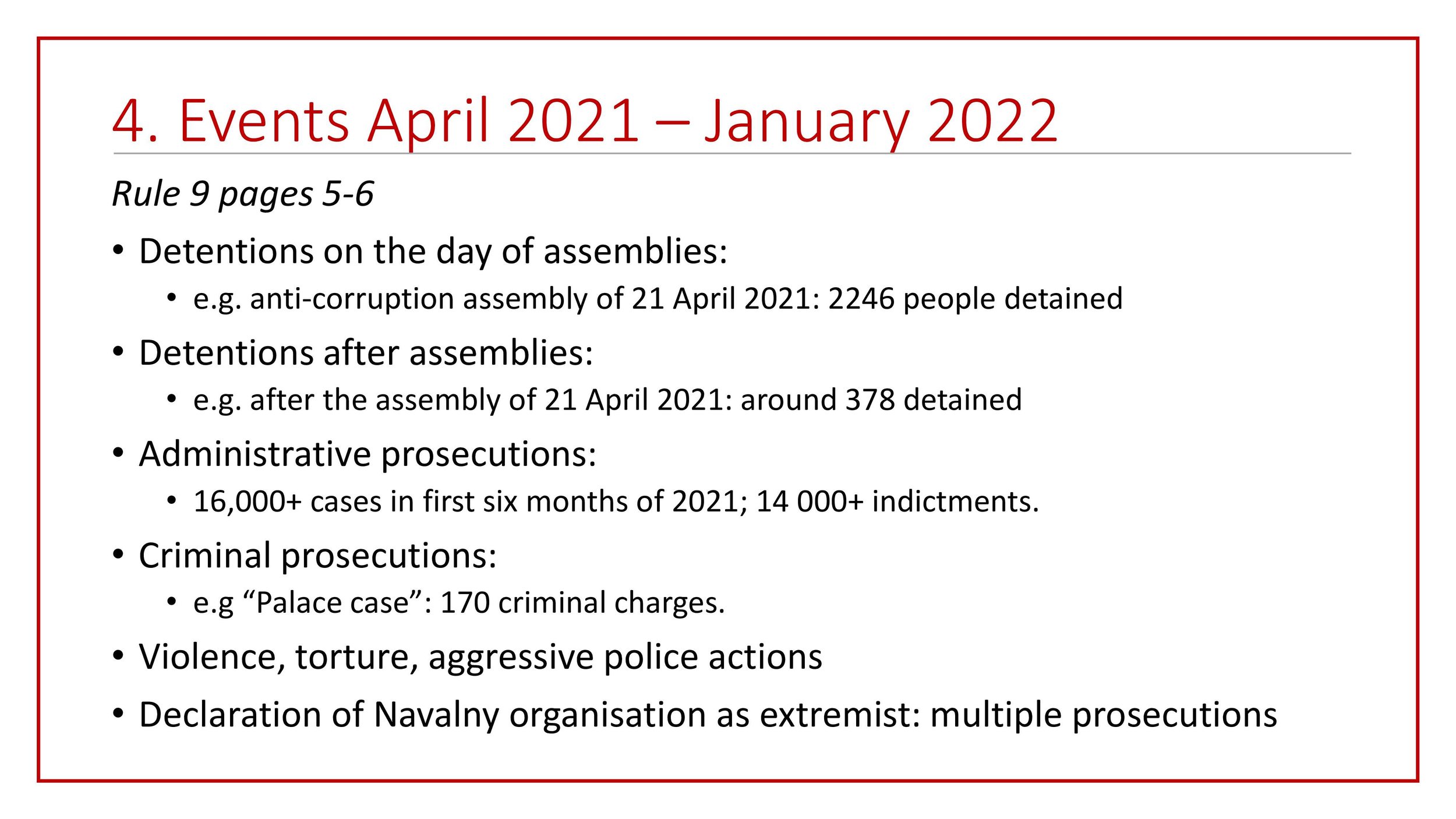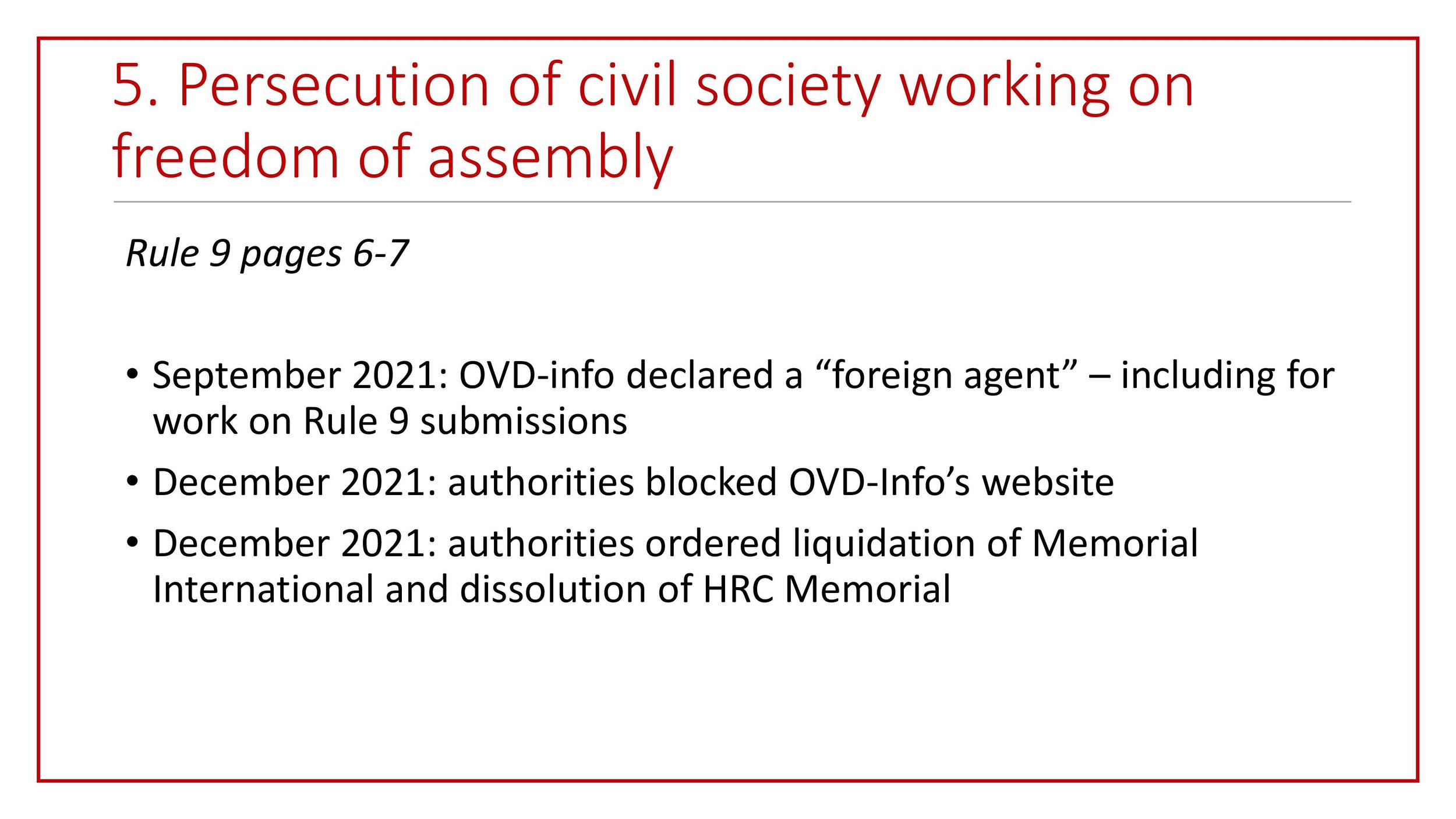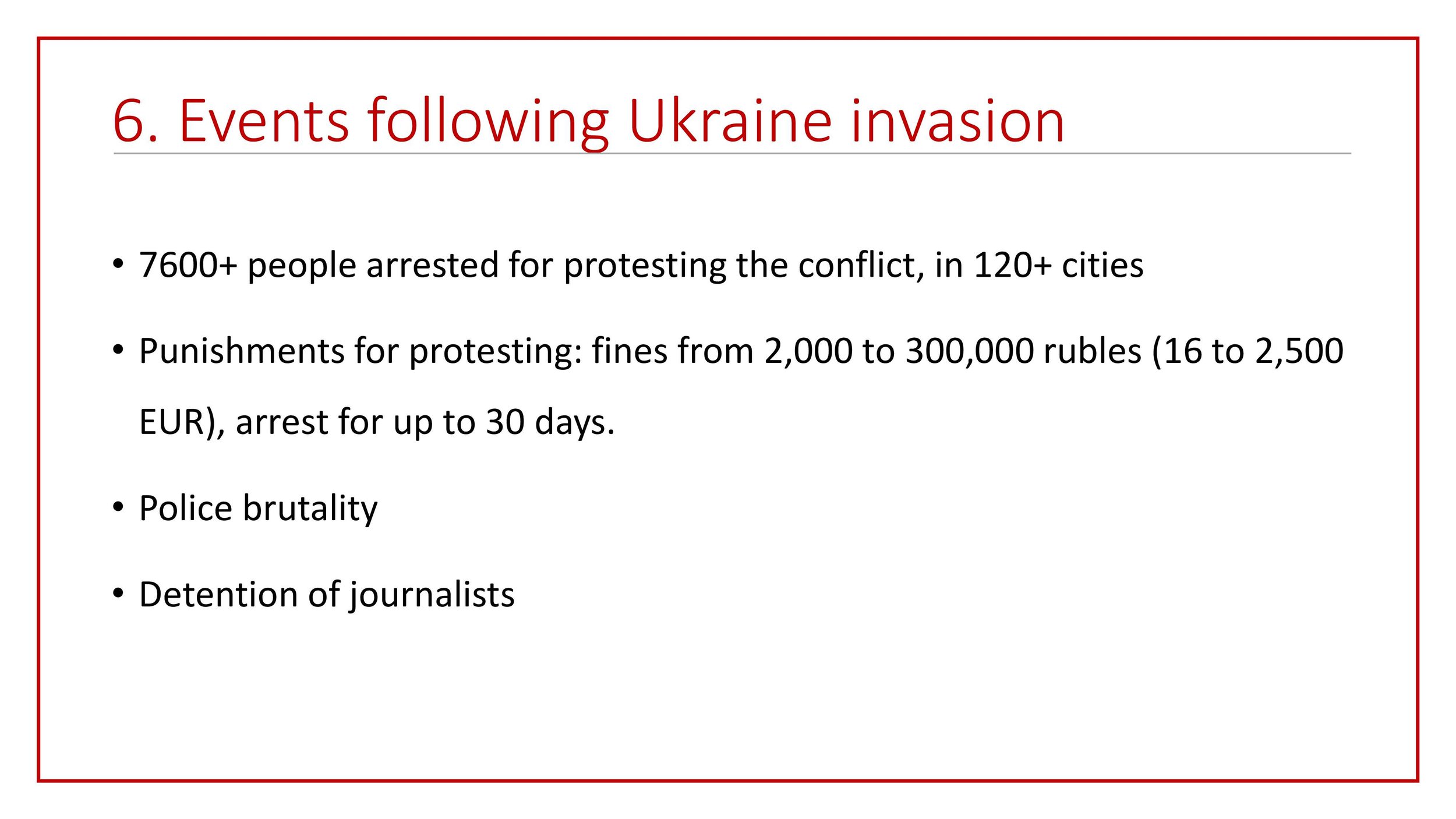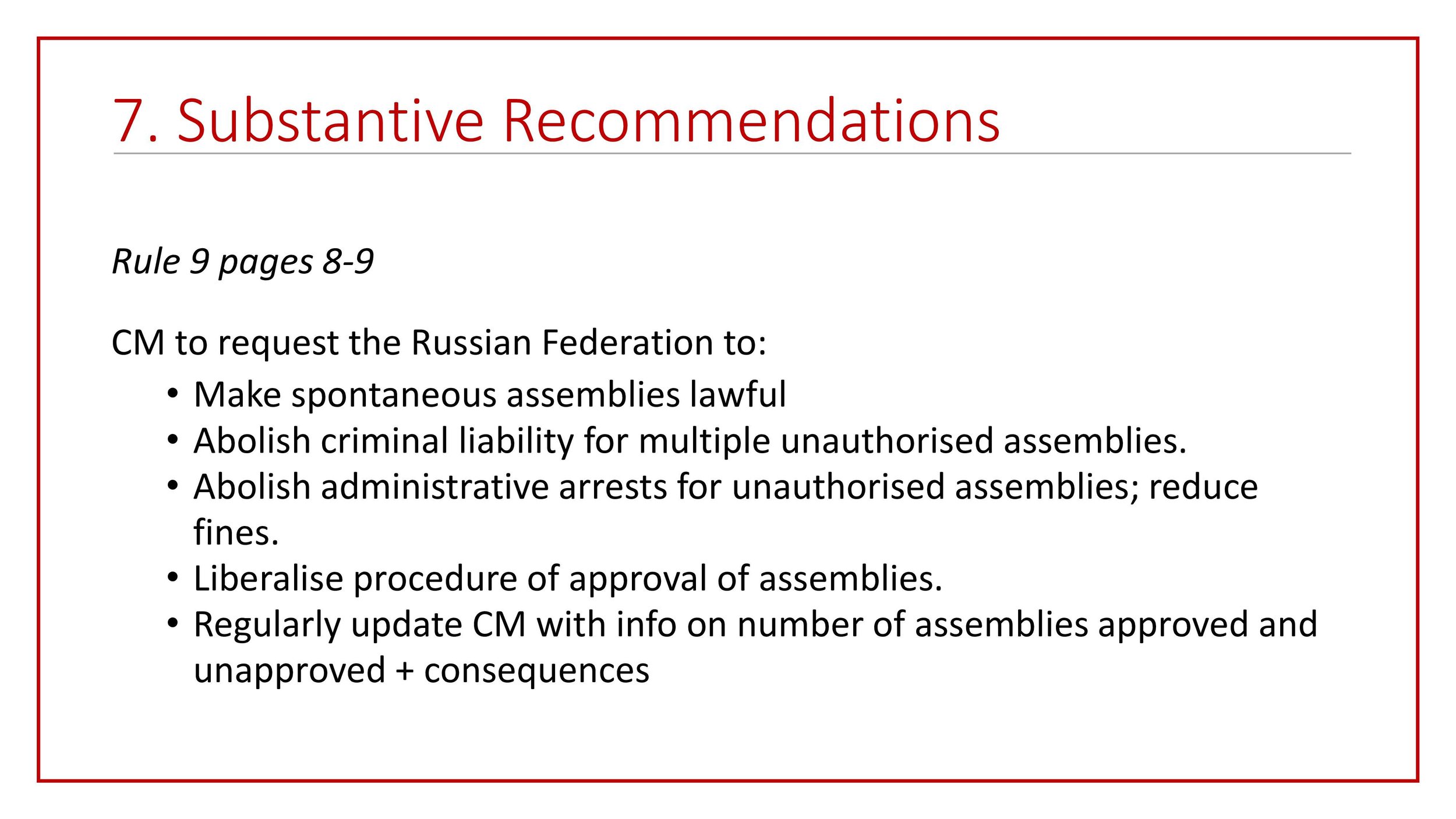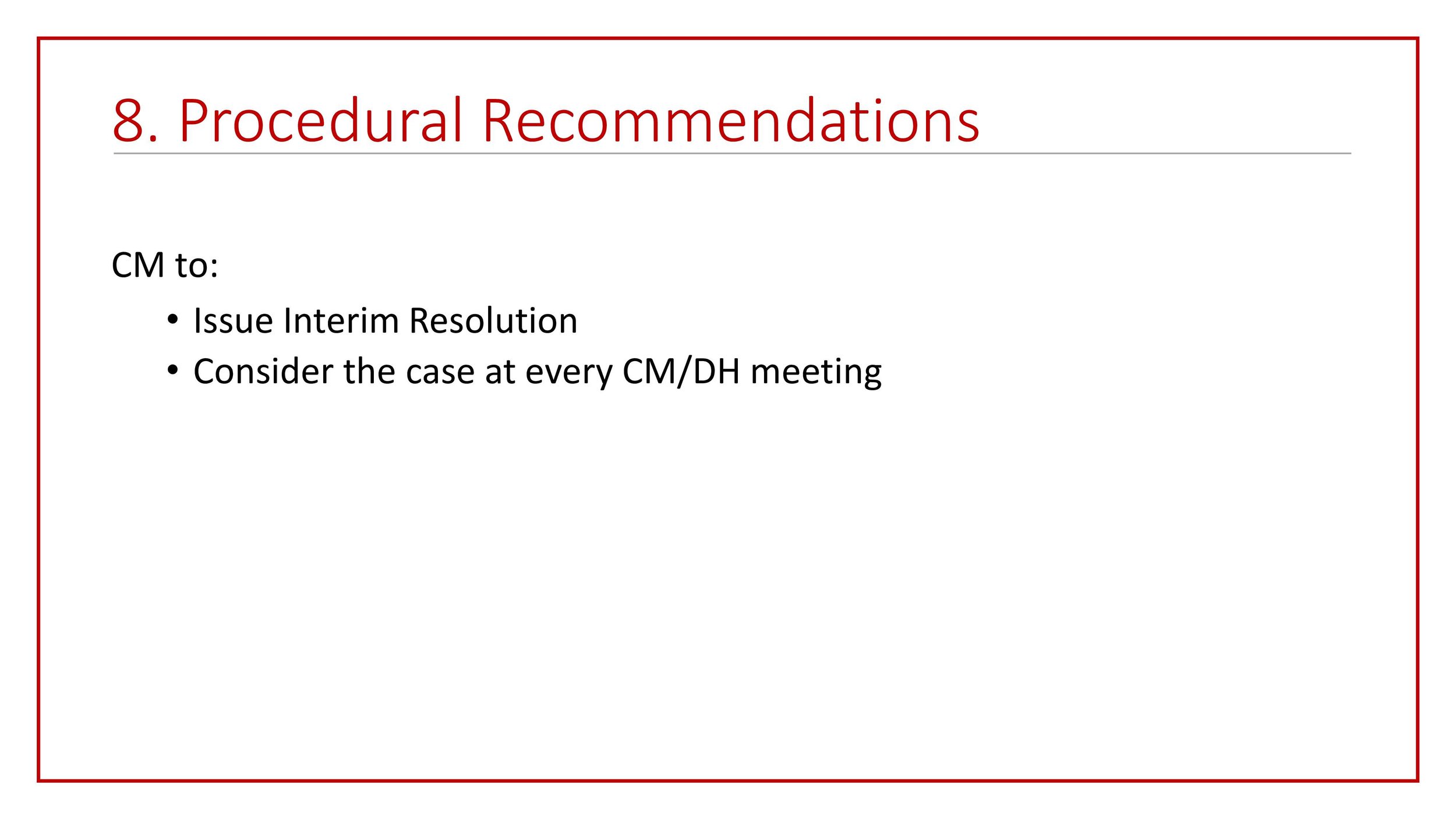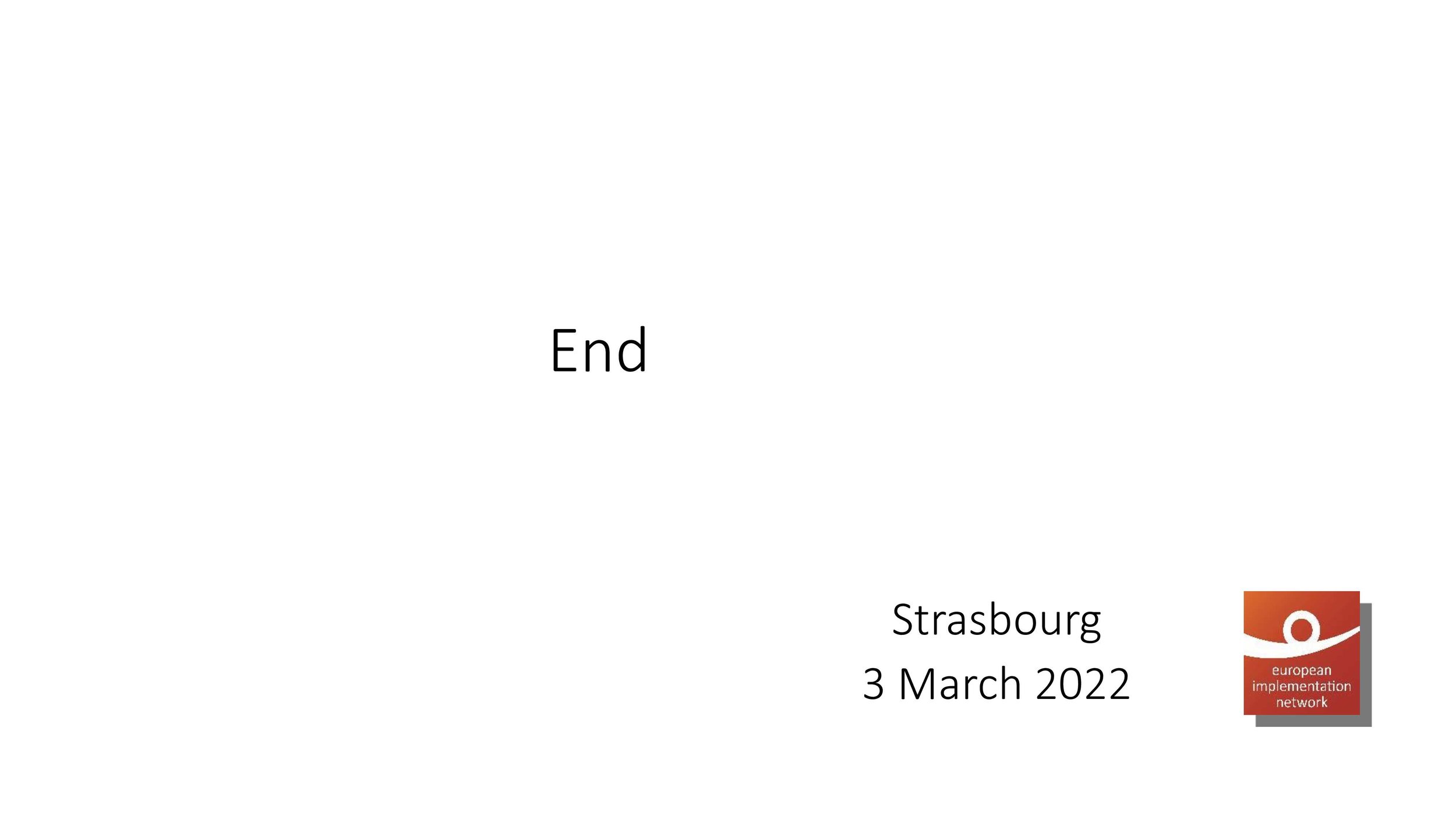EIN Civil Society Briefing September 2022: Republic of Moldova, Turkey, Hungary and Croatia
/On 16 September 2022, EIN held the latest civil society briefing for permanent Representations of the Council of Europe, ahead of the Committee of Ministers Human Rights Meeting on 20-22 September 2022. The event was held in person in Strasbourg.
The Briefing focused on the following cases:
1. I.D. v. the Republic of Moldova concerns poor material conditions of detention in establishments under the authority of the Ministries of the Interior and Justice and the lack of access to adequate medical care (including specialised medical treatment) in these facilities and the detention facility of the National Anticorruption Centre, together with the absence of effective domestic remedies in both respects (violations of Articles 3 and 13). Vadim VIERU, lawyer at Promo-LEX presented key positive developments, key shortcomings, key facts on the ground, and set forward recommendations.
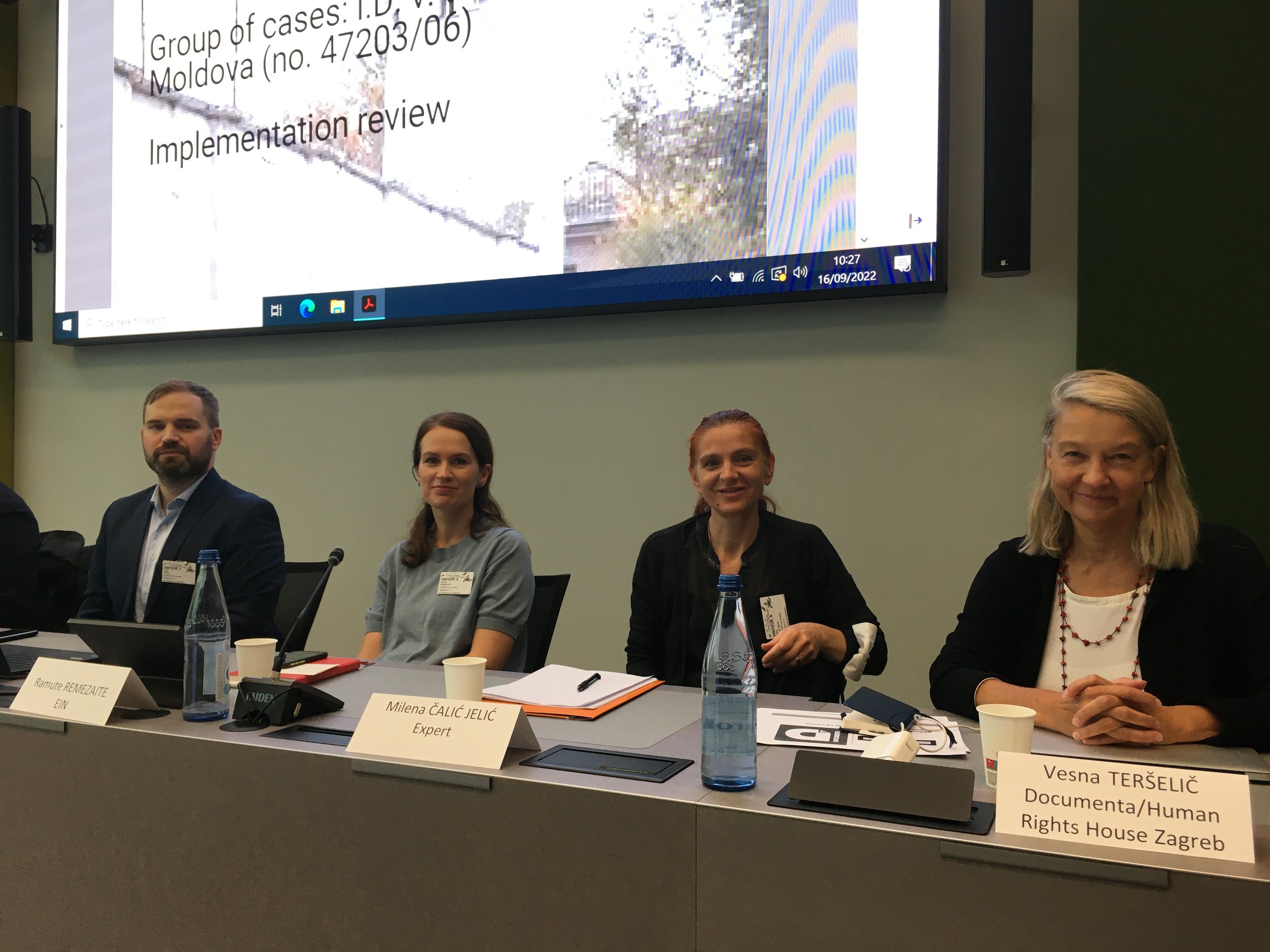
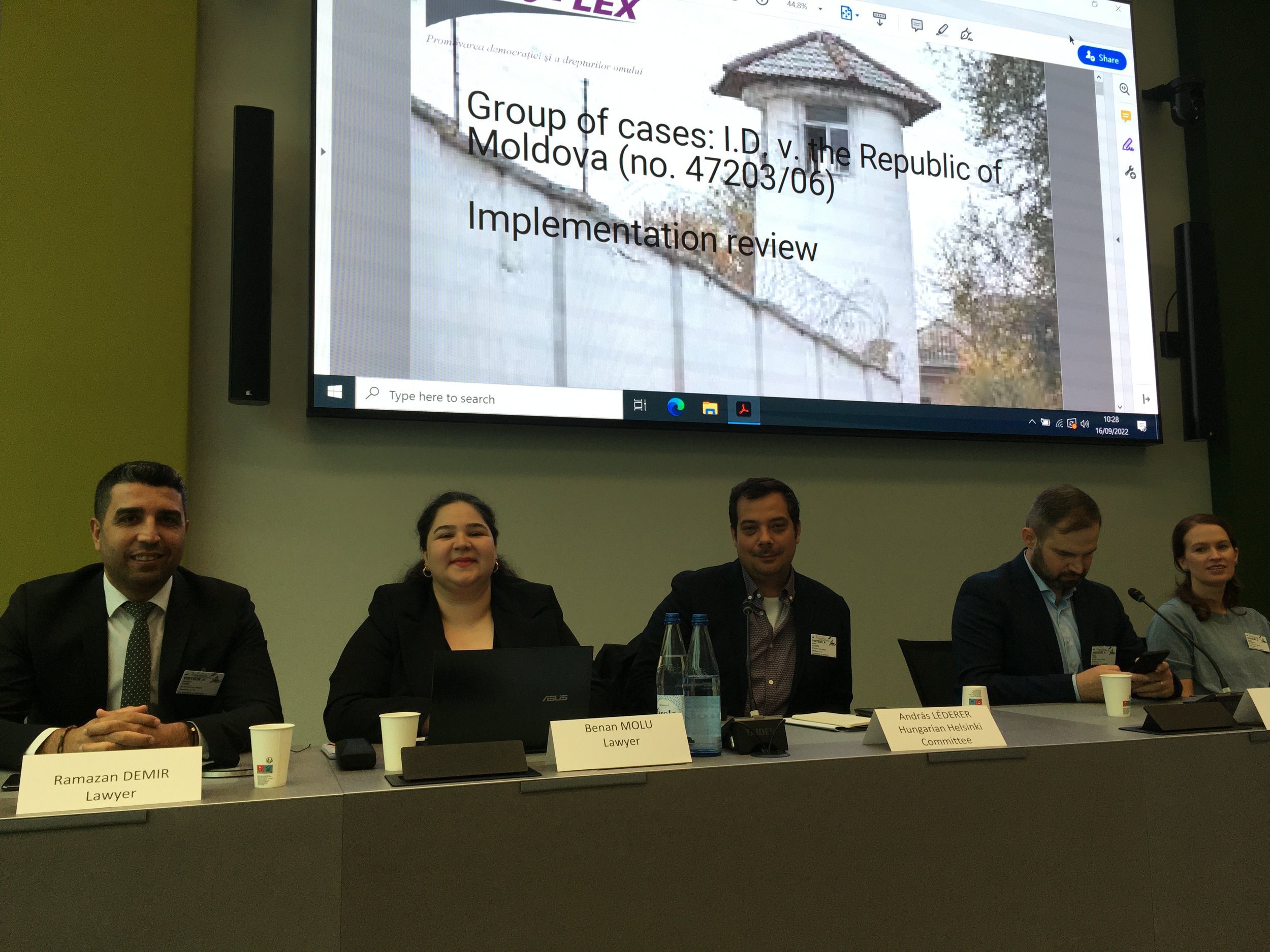
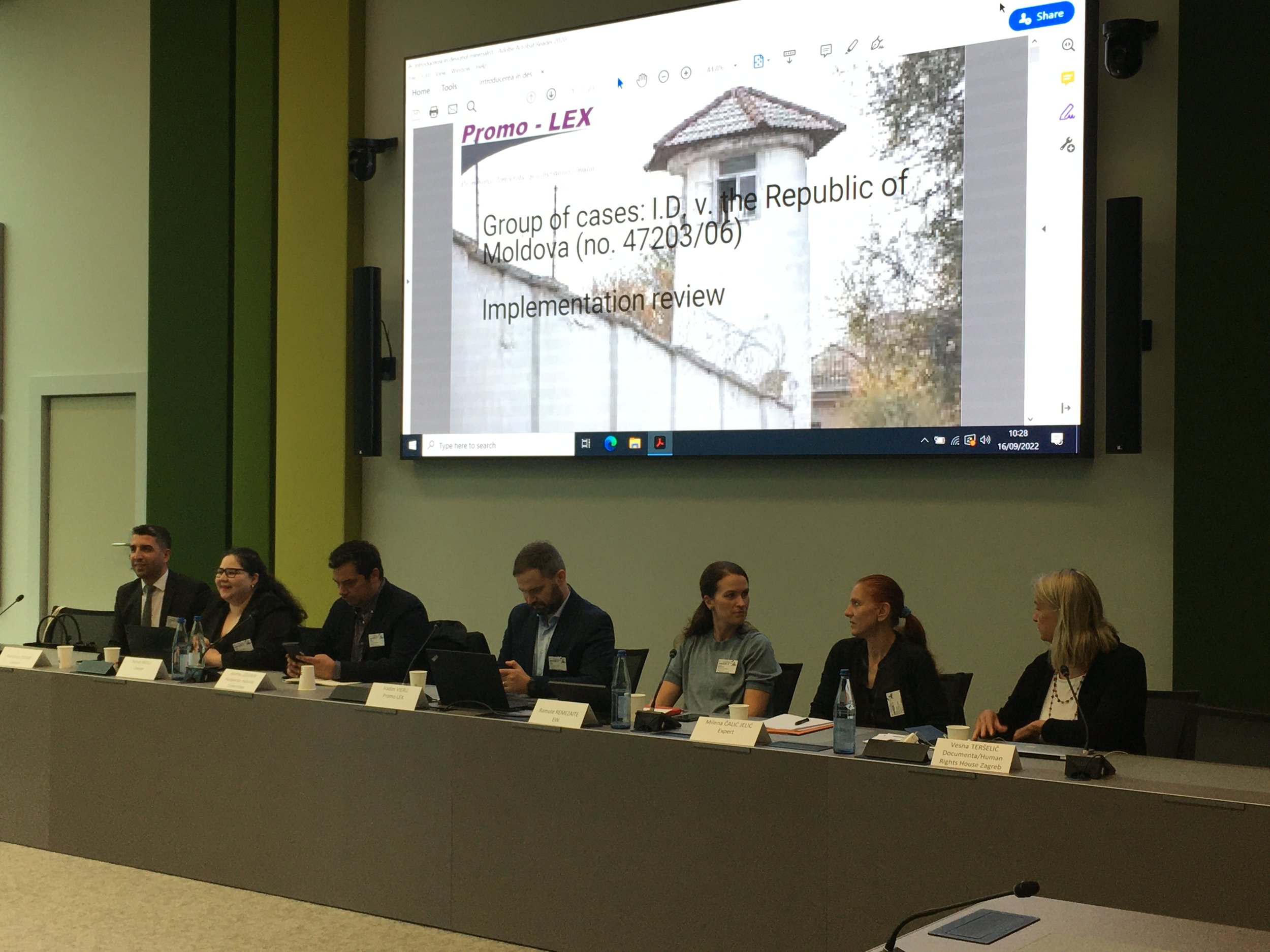
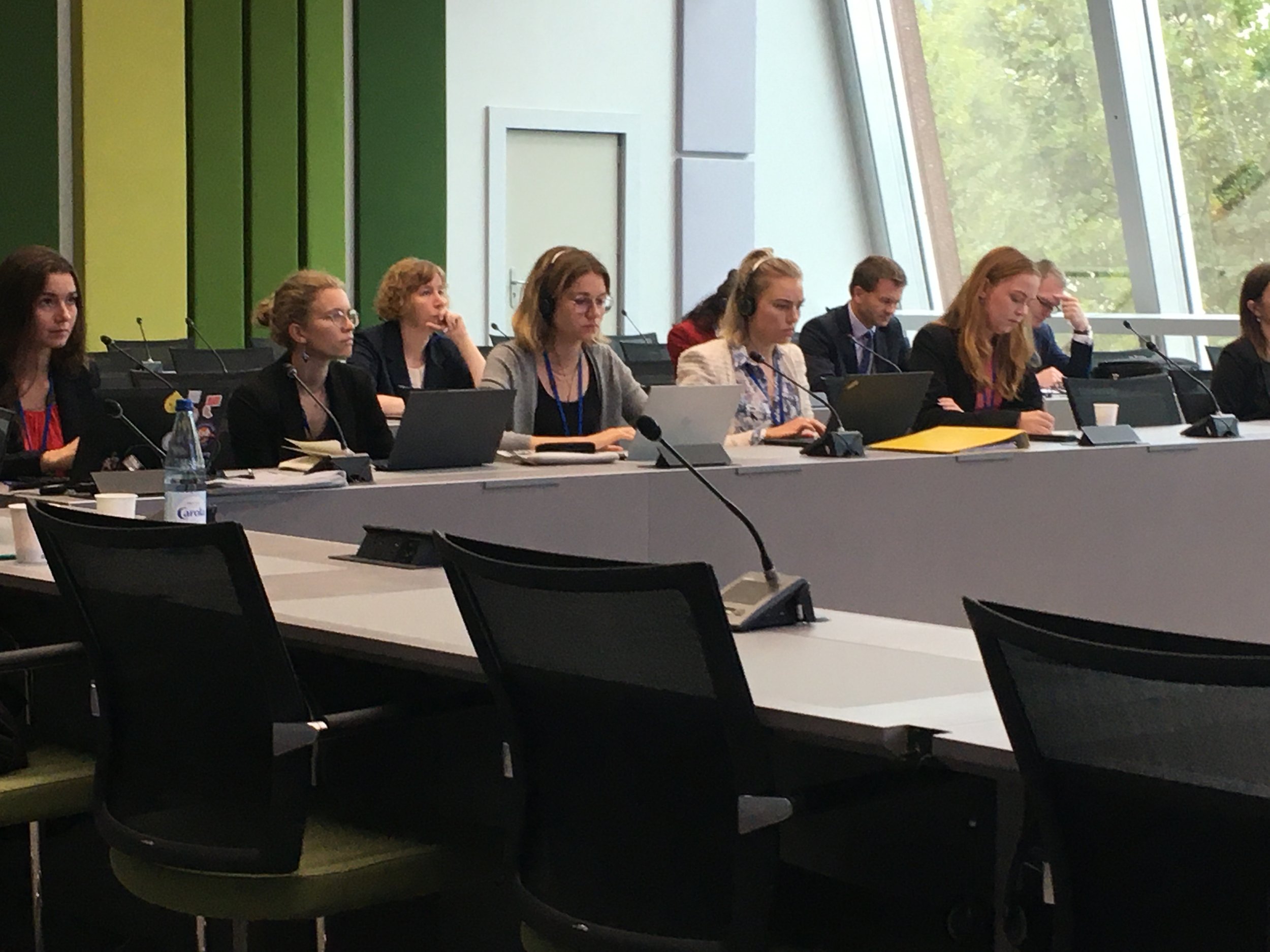
2. The Skendzic and Krznaric v Croatia group of cases concern violations of the right to life on account of the lack of effective investigations into war crimes committed during the Croatian Homeland War (1991-1995) against the applicants’ next-of-kin who disappeared or were killed (violations of Article 2 in its procedural limb). Vesna TERSELIC, Director of Documenta - Center for Dealing with the Past, and Ms. Milena Čalić JELIC, Legal Advisor, discussed ongoing concerns regarding the promptness and adequacy of war crimes investigations, and set forward recommendations.
4. Ilias and Ahmed v Hungary, concerns the authorities’ failure to comply with their procedural obligation under Article 3 to assess the risks of ill-treatment before removing the two asylum-seeking applicants to Serbia in 2015. Andras LEDERER, Senior Advocacy Officer at the Hungarian Helsinki Committee, discussed domestic legal instruments in force leading to repeated violations, Action Reports, and how these translate to the reality on the ground, setting forward recommendations.
3. Selahattin Demirtas (no.2) v Turkey, which concerns the unjustified detention of the applicant without reasonable suspicion that he had committed an offence, with the ulterior purpose of stifling pluralism and limiting freedom of political debate; and unforeseeable lifting of parliamentary immunity and subsequent criminal proceedings to penalise the applicant for political speech. The case was briefed on by Benan MOLU and Ramazan DEMIR, legal representatives of Mr Demirtas.
I.D. v the Republic Moldova
Overview of the case:
The I.D. group of cases concerns violations of Articles 3 and 13 of the Convention on account of poor material conditions of detention in establishments under the authority of the Ministry of Internal Affairs and Ministry of Justice and the lack of access to adequate medical care (including specialized medical treatment) in those facilities, as well as the detention facility of the National Anti-corruption Centre, together with the absence of effective domestic remedies in both respects, as well as the implementation of the effective preventive and compensatory remedy, or a combination of remedies, in respect of inadequate conditions of detention. Other violations found by the Court concern the lack of reasonable clarity as to the scope and manner of the exercise of discretion by the prison authorities as regards the authorization of family visits, contrary to Article 8 of the Convention.
Promo-LEX raised several concerns in relation to the new compensatory mechanism, which are related to:
The capacity of the investigative judges to apply the new preventive and compensatory remedy;
Risks of misinterpretation of the provisions of laws Nos 163 and 272;
A Non-uniform interpretation concerning the pecuniary compensations; the efforts implemented by the authorities to further reduce overcrowding, including through reduced recourse to detention on remand, as well as the construction of a new prison and medical assistance in prisons.
Regarding the efforts to reduce overcrowding, concerns were raised as to the following aspects:
prison population rate remains stable in the Republic of Moldova; no prisoner has been released to prevent the spread of COVID-19;
authorities failed to develop and adopt policies to reduce overcrowding in prisons by applying release mechanisms due to the COVID-19 pandemic;
authorities failed to apply measures to release from detention vulnerable groups of prisoners (such as prisoners with chronic diseases, prisoners over 60 years old, etc.) to reduce overcrowding in prisons and respectively, the COVID-19 associated risks.
Promo-LEX also set out concerns regarding the construction of a new prison, for which the implementation deadline was delayed since 2017 until December 2022, and regarding medical assistance in prisons, noting, inter alia, that:
The prison hospital does not comply with the national standards of a medical institution, does not have a health authorization for operation, does not have accreditation for the provision of medical services;
The prisoners' right to health is violated due to inadequate treatment, lack of medical staff and noncompliance with national treatment protocols and standards;
In the prison nr. 16 there is a lack of medical staff, in the staff states there are no nurse positions, these functions are performed by the detainees. Most medical workers agree to work due to military-grade incentives, which results in higher monthly incomes and faster retirement.
![IDvM_Final[43]1024_1.jpg](https://images.squarespace-cdn.com/content/v1/55815c4fe4b077ee5306577f/1663312659670-P7UOXBV9F2WE1HBXG8CM/IDvM_Final%5B43%5D1024_1.jpg)
![IDvM_Final[43]1024_2.jpg](https://images.squarespace-cdn.com/content/v1/55815c4fe4b077ee5306577f/1663312659779-4J3152LHLLE24021SU5U/IDvM_Final%5B43%5D1024_2.jpg)
![IDvM_Final[43]1024_3.jpg](https://images.squarespace-cdn.com/content/v1/55815c4fe4b077ee5306577f/1663312660324-RN6HZ3MVKBSRT2WVD0OA/IDvM_Final%5B43%5D1024_3.jpg)
![IDvM_Final[43]1024_4.jpg](https://images.squarespace-cdn.com/content/v1/55815c4fe4b077ee5306577f/1663312660683-8P9Y0ZMSXTBB8M0B8SMQ/IDvM_Final%5B43%5D1024_4.jpg)
![IDvM_Final[43]1024_5.jpg](https://images.squarespace-cdn.com/content/v1/55815c4fe4b077ee5306577f/1663312660939-QTS1VE1YMBQ1WGZI677G/IDvM_Final%5B43%5D1024_5.jpg)
![IDvM_Final[43]1024_6.jpg](https://images.squarespace-cdn.com/content/v1/55815c4fe4b077ee5306577f/1663312661330-KIOW6KFXRU7GNVJ5I648/IDvM_Final%5B43%5D1024_6.jpg)
![IDvM_Final[43]1024_7.jpg](https://images.squarespace-cdn.com/content/v1/55815c4fe4b077ee5306577f/1663312661753-B7NJLRYLJ6BK9EB0XHS7/IDvM_Final%5B43%5D1024_7.jpg)
![IDvM_Final[43]1024_8.jpg](https://images.squarespace-cdn.com/content/v1/55815c4fe4b077ee5306577f/1663312661987-EEMHPPEQ0W2IO6R4AOAL/IDvM_Final%5B43%5D1024_8.jpg)
![IDvM_Final[43]1024_9.jpg](https://images.squarespace-cdn.com/content/v1/55815c4fe4b077ee5306577f/1663312662426-TRVV0MZJ658ZG3WS6VY0/IDvM_Final%5B43%5D1024_9.jpg)
![IDvM_Final[43]1024_10.jpg](https://images.squarespace-cdn.com/content/v1/55815c4fe4b077ee5306577f/1663312662678-9RW8YABBTHIVCXL1IRG5/IDvM_Final%5B43%5D1024_10.jpg)
![IDvM_Final[43]1024_11.jpg](https://images.squarespace-cdn.com/content/v1/55815c4fe4b077ee5306577f/1663312663081-732YQ33632AKJV3Q0PQA/IDvM_Final%5B43%5D1024_11.jpg)
![IDvM_Final[43]1024_12.jpg](https://images.squarespace-cdn.com/content/v1/55815c4fe4b077ee5306577f/1663312663436-CV1T29URTI29P1TH05J4/IDvM_Final%5B43%5D1024_12.jpg)
![IDvM_Final[43]1024_13.jpg](https://images.squarespace-cdn.com/content/v1/55815c4fe4b077ee5306577f/1663312663712-UXRPIGHNQ5PUEDV8YZFD/IDvM_Final%5B43%5D1024_13.jpg)
![IDvM_Final[43]1024_14.jpg](https://images.squarespace-cdn.com/content/v1/55815c4fe4b077ee5306577f/1663312664495-8EYGJQ43B8QQS497FYH6/IDvM_Final%5B43%5D1024_14.jpg)
![IDvM_Final[43]1024_15.jpg](https://images.squarespace-cdn.com/content/v1/55815c4fe4b077ee5306577f/1663312664721-RIWUJ10IWTNE9W4PW1MY/IDvM_Final%5B43%5D1024_15.jpg)
![IDvM_Final[43]1024_16.jpg](https://images.squarespace-cdn.com/content/v1/55815c4fe4b077ee5306577f/1663312665187-Y5BFI9P331IGWJ9G0DPJ/IDvM_Final%5B43%5D1024_16.jpg)
![IDvM_Final[43]1024_17.jpg](https://images.squarespace-cdn.com/content/v1/55815c4fe4b077ee5306577f/1663312665540-OED4RWH1JBHRQXXH6WH5/IDvM_Final%5B43%5D1024_17.jpg)
![IDvM_Final[43]1024_18.jpg](https://images.squarespace-cdn.com/content/v1/55815c4fe4b077ee5306577f/1663312665823-U5XCCRFJ2YF0YAMIMM78/IDvM_Final%5B43%5D1024_18.jpg)
![IDvM_Final[43]1024_19.jpg](https://images.squarespace-cdn.com/content/v1/55815c4fe4b077ee5306577f/1663312666240-GE4THPOMXFMIQDSK5YJO/IDvM_Final%5B43%5D1024_19.jpg)
![IDvM_Final[43]1024_20.jpg](https://images.squarespace-cdn.com/content/v1/55815c4fe4b077ee5306577f/1663312666568-0MCJH3IFAUBEP3VEFQK4/IDvM_Final%5B43%5D1024_20.jpg)
![IDvM_Final[43]1024_21.jpg](https://images.squarespace-cdn.com/content/v1/55815c4fe4b077ee5306577f/1663312666849-488V1UBRD1500S9NBZMB/IDvM_Final%5B43%5D1024_21.jpg)
![IDvM_Final[43]1024_22.jpg](https://images.squarespace-cdn.com/content/v1/55815c4fe4b077ee5306577f/1663312667194-XOF1I6XM863ED9IWMFM2/IDvM_Final%5B43%5D1024_22.jpg)
![IDvM_Final[43]1024_23.jpg](https://images.squarespace-cdn.com/content/v1/55815c4fe4b077ee5306577f/1663312667642-P2KO4231PSVNNJNEY2CL/IDvM_Final%5B43%5D1024_23.jpg)
Recommendations:
With regard to the implementation of the preventive and compensatory mechanism, Promo-LEX set forward the following recommendations:
The Government to continue to provide statistics to the Committee of Minister's data as to the application in practice of the newly adopted preventive and compensatory remedy;
The Supreme Council of Magistracy to ensure that the Investigative Judges respect the terms set by law for examining the cases related to the application of the preventive and compensatory mechanism;
Ensure that the practice of the application by the investigative judges of the new remedy is effective and the pecuniary compensation (moral and material) provided to the detainees is equitable and following the ECtHR standards;
With regard to the improvement of detention conditions, Promo-LEX recommended that:
The National Prison Administration should implement the recommendations given by the CPT after its last visits during the period of 2015 – 2020, like reducing the levels of violence and reducing the overcrowding in cells;
The Government should ensure living space under existing international norms;
The Government should improve the quality and quantity of food and water provided to detainee;
With regard to the construction of a new prison, Promo-LEX recommended that:
Until the new prison is constructed, the Government should reduce overcrowding, particularly through the wider application of non-custodial measures as an alternative to imprisonment, in the light of the United Nations Standard Minimum Rules for Non-custodial Measures (Tokyo Rules);
The Ministry of Justice to provide a detailed timetable for the construction of the new prison in Chișinău and information on its general layout (overall capacity; size and design of accommodation cells; facilities for out-of-cell association activities, including areas for educational and vocational training, workshops, facilities for outdoor exercise and sport, etc.)
With regard to medical assistance in prison, the following recommendations were set forward:
The Ministry of Justice and the Ministry of Health, Labor and Social Protection should follow the recommendations given by UN Committee for Prevention of Torture and the recommendations made under the UPR and develop a public policy ensuring the transfer of health workers subordinated to the National Prison Administration under the subordination of the Ministry of Health;
The Government should provide appropriate and effective medical care of prisoners and detained persons, including adequate medicines;
The Government should ensure the recruitment of qualified medical personnel;
The Government should increase the budget allocated for health care in penitentiary institutions, including by developing the capacities and the infrastructure of the Pruncul Prison Hospital – P 16;
The Government and parliament should take prompt action to reduce the prison population in conditions allowing effective implementation in detention of the preventive measures required by WHO.
Please see the slides for the full Briefing.
Relevant Documents
CM Decisions
NGO/NHRI Communications
Skendzic and Krznaric v Croatia
Overview of the case:
The group of cases concerns the lack of effective investigations into war crimes committed during the Croatian Homeland War (1991-1995) against the applicants’ next-of-kin who disappeared or were killed (violations of Article 2 in its procedural limb). The European Court found the following shortcomings in these investigations:
lack of promptness due to inexplicable delays and absence of serious efforts to establish the identity of the perpetrators;
lack of adequate investigations on account of:
(i) the authorities’ failure to identify and bring the direct perpetrators to justice (only members of the superior chain of command were brought to justice, while the authorities were also under the obligation to identify and bring to justice those who were directly responsible for the killing of the applicants’ next-of-kin);
(ii) the authorities’ failure to follow all available leads capable of identifying and bringing perpetrators to justice;
(iii) the examination of the circumstances surrounding the killing of the applicants’ next-of-kin remained at the level of a police inquiry, excluding involvement of an investigating judge, despite the existence of a large number of direct witnesses;
lack of independence in investigations which were entrusted to police stations employing officers suspected of being involved in the disappearance/killings.
![20220914_Skendžić and Krznarić group -ENv2[75] - Read-Only-0.jpg](https://images.squarespace-cdn.com/content/v1/55815c4fe4b077ee5306577f/1663268133110-9R91RUEBJXBEH9QCQFKW/20220914_Skendz%CC%8Cic%CC%81+and+Krznaric%CC%81+group+-ENv2%5B75%5D+-+Read-Only-0.jpg)
![20220914_Skendžić and Krznarić group -ENv2[75] - Read-Only-1.jpg](https://images.squarespace-cdn.com/content/v1/55815c4fe4b077ee5306577f/1663268133177-DPUBS0WHRCFAANBHR1DY/20220914_Skendz%CC%8Cic%CC%81+and+Krznaric%CC%81+group+-ENv2%5B75%5D+-+Read-Only-1.jpg)
![20220914_Skendžić and Krznarić group -ENv2[75] - Read-Only-2.jpg](https://images.squarespace-cdn.com/content/v1/55815c4fe4b077ee5306577f/1663268133852-I8AT9N9NG6WKHOETR4VV/20220914_Skendz%CC%8Cic%CC%81+and+Krznaric%CC%81+group+-ENv2%5B75%5D+-+Read-Only-2.jpg)
![20220914_Skendžić and Krznarić group -ENv2[75] - Read-Only-3.jpg](https://images.squarespace-cdn.com/content/v1/55815c4fe4b077ee5306577f/1663268133981-6O1EY1HKRI9LHBYLS06D/20220914_Skendz%CC%8Cic%CC%81+and+Krznaric%CC%81+group+-ENv2%5B75%5D+-+Read-Only-3.jpg)
![20220914_Skendžić and Krznarić group -ENv2[75] - Read-Only-4.jpg](https://images.squarespace-cdn.com/content/v1/55815c4fe4b077ee5306577f/1663268134683-S08H5T010OC1HGL9S5O2/20220914_Skendz%CC%8Cic%CC%81+and+Krznaric%CC%81+group+-ENv2%5B75%5D+-+Read-Only-4.jpg)
![20220914_Skendžić and Krznarić group -ENv2[75] - Read-Only-5.jpg](https://images.squarespace-cdn.com/content/v1/55815c4fe4b077ee5306577f/1663268134800-E57KM91UGFDGFPXLP5LE/20220914_Skendz%CC%8Cic%CC%81+and+Krznaric%CC%81+group+-ENv2%5B75%5D+-+Read-Only-5.jpg)
![20220914_Skendžić and Krznarić group -ENv2[75] - Read-Only-6.jpg](https://images.squarespace-cdn.com/content/v1/55815c4fe4b077ee5306577f/1663268135511-LCV7KGZ4LWIZJ6M2TIZV/20220914_Skendz%CC%8Cic%CC%81+and+Krznaric%CC%81+group+-ENv2%5B75%5D+-+Read-Only-6.jpg)
![20220914_Skendžić and Krznarić group -ENv2[75] - Read-Only-7.jpg](https://images.squarespace-cdn.com/content/v1/55815c4fe4b077ee5306577f/1663268135551-5GSI4I40224PFKV3NZXQ/20220914_Skendz%CC%8Cic%CC%81+and+Krznaric%CC%81+group+-ENv2%5B75%5D+-+Read-Only-7.jpg)
![20220914_Skendžić and Krznarić group -ENv2[75] - Read-Only-8.jpg](https://images.squarespace-cdn.com/content/v1/55815c4fe4b077ee5306577f/1663268136132-2AMGOTLQPD4ZOLXH59O8/20220914_Skendz%CC%8Cic%CC%81+and+Krznaric%CC%81+group+-ENv2%5B75%5D+-+Read-Only-8.jpg)
![20220914_Skendžić and Krznarić group -ENv2[75] - Read-Only-9.jpg](https://images.squarespace-cdn.com/content/v1/55815c4fe4b077ee5306577f/1663268136274-SE7MYQZZI7LIT2R188NB/20220914_Skendz%CC%8Cic%CC%81+and+Krznaric%CC%81+group+-ENv2%5B75%5D+-+Read-Only-9.jpg)
![20220914_Skendžić and Krznarić group -ENv2[75] - Read-Only-10.jpg](https://images.squarespace-cdn.com/content/v1/55815c4fe4b077ee5306577f/1663268136820-NV18EUVT0R3D2UEVQW8J/20220914_Skendz%CC%8Cic%CC%81+and+Krznaric%CC%81+group+-ENv2%5B75%5D+-+Read-Only-10.jpg)
![20220914_Skendžić and Krznarić group -ENv2[75] - Read-Only-11.jpg](https://images.squarespace-cdn.com/content/v1/55815c4fe4b077ee5306577f/1663268136945-BRJRYJ4YQYKVB8ZFCWQI/20220914_Skendz%CC%8Cic%CC%81+and+Krznaric%CC%81+group+-ENv2%5B75%5D+-+Read-Only-11.jpg)
![20220914_Skendžić and Krznarić group -ENv2[75] - Read-Only-12.jpg](https://images.squarespace-cdn.com/content/v1/55815c4fe4b077ee5306577f/1663268137456-WG6MXB8L0X9D96PXOLSO/20220914_Skendz%CC%8Cic%CC%81+and+Krznaric%CC%81+group+-ENv2%5B75%5D+-+Read-Only-12.jpg)
![20220914_Skendžić and Krznarić group -ENv2[75] - Read-Only-13.jpg](https://images.squarespace-cdn.com/content/v1/55815c4fe4b077ee5306577f/1663268137735-R3YSZMAXEQBQY8F7R5AL/20220914_Skendz%CC%8Cic%CC%81+and+Krznaric%CC%81+group+-ENv2%5B75%5D+-+Read-Only-13.jpg)
![20220914_Skendžić and Krznarić group -ENv2[75] - Read-Only-14.jpg](https://images.squarespace-cdn.com/content/v1/55815c4fe4b077ee5306577f/1663268138076-CCDIZHL0WEOJNYLADCC6/20220914_Skendz%CC%8Cic%CC%81+and+Krznaric%CC%81+group+-ENv2%5B75%5D+-+Read-Only-14.jpg)
![20220914_Skendžić and Krznarić group -ENv2[75] - Read-Only-15.jpg](https://images.squarespace-cdn.com/content/v1/55815c4fe4b077ee5306577f/1663268138391-RQV9TO0LZVVC875UGR5I/20220914_Skendz%CC%8Cic%CC%81+and+Krznaric%CC%81+group+-ENv2%5B75%5D+-+Read-Only-15.jpg)
![20220914_Skendžić and Krznarić group -ENv2[75] - Read-Only-16.jpg](https://images.squarespace-cdn.com/content/v1/55815c4fe4b077ee5306577f/1663268138760-6U8RR746CQ5IQMYV8KC3/20220914_Skendz%CC%8Cic%CC%81+and+Krznaric%CC%81+group+-ENv2%5B75%5D+-+Read-Only-16.jpg)
![20220914_Skendžić and Krznarić group -ENv2[75] - Read-Only-17.jpg](https://images.squarespace-cdn.com/content/v1/55815c4fe4b077ee5306577f/1663268139051-6WUW67F0GSYLLO64S8K8/20220914_Skendz%CC%8Cic%CC%81+and+Krznaric%CC%81+group+-ENv2%5B75%5D+-+Read-Only-17.jpg)
![20220914_Skendžić and Krznarić group -ENv2[75] - Read-Only-18.jpg](https://images.squarespace-cdn.com/content/v1/55815c4fe4b077ee5306577f/1663268139697-3DWKKQFU4G3JYT6L6BQQ/20220914_Skendz%CC%8Cic%CC%81+and+Krznaric%CC%81+group+-ENv2%5B75%5D+-+Read-Only-18.jpg)
![20220914_Skendžić and Krznarić group -ENv2[75] - Read-Only-19.jpg](https://images.squarespace-cdn.com/content/v1/55815c4fe4b077ee5306577f/1663268139871-ZDPMQCSRPQ37O8N64KD1/20220914_Skendz%CC%8Cic%CC%81+and+Krznaric%CC%81+group+-ENv2%5B75%5D+-+Read-Only-19.jpg)
![20220914_Skendžić and Krznarić group -ENv2[75] - Read-Only-20.jpg](https://images.squarespace-cdn.com/content/v1/55815c4fe4b077ee5306577f/1663268140267-P9FXP7JAFPS23TQBEB3D/20220914_Skendz%CC%8Cic%CC%81+and+Krznaric%CC%81+group+-ENv2%5B75%5D+-+Read-Only-20.jpg)
Documenta - Center for Dealig with the Past raised the following key concerns:
There has been a decrease in the number of prosecutions and trials following EU accession;
Responsible County State attorneys are still lacking capacity for reviewing and investigating dormant war crimes cases;
Proceedings hold bias towards ethnic Serbs and there is failure in effectively investigating and indicting perpetrators of war crimes against ethnic Serbs;
In absentia trials are creating a high risk of re-opening proceedings;
Very limited regional judicial cooperation regarding prosecution of war crimes;
Accounting on missing persons is not updated since 2015;
The UN Special Rapporteur on Truth, Justice, Compensation and Guarantee of Non-Repetition notes the rise of political interference in the prosecution of war crimes.
The decrease in the number of prosecutions and trials since EU accession was recently highlighted by the UN Special Rapporteur on the Promotion of Truth, Justice, Reparation and Guarantees of Non-Recurrence, who has noted that:
“progress appears to have stalled in the last 7 years and concerns have risen regarding the prospects of effective social reconciliation, particularly as a result of growing instances of hate speech, the glorification of war crimes, and the relativization of the decisions of the ICTY and national tribunals.”
[…] “progress was particularly strong in the 90’s and in the early 2000s during Croatia’s process of accession to the European Union. Numerous stakeholders have informed, nonetheless, that the number of prosecutions and trials has significantly decreased since, as did the regional cooperation in this field. Political interference has also reportedly risen.”
“Despite earlier progress, cooperation in the region has slowed down hampered by the lack of exchange of information and evidence across borders (which has been described by several interlocutors as a trade on missing persons) as well as the lack of effective investigation and prosecution of war crimes.”
It was indicated that the lack of adequacy and promptness of criminal proceedings is reflected in practice, and several examples were given:
The annulment and retrial in the case against Branimir Glavaš, former Member of Croatian Parliament Investigations of war crimes committed in Uzdolje in 1995
The investigation into war crimes committed in Bogdanovici in November 1991 Crimes committed during and after the Military Operations „Storm“ and „Flash“
War crimes committed against Serb civilians in Vukovar
Substantial reduction in the number of final verdicts reached in absentia.
Research carried out by Documenta and the Center for Peace, Nonviolence and Human Rights Osijek also indicated that, due to procedural issues “hearings very often start from the beginning, so witnesses who have already been directly heard multiple times are called to testify again”.
Regarding the insufficient capacity of state attorney teams to process cases, Documenta highlighted the limited capacity of county prosecutor’s offices to secure investigation of dormant cases which had been allocated in 2011.
Another concern is the fact that very few proceedings have been initiated for crimes committed by perpetrators against ethnic Serbs, which indicated that the investigations are not impartial irrespective of the ethnicity of those involved:
Of the total number of monitored criminal proceedings, during 2020, 40 (91%) were against members of Serbian paramilitary units/Yugoslav People's Army
During 2021 there were 38 (90%) of such proceedings
Only 1 person indicted as a member of HVO (Croatian Council of Defence – BiH) between 2020 - 2021
The UN Special Rapporteur on Truth, Justice, Compensation and Guarantee of Non-Repetition has also noted that “Proceedings have also been criticised for holding a bias towards ethnic Serbs. In this connection, international human rights mechanisms expressed concern that the selection of cases apparently remained disproportionately directed against ethnic Serbs and le noted that according to representatives of victims’ associations, many crimes allegedly committed by members of the Croatian Army and police forces in 1995 had not been investigated or prosecuted.”
The effectiveness of war crimes investigations is affected by the high number of in absentia trials which creates a high risk of overturning decisions:
During 2020 and 2021, 86% of former members of Serbian paramilitary formations/Yugoslav People's Army were tried in absentia.
For 2020 - 2021, 19% of the proceedings were reopened
The UN Special Rapporteur on Truth, Justice, Compensation and Guarantee of Non-Repetition has also noted that “Several of the proceedings conducted earlier on have faced criticism due to the fact that they have been conducted in absentia, as the alleged perpetrators resided in countries from where they could not be extradited. Some persons who were convicted in absentia requested the reopening of their proceedings, which resulted in a substantial reduction in the number of final verdicts reached in absentia.”
The limited regional cooperation is also a concern, which was highlighted by the UN Special Rapporteur on Truth, Justice, Compensation and Guarantee of Non-Repetition and by the chief prosecutor at the UN’s International Residual Mechanism for Criminal Tribunals in The Hague, who recently stated that:
Croatia is “taking political decisions to block the justice process” in 1990s war crimes cases.
“in the former Yugoslavia, the most significant issue remains regional judicial cooperation” in war crimes cases.
Bosnia and Herzegovina and Serbia “are experiencing severe difficulties obtaining cooperation from Croatia”.
Documenta also highlighted concerns regarding the judicial review of criminal investigations, highlighting that the Constitutional Court remedy has been effective for granting compensation (but not for seeing the effective investigations take place), as well as concerns regarding accounting for missing persons.
Please see the slides for the full Briefing.
Recommendations:
Documenta - Center for Dealing with the Past recommended to the Committee of Ministers to:
Continue examining the Skendizc and Krznaric group of cases under enhanced procedure;
Request the national authorities to accelerate the processing of pending cases, and to reverse the trend of decreasing prosecutions and trials;
Ensure that investigations, prosecutions and trials are carried without without ethnic bias (regardless of the ethnicity of the perpetrators and victims);
Take steps to increase regional cooperation, exchange of information and evidence across borders and take all necessary efforts to ensure in person trials.
Put an end to any political interference in the investigation, prosecution and trials of war crimes;
Update the accounting on missing persons and ensure it is accessible to the public;
Increase the capacity of county prosecutor’s offices in Osijek, Rijeka, Split and Zagreb to process “dormant cases”.
Relevant Documents
NGO/NHRI Communications
Overview of the case:
The case of Ilias and Ahmed concerns the authorities’ failure to comply with their procedural obligation under Article 3 to assess the risks of ill-treatment before removing the two asylum-seeking applicants to Serbia in 2015. The Court found in particular that “there was an insufficient basis for the government’s decision to establish a general presumption concerning Serbia as a safe third country”, that “the expulsion decisions disregarded the authoritative findings of the UNHCR as to a real risk of denial of access to an effective asylum procedure in Serbia and summary removal from Serbia to North Macedonia and then to Greece, and that the authorities exacerbated the risks facing the applicants by inducing them to enter Serbia illegally instead of negotiating an orderly return”.
On behalf of the Hungarian Helsinki Committee, Andras Lederer discussed the general presumptions concerning the safety of Serbia as a third country and the legal instruments in force. He also highlighted the fact that the government does not foresee any change.
The Hungarian Helsinki Committee highlighted the fact that automatic removals to Serbia continue. The State Borders Act prescribes the automatic removal of unlawfully staying foreigners to the Serbian side of the border fence without identification, individualised procedure, formal decision or contacting the Serbian authorities. Concern also also raised regarding “access” to asylum:
• Sections 267-275 of the Transitional Act introduces a pre-approval system against which no remedy is available;
• Since May 2020, 86 statements of intent were sent to the asylum authority, 12 of these were approved;
•Those fleeing Ukraine who do not fall under the temporary protection scheme are also sent to Serbia;
• Regular denial of access to asylum on the territory, related domestic court decisions sabotaged or not implemented
![Ilias and Ahmed (1)[85]-0.jpg](https://images.squarespace-cdn.com/content/v1/55815c4fe4b077ee5306577f/1663267898413-VZE6ITQEX11X2K6JARV9/Ilias+and+Ahmed+%281%29%5B85%5D-0.jpg)
![Ilias and Ahmed (1)[85]-1.jpg](https://images.squarespace-cdn.com/content/v1/55815c4fe4b077ee5306577f/1663267898428-1UIXENO8HAHMBJQJXEIM/Ilias+and+Ahmed+%281%29%5B85%5D-1.jpg)
![Ilias and Ahmed (1)[85]-2.jpg](https://images.squarespace-cdn.com/content/v1/55815c4fe4b077ee5306577f/1663267899064-VP24SP9JG0FWDY8N04GC/Ilias+and+Ahmed+%281%29%5B85%5D-2.jpg)
![Ilias and Ahmed (1)[85]-3.jpg](https://images.squarespace-cdn.com/content/v1/55815c4fe4b077ee5306577f/1663267899395-1P1CAA08DGIIJ0PVVFP7/Ilias+and+Ahmed+%281%29%5B85%5D-3.jpg)
![Ilias and Ahmed (1)[85]-4.jpg](https://images.squarespace-cdn.com/content/v1/55815c4fe4b077ee5306577f/1663267900059-X59B8JEUB8EOLVK6GDN1/Ilias+and+Ahmed+%281%29%5B85%5D-4.jpg)
![Ilias and Ahmed (1)[85]-5.jpg](https://images.squarespace-cdn.com/content/v1/55815c4fe4b077ee5306577f/1663267900175-8BKM28CHB4ASYXNCERX6/Ilias+and+Ahmed+%281%29%5B85%5D-5.jpg)
![Ilias and Ahmed (1)[85]-6.jpg](https://images.squarespace-cdn.com/content/v1/55815c4fe4b077ee5306577f/1663267900982-CWUX0UIV87Z25T15VCTM/Ilias+and+Ahmed+%281%29%5B85%5D-6.jpg)
![Ilias and Ahmed (1)[85]-7.jpg](https://images.squarespace-cdn.com/content/v1/55815c4fe4b077ee5306577f/1663267901167-M03GBSVU0IB7V7YJQ40H/Ilias+and+Ahmed+%281%29%5B85%5D-7.jpg)
![Ilias and Ahmed (1)[85]-8.jpg](https://images.squarespace-cdn.com/content/v1/55815c4fe4b077ee5306577f/1663267901810-7KV7LQJLTJCN1KSBYA1H/Ilias+and+Ahmed+%281%29%5B85%5D-8.jpg)
![Ilias and Ahmed (1)[85]-9.jpg](https://images.squarespace-cdn.com/content/v1/55815c4fe4b077ee5306577f/1663267901885-S5HVDUD90YDBEJMJSGNN/Ilias+and+Ahmed+%281%29%5B85%5D-9.jpg)
![Ilias and Ahmed (1)[85]-10.jpg](https://images.squarespace-cdn.com/content/v1/55815c4fe4b077ee5306577f/1663267902543-KQ4BQ17CWEJ03ZS5UNKR/Ilias+and+Ahmed+%281%29%5B85%5D-10.jpg)
![Ilias and Ahmed (1)[85]-11.jpg](https://images.squarespace-cdn.com/content/v1/55815c4fe4b077ee5306577f/1663267902685-1U6ZCJ3I4B335QESMJFN/Ilias+and+Ahmed+%281%29%5B85%5D-11.jpg)
![Ilias and Ahmed (1)[85]-12.jpg](https://images.squarespace-cdn.com/content/v1/55815c4fe4b077ee5306577f/1663267903327-NYD1YOQIK22WUYSG3S05/Ilias+and+Ahmed+%281%29%5B85%5D-12.jpg)
![Ilias and Ahmed (1)[85]-13.jpg](https://images.squarespace-cdn.com/content/v1/55815c4fe4b077ee5306577f/1663267903470-YPGXCG5NF89S4QIWX7IC/Ilias+and+Ahmed+%281%29%5B85%5D-13.jpg)
![Ilias and Ahmed (1)[85]-14.jpg](https://images.squarespace-cdn.com/content/v1/55815c4fe4b077ee5306577f/1663267904014-6K4RT9RXDYYA4BE149VG/Ilias+and+Ahmed+%281%29%5B85%5D-14.jpg)
![Ilias and Ahmed (1)[85]-15.jpg](https://images.squarespace-cdn.com/content/v1/55815c4fe4b077ee5306577f/1663267904186-3AUU56MWNTT7CCG1YP6D/Ilias+and+Ahmed+%281%29%5B85%5D-15.jpg)
Recommendations
The Hungarian Helsinki Committee recommend that the Committee of Ministers request information from the authorities concerning:
• The state of play of the reform of the asylum system allegedly underway since at least 20 October 2020, especially how it will contribute to the implementation of the general measures identified in the judgment
• Until the introduction of this reform, how authorities discharge their duties under Article 3 in the framework of the embassy system in cases where prospective applicants are staying in Hungary
Furthermore, the Committee of Ministers should request the authorities to:
• Conduct a new assessment on the situation of asylum-seekers in Serbia
• Repeal Section 51(2)(f) of the Asylum Act and review the related amendment to the Fundamental Law
• Repeal Section 5(1)(b) of the State Borders Act
• Amend Section 51(2)(e) and Section 51/A of the Asylum Act to ensure that the „safe third country” concept is applied in cases where the third country ensures access to territory and procedure
• Take measures that ensure effective access to territory and procedure at the borders and on the territory of Hungary regardless of their migratory status.
Please see the slides for the full Briefing.
Relevant Documents
NGO/NHRI Communications
Selahattin Demirtaş (no.2) v Turkey
Overview of the case:
The Court found that the applicant was detained in the absence of evidence to support a reasonable suspicion he had committed an offence (violation of Article 5 §§ 1 and 3) and that his arrest and pre-trial detention especially during two crucial campaigns pursued an ulterior purpose, namely to stifle pluralism and limit freedom of political debate (violation of Article 18 taken in conjunction with Article 5); that lifting of the applicant’s parliamentary immunity and the way the criminal law was applied to penalise the applicant for political speeches were not foreseeable and prescribed by law (violation of Article 10) and that his consequent detention made it effectively impossible for the applicant to take part in the activities of the National Assembly (violation of Article 3 of Protocol No. 1).
The briefing particularly focused on the Government’s argument that “new pieces of evidence” that had not been examined by the ECtHR have emerged and that the substance of the allegations against Mr. Demirtaş is now different.
The applicant’s legal representatives, explained that:
![Demirtaş - CoM briefing 16.09.22[12] - Read-Only-0.jpg](https://images.squarespace-cdn.com/content/v1/55815c4fe4b077ee5306577f/1663270546758-8MNOPZMT9NDT581P6ABM/Demirtas%CC%A7+-+CoM+briefing+16.09.22%5B12%5D+-+Read-Only-0.jpg)
![Demirtaş - CoM briefing 16.09.22[12] - Read-Only-1.jpg](https://images.squarespace-cdn.com/content/v1/55815c4fe4b077ee5306577f/1663270547027-EFNJQWCAWYSHIE7B6F66/Demirtas%CC%A7+-+CoM+briefing+16.09.22%5B12%5D+-+Read-Only-1.jpg)
![Demirtaş - CoM briefing 16.09.22[12] - Read-Only-2.jpg](https://images.squarespace-cdn.com/content/v1/55815c4fe4b077ee5306577f/1663270547811-MQXY9VGBRKDSAO5V5O3I/Demirtas%CC%A7+-+CoM+briefing+16.09.22%5B12%5D+-+Read-Only-2.jpg)
![Demirtaş - CoM briefing 16.09.22[12] - Read-Only-3.jpg](https://images.squarespace-cdn.com/content/v1/55815c4fe4b077ee5306577f/1663270547915-J6FAYNVIY7V23B5X2JJG/Demirtas%CC%A7+-+CoM+briefing+16.09.22%5B12%5D+-+Read-Only-3.jpg)
![Demirtaş - CoM briefing 16.09.22[12] - Read-Only-4.jpg](https://images.squarespace-cdn.com/content/v1/55815c4fe4b077ee5306577f/1663270548597-POCBJXTOPWO5M8TOCANB/Demirtas%CC%A7+-+CoM+briefing+16.09.22%5B12%5D+-+Read-Only-4.jpg)
![Demirtaş - CoM briefing 16.09.22[12] - Read-Only-5.jpg](https://images.squarespace-cdn.com/content/v1/55815c4fe4b077ee5306577f/1663270548813-FZLM30NCY36PJ65ZMFCS/Demirtas%CC%A7+-+CoM+briefing+16.09.22%5B12%5D+-+Read-Only-5.jpg)
![Demirtaş - CoM briefing 16.09.22[12] - Read-Only-6.jpg](https://images.squarespace-cdn.com/content/v1/55815c4fe4b077ee5306577f/1663270549322-B30ODKL3WS1H9MMX30NT/Demirtas%CC%A7+-+CoM+briefing+16.09.22%5B12%5D+-+Read-Only-6.jpg)
The charges against the applicant have not changed in substance
Witness/anonymous witness statements have not contained any substantially new facts capable of justifying a new suspicion and the substance of these statements had been based on facts that were similar or even identical to those that the Court had already examined in the Demirtaş v. Türkiye (no. 2) [GC] judgment.
The witness statements:
are contradictory, inconsistent and false,
their content and accusations essentially concern the events of 6-8 October and that Demirtaş is a member of/executive for a terrorist organisation—all of which have been carefully assessed and discussed in the Grand Chamber judgment,
are added to the case file approximately 2.5, 3.5, 17, 29, 32 and 33 months after the pre-trial detention decision and are used as tools to keep the applicant in prison.
Mr Demirtaş has not been released and has been held in pre-trial detention almost six years;
Türkiye have not acted in ‘good faith’, in a manner compatible with the ‘conclusions and spirit’ of the Demirtaş judgment (see also Osman Kavala v. Türkiye [GC], (46/4), para. 173).
The legal representatives of Mr. Demirtaş also explain the ongoing judicial harassment against the applicant:
´4 years and 8 months prison sentence for allegedly ‘making propaganda for a terrorist organization’ (referred to as the second set of proceedings before the Committee of Ministers) – used as a tool to prevent the applicant’s release despite the ECtHR judgment and to prevent his participation in any election which may be held prior to 2026;
´Following decisions of conviction, acquittal, separation and joinder of cases in 47 cases filed against the applicant, 20 cases remain pending under different courts;
´New indictment prepared for the dissolution of the HDP and the political ban on politicians including the applicant – The Constitutional Court may prohibit Mr. Demirtaş from becoming the founder or member of any political party for five years;
´Stigmatized as "terrorist" and "murderer" with the statements of high-level public officials'';
The Constitutional Court has not delivered any judgment for the application related to the second pre-trial detention of the applicant since 7 November 2019.
Recommendations
The applicant’s legal representatives urged the Committee of Ministers to:
i. continue the supervision of the implementation of the judgment Selahattin Demirtaş v. Türkiye (no. 2) [GC], as individual measures to ensure the applicant’s release and acquittal and other measures that will provide restitio in integrum have not been fulfilled;
ii. request the Government of Türkiye to release Mr Demirtaş immediately;
iii. request the Government of Türkiye to take measures compatible with the Grand Chamber judgment and to drop all the charges brought against the applicant together with the removal of all other negative consequences of the constitutional amendment;
iv. urge the Constitutional Court of Türkiye to conclude, without delay and in line with the Grand Chamber judgment, the individual applications which are listed between paragraphs 23 and 25 of our Rule 9.1 submission dated 17 May 2021;
v. examine the applicant’s situation at each regular and human rights meeting of the Committee until such time that he is released;
vi.invite the Secretary General of the Council of Europe, member states and international human rights organisations to raise the case and the ongoing judicial harassment faced by the applicant in diplomatic talks between members of the Council of Europe and Türkiye;
vii. write a letter to the Minister of Foreign Affairs of Türkiye to urge the Government to fully execute the Grand Chamber judgment;
viii. underline that the continuing detention of Mr. Demirtaş constitutes a violation of Article 46 of the Convention on the binding nature of final judgments of the ECtHR which may trigger Article 46/4 of the Convention.
Please see the slides for the full Briefing.
Relevant Documents
NGO/NHRI Communications
Applicant Communications






